The Best 15 Creative Writing MFA Programs in 2023
April 7, 2023
Whether you studied at a top creative writing university , or are a high school dropout who will one day become a bestselling author , you may be considering an MFA in Creative Writing. But is a writing MFA genuinely worth the time and potential costs? How do you know which program will best nurture your writing? This article walks you through the considerations for an MFA program, as well as the best Creative Writing MFA programs in the United States.

First of all, what is an MFA?
A Master of Fine Arts (MFA) is a graduate degree that usually takes from two to three years to complete. Applications require a sample portfolio for entry, usually of 10-20 pages of your best writing.
What actually goes on in a creative writing MFA beyond inspiring award-winning books and internet memes ? You enroll in workshops where you get feedback on your creative writing from your peers and a faculty member. You enroll in seminars where you get a foundation of theory and techniques. Then you finish the degree with a thesis project.
Reasons to Get an MFA in Creative Writing
You don’t need an MFA to be a writer. Just look at Nobel Prize winner Toni Morrison or bestselling novelist Emily St. John Mandel.
Nonetheless, there are plenty of reasons you might still want to get a creative writing MFA. The first is, unfortunately, prestige. An MFA from a top program can help you stand out in a notoriously competitive industry to be published.
The second reason: time. Many MFA programs give you protected writing time, deadlines, and maybe even a (dainty) salary.
Third, an MFA in Creative Writing is a terminal degree. This means that this degree allows you to teach writing at the university level, especially after you publish a book.
But above all, the biggest reason to pursue an MFA is the community it brings you. You get to meet other writers, and share feedback, advice, and moral support, in relationships that can last for decades.
Types of Creative Writing MFA Programs
Here are the different types of programs to consider, depending on your needs:
Fully-Funded Full-Time Programs
These programs offer full-tuition scholarships and sweeten the deal by actually paying you to attend them.
- Pros: You’re paid to write (and teach).
- Cons: Uprooting your entire life to move somewhere possibly very cold.
Full-Time MFA Programs
These programs include attending in-person classes and paying tuition (though many offer need-based and merit scholarships).
- Pros: Lots of top-notch programs non-funded programs have more assets to attract world-class faculty and guests.
- Cons: It’s an investment that might not pay itself back.
Low-Residency MFA Programs
Low-residency programs usually meet biannually for short sessions. They also offer one-on-one support throughout the year. These MFAs are more independent, preparing you for what the writing life is actually like.
- Pros: No major life changes required. Cons: Less time dedicated to writing and less time to build relationships.
Online MFA Programs
Held 100% online. These programs have high acceptance rates and no residency requirement. That means zero travel or moving expenses.
- Pros: No major life changes required.
- Cons: These MFAs have less name-recognition
The Top 15 Creative Writing MFA Programs Ranked by Category
The following programs are selected for their balance of high funding, impressive return on investment, stellar faculty, major journal publications , and impressive alums.
Fully Funded MFA Programs
1) johns hopkins university, mfa in fiction/poetry (baltimore, md).
This is a two-year program, with $33,000 teaching fellowships per year. This MFA offers the most generous funding package. Not to mention, it offers that sweet, sweet health insurance, mind-boggling faculty, and a guaranteed lecture position after graduation (nice). No nonfiction MFA (boo).
- Incoming class size: 8 students
- Admissions rate: 11.1%
- Alumni: Chimamanda Adiche, Jeffrey Blitz, Wes Craven, Louise Erdrich, Porochista Khakpour, Phillis Levin, ZZ Packer, Tom Sleigh, Elizabeth Spires, Rosanna Warren
2) University of Texas, James Michener Center (Austin, TX)
A fully-funded 3-year program with a generous stipend of $29,500. The program offers fiction, poetry, playwriting and screenwriting. The Michener Center is also unique because you study a primary genre and a secondary genre, and also get $3,000 for the summer.
- Incoming class size : 12 students
- Acceptance rate: a bone-chilling less-than-1% in fiction; 2-3% in other genres
- Alumni: Fiona McFarlane, Brian McGreevy, Karan Mahajan, Alix Ohlin, Kevin Powers, Lara Prescott, Roger Reeves, Maria Reva, Domenica Ruta, Sam Sax, Joseph Skibell, Dominic Smith
3) University of Iowa (Iowa City, IA)
The Iowa Writers’ Workshop is a 2-year program on a residency model for fiction and poetry. This means there are low requirements, and lots of time to write groundbreaking novels or play pool at the local bar. Most students are funded, with fellowships worth up to $21,000. The Translation MFA, co-founded by Gayatri Chakravorti Spivak, is also two years, but with more intensive coursework. The Nonfiction Writing Program is a prestigious three-year MFA program and is also intensive.
- Incoming class size: 25 each for poetry and fiction; 10-12 for nonfiction and translation.
- Acceptance rate: 3.7%
- Fantastic Alumni: Raymond Carver, Flannery O’Connor, Sandra Cisneros, Joy Harjo, Garth Greenwell, Kiley Reid, Brandon Taylor, Eula Biss, Yiyun Li, Jennifer Croft
4) University of Michigan (Ann Arbor, MI)
Anne Carson famously lives in Ann Arbor, as do the MFA students U-Michigan’s Helen Zell Writers’ Program. This is a big university town, which is less damaging to your social life. Plus, there’s lots to do when you have a $23,000 stipend, summer funding, and health care.
This is a 2-3-year program, with an impressive reputation. They also have a demonstrated commitment to “ push back against the darkness of intolerance and injustice ” and have outreach programs in the community.
- Incoming class size: 18
- Acceptance rate: 4% (which maybe seems high after less-than-1%)
- Alumni: Brit Bennett, Vievee Francis, Airea D. Matthews, Celeste Ng, Chigozie Obioma, Jia Tolentino, Jesmyn Ward
5) Brown University (Providence, RI)
Brown offers an edgy, well-funded program in a place that doesn’t dip into arctic temperatures. Students are all fully-funded for 2-3 years with $29,926 in 2021-22. Students also get summer funding and—you guessed it—that sweet, sweet health insurance.
In the Brown Literary Arts MFA, students take only one workshop and one elective per semester. It’s also the only program in the country to feature a Digital/Cross Disciplinary Track.
- Incoming class size: 12-13
- Acceptance rate: “highly selective”
- Alumni: Edwidge Danticat, Jaimy Gordon, Gayl Jones, Ben Lerner, Joanna Scott, Kevin Young, Ottessa Moshfegh
Best MFA Creative Writing Programs (Continued)
6) university of arizona (tucson, az).
This 3-year program has many attractive qualities. It’s in “ the lushest desert in the world ”, and was recently ranked #4 in creative writing programs, and #2 in Nonfiction. You can take classes in multiple genres, and in fact, are encouraged to do so. Plus, Arizona dry heat is good for arthritis.
This notoriously supportive program pays $20,000 a year, and offers the potential to volunteer at multiple literary organizations. You can also do supported research at the US-Mexico Border.
- Incoming class size: 9
- Acceptance rate: 4.85% (a refreshingly specific number after Brown’s evasiveness)
- Alumni: Francisco Cantú, Jos Charles, Tony Hoagland, Nancy Mairs, Richard Russo, Richard Siken, Aisha Sabatini Sloan, David Foster Wallace
7) Arizona State University (Tempe, AZ):
Arizona State is also a three-year funded program in arthritis-friendly dry heat. It offers small class sizes, individual mentorships, and one of the most impressive faculty rosters in the game. Everyone gets a $19,000 stipend, with other opportunities for financial support.
- Incoming class size: 8-10
- Acceptance rate: 3% (sigh)
- Alumni: Tayari Jones, Venita Blackburn, Dorothy Chan, Adrienne Celt, Dana Diehl, Matthew Gavin Frank, Caitlin Horrocks, Allegra Hyde, Hugh Martin, Bonnie Nadzam
FULL-RESIDENCY MFAS (UNFUNDED)
8) new york university (new york, ny).
This two-year program is in New York City, meaning it comes with close access to literary opportunities and hot dogs. NYU is private, and has one of the most accomplished faculty lists anywhere. Students have large cohorts (more potential friends!) and have a penchant for winning top literary prizes.
- Incoming class size: 40-60
- Acceptance rate: 6%
- Alumni: Nick Flynn, Nell Freudenberger, Aracelis Girmay, Mitchell S. Jackson, Tyehimba Jess, John Keene, Raven Leilani, Robin Coste Lewis, Ada Limón, Ocean Vuong
9) Columbia University (New York, NY)
Another 2-3 year private MFA program with drool-worthy permanent and visiting faculty. Columbia offers courses in fiction, poetry, translation, and nonfiction. Beyond the Ivy League education, Columbia offers close access to agents, and its students have a high record of bestsellers.
- Incoming class size: 110
- Acceptance rate: 21%
- Alumni: Alexandra Kleeman, Rachel Kushner, Claudia Rankine, Rick Moody, Sigrid Nunez, Tracy K. Smith, Emma Cline, Adam Wilson, Marie Howe, Mary Jo Bang
10) Sarah Lawrence (Bronxville, NY)
Sarah Lawrence offers speculative fiction beyond the average fiction, poetry, and nonfiction course offerings. With intimate class sizes, this program is unique because it offers biweekly one-on-one conferences with its stunning faculty. It also has a notoriously supportive atmosphere.
- Incoming class size: 30-40
- Acceptance rate: N/A
- Alumni: Cynthia Cruz, Melissa Febos, T Kira Madden, Alex Dimitrov, Moncho Alvarado
LOW RESIDENCY
11 bennington college (bennington, vt).
This two-year program boasts truly stellar faculty, and meets twice a year for ten days in January and June. It’s like a biannual vacation in beautiful Vermont, plus mentorship by a famous writer, and then you get a degree. The tuition is $23,468 per year, with scholarships available.
- Acceptance rate: 53%
- Incoming class: 40
- Alumni: Larissa Pham, Andrew Reiner, Lisa Johnson Mitchell, and others
12) Institute for American Indian Arts (Santa Fe, NM)
This two-year program emphasizes Native American and First Nations writing. With truly amazing faculty and visiting writers, they offer a wide range of genres offered, in screenwriting, poetry, fiction, and nonfiction.
Students attend two eight-day residencies each year, in January and July, in Santa Fe, New Mexico. At $12,000 a year, it boasts being “ one of the most affordable MFA programs in the country .”
- Incoming class size : 22
- Acceptance rate: 100%
- Alumni: Tommy Orange, Dara Yen Elerath, Kathryn Wilder
13) Vermont College of Fine Arts
One of few MFAs where you can study the art of the picture book, middle grade and young adult literature, graphic literature, nonfiction, fiction, and poetry for young people. Students meet twice a year for nine days, in January and July, in Vermont. You can also do many travel residencies in exciting (and warm) places like Cozumel.
VCFA boasts amazing faculty and visiting writers, with individualized study options and plenty of one-on-one time. Tuition is $48,604.
- Incoming class size: 18-25
- Acceptance rate: 63%
- Alumnx: Lauren Markham, Mary-Kim Arnold, Cassie Beasley, Kate Beasley, Julie Berry, Bridget Birdsall, Gwenda Bond, Pablo Cartaya
ONLINE MFAS
14) university of texas at el paso (el paso, tx).
The world’s first bilingual and online MFA program in the world. UTEP is considered the best online MFA program, and features award-winning faculty from across the globe. Intensive workshops allow submitting in Spanish and English, and genres include poetry and fiction. This three-year program costs $14,766 a year, with rolling admissions.
- Alumni: Watch alumni testimonies here
15) Bay Path University (Long Meadow, MA)
This 2-year online program is dedicated entirely to nonfiction. A supportive, diverse community, Bay Path offers small class sizes, close mentorship, and a potential field trip in Ireland.
There are many tracks, including publishing, Narrative Medicine, and teaching. Core courses include memoir, narrative journalism, and the personal essay. The price is $785/credit, for 39 credits, with scholarships available.
- Incoming class size: 20
- Acceptance rate: an encouraging 78%
- Alumni: Read alumni testimonies here
Prepare for your MFA in advance:
- Best English Programs
- Best Creative Writing Schools
- Writing Summer Programs
Best MFA Creative Writing Programs – References:
- https://www.pw.org/mfa
- The Creative Writing MFA Handbook: A Guide for Prospective Graduate Students , by Tom Kealey (A&C Black 2005)
- Graduate School Admissions
Julia Conrad
With a Bachelor of Arts in English and Italian from Wesleyan University as well as MFAs in both Nonfiction Writing and Literary Translation from the University of Iowa, Julia is an experienced writer, editor, educator, and a former Fulbright Fellow. Julia’s work has been featured in The Millions , Asymptote , and The Massachusetts Review , among other publications. To read more of her work, visit www.juliaconrad.net
- 2-Year Colleges
- Application Strategies
- Best Colleges by Major
- Best Colleges by State
- Big Picture
- Career & Personality Assessment
- College Essay
- College Search/Knowledge
- College Success
- Costs & Financial Aid
- Dental School Admissions
- Extracurricular Activities
- High School Success
- High Schools
- Law School Admissions
- Medical School Admissions
- Navigating the Admissions Process
- Online Learning
- Private High School Spotlight
- Summer Program Spotlight
- Summer Programs
- Test Prep Provider Spotlight
“Innovative and invaluable…use this book as your college lifeline.”
— Lynn O'Shaughnessy
Nationally Recognized College Expert
College Planning in Your Inbox
Join our information-packed monthly newsletter.

Michener Center for Writers
Mfa in writing.
The Michener Center for Writers is the only Creative Writing M.F.A. program in the world that provides full and equal funding to every writer—yet it is our extraordinary faculty and sense of community that most distinguishes us. Our program is a three-year, fully-funded residency M.F.A. with a unique multi-disciplinary focus. Writers apply and are admitted in a primary genre—fiction, poetry, playwriting or screenwriting—and study in both their primary and a secondary genre(s). There are no teaching duties, a luxury that allows our Fellows to commit themselves fully to their writing. And because only twelve writers are admitted each year, our faculty can devote ample time and energy to every writer. With unparalleled support and the deeply held belief that literary art matters now more than ever, the Michener Center offers writers 3 years of unencumbered space to make the work that only they can make.
News & Events
Congratulations, michener center for writers class of 2024.
The Michener Center celebrated the Class of 2024 at graduation events this past Friday and Saturday, April 26th & 27th, 2024. This year’s Fiction graduates… Read more
Michener Alumn Frances Ya-Chu Cowhig Wins Whiting Award
We’re proud to announce that Michener Center Alumnus and playwright Frances Ya-Chu Cowhig (MCW 2009) is the recipient of a 2024 Whiting Award. The Whiting… Read more
Announcing a New Dynamic Space at the Michener Center!
We can’t stop staring at our beautiful new building! The Dobie House garage has been transformed into a gorgeous, spacious, and ADA-accessible room. We recently… Read more
Event: Ross Gay Reading & Book Signing, February 29th, 6pm
We’re thrilled to welcome award-winning poet Ross Gay, who will read and sign his latest work, The Book of (More) Delights, at the Harry Ransom… Read more
The Michener Center aims to be a welcoming, inspiring, and invigorating community where writers feel safe and supported to take chances on the page. We are extremely proud that there is no hierarchy here—all students receive equal funding—and we firmly believe that our egalitarian approach fosters a higher level of work that more competitive environments suppress.
Our MFA candidates have come from places as varied as western India, South Korea, eastern Europe, and northern Idaho. Their backgrounds and experiences lend to the pages they produce, which are unique and uniquely vital. We aren’t seeking writers of any particular aesthetic, but rather we are looking for writers whose work is distinct, urgent, and arresting.
Each year, we receive hundreds of applications for twelve seats in the cohort. We accept only full-time, in-residence candidates for the three-year program. There is no low-residency or part-time option.
Applicants must meet the UT Graduate School’s minimum requirements for consideration, which include completion of a Bachelor’s Degree prior to enrollment. The Michener Center no longer requires GRE scores.
James Michener was the Pulitzer-Prize-winning author of over 40 books, including Texas , Hawaii , and Tales of the South Pacific . In his final years, he and his wife, Mari Yoriko Sabusawa, moved to Austin, TX, where they endowed the Texas Center for Writers, a three-year MFA in Creative Writing at the University of Texas. The first cohort of Michener Fellows graduated in 1996. After Mr. Michener’s death in 1997, the Center was renamed in his honor.
To ensure both continuity and fresh perspectives, the Michener Center faculty is built with fixed and moving parts. Writers from UT’s departments of English, Theatre and Dance, and Radio-Television-Film comprise our Resident Faculty, and each year we also welcome an exciting roster of distinguished Visiting Faculty. That our faculty members—resident and visiting—are as passionate about their teaching as they are their writing is of the utmost importance. Like our students, our faculty afford the program a wealth of varied experience, an abiding sense of shared enterprise, and deep commitment to the making of literary art. For more on our outstanding faculty in each genre, visit our Faculty page .
Jump to navigation Skip to content
Search form
- P&W on Facebook
- P&W on Twitter
- P&W on Instagram
Find details about every creative writing competition—including poetry contests, short story competitions, essay contests, awards for novels, grants for translators, and more—that we’ve published in the Grants & Awards section of Poets & Writers Magazine during the past year. We carefully review the practices and policies of each contest before including it in the Writing Contests database, the most trusted resource for legitimate writing contests available anywhere.
Find a home for your poems, stories, essays, and reviews by researching the publications vetted by our editorial staff. In the Literary Magazines database you’ll find editorial policies, submission guidelines, contact information—everything you need to know before submitting your work to the publications that share your vision for your work.
Whether you’re pursuing the publication of your first book or your fifth, use the Small Presses database to research potential publishers, including submission guidelines, tips from the editors, contact information, and more.
Research more than one hundred agents who represent poets, fiction writers, and creative nonfiction writers, plus details about the kinds of books they’re interested in representing, their clients, and the best way to contact them.
Every week a new publishing professional shares advice, anecdotes, insights, and new ways of thinking about writing and the business of books.
Find publishers ready to read your work now with our Open Reading Periods page, a continually updated resource listing all the literary magazines and small presses currently open for submissions.
Since our founding in 1970, Poets & Writers has served as an information clearinghouse of all matters related to writing. While the range of inquiries has been broad, common themes have emerged over time. Our Top Topics for Writers addresses the most popular and pressing issues, including literary agents, copyright, MFA programs, and self-publishing.
Our series of subject-based handbooks (PDF format; $4.99 each) provide information and advice from authors, literary agents, editors, and publishers. Now available: The Poets & Writers Guide to Publicity and Promotion, The Poets & Writers Guide to the Book Deal, The Poets & Writers Guide to Literary Agents, The Poets & Writers Guide to MFA Programs, and The Poets & Writers Guide to Writing Contests.
Find a home for your work by consulting our searchable databases of writing contests, literary magazines, small presses, literary agents, and more.

Poets & Writers lists readings, workshops, and other literary events held in cities across the country. Whether you are an author on book tour or the curator of a reading series, the Literary Events Calendar can help you find your audience.
Get the Word Out is a new publicity incubator for debut fiction writers and poets.
Research newspapers, magazines, websites, and other publications that consistently publish book reviews using the Review Outlets database, which includes information about publishing schedules, submission guidelines, fees, and more.
Well over ten thousand poets and writers maintain listings in this essential resource for writers interested in connecting with their peers, as well as editors, agents, and reading series coordinators looking for authors. Apply today to join the growing community of writers who stay in touch and informed using the Poets & Writers Directory.
Let the world know about your work by posting your events on our literary events calendar, apply to be included in our directory of writers, and more.

Find a writers group to join or create your own with Poets & Writers Groups. Everything you need to connect, communicate, and collaborate with other poets and writers—all in one place.
Find information about more than two hundred full- and low-residency programs in creative writing in our MFA Programs database, which includes details about deadlines, funding, class size, core faculty, and more. Also included is information about more than fifty MA and PhD programs.
Whether you are looking to meet up with fellow writers, agents, and editors, or trying to find the perfect environment to fuel your writing practice, the Conferences & Residencies is the essential resource for information about well over three hundred writing conferences, writers residencies, and literary festivals around the world.
Discover historical sites, independent bookstores, literary archives, writing centers, and writers spaces in cities across the country using the Literary Places database—the best starting point for any literary journey, whether it’s for research or inspiration.
Search for jobs in education, publishing, the arts, and more within our free, frequently updated job listings for writers and poets.
Establish new connections and enjoy the company of your peers using our searchable databases of MFA programs and writers retreats, apply to be included in our directory of writers, and more.

- Register for Classes
Each year the Readings & Workshops program provides support to hundreds of writers participating in literary readings and conducting writing workshops. Learn more about this program, our special events, projects, and supporters, and how to contact us.
The Maureen Egen Writers Exchange Award introduces emerging writers to the New York City literary community, providing them with a network for professional advancement.
Find information about how Poets & Writers provides support to hundreds of writers participating in literary readings and conducting writing workshops.

Bring the literary world to your door—at half the newsstand price. Available in print and digital editions, Poets & Writers Magazine is a must-have for writers who are serious about their craft.
View the contents and read select essays, articles, interviews, and profiles from the current issue of the award-winning Poets & Writers Magazine .
Read essays, articles, interviews, profiles, and other select content from Poets & Writers Magazine as well as Online Exclusives.
View the covers and contents of every issue of Poets & Writers Magazine , from the current edition all the way back to the first black-and-white issue in 1987.
Every day the editors of Poets & Writers Magazine scan the headlines—publishing reports, literary dispatches, academic announcements, and more—for all the news that creative writers need to know.
In our weekly series of craft essays, some of the best and brightest minds in contemporary literature explore their craft in compact form, articulating their thoughts about creative obsessions and curiosities in a working notebook of lessons about the art of writing.
The Time Is Now offers weekly writing prompts in poetry, fiction, and creative nonfiction to help you stay committed to your writing practice throughout the year. Sign up to get The Time Is Now, as well as a weekly book recommendation for guidance and inspiration, delivered to your inbox.
Every week a new author shares books, art, music, writing prompts, films—anything and everything—that has inspired and shaped the creative process.
Listen to original audio recordings of authors featured in Poets & Writers Magazine . Browse the archive of more than 400 author readings.
Ads in Poets & Writers Magazine and on pw.org are the best ways to reach a readership of serious poets and literary prose writers. Our audience trusts our editorial content and looks to it, and to relevant advertising, for information and guidance.
Start, renew, or give a subscription to Poets & Writers Magazine ; change your address; check your account; pay your bill; report a missed issue; contact us.
Peruse paid listings of writing contests, conferences, workshops, editing services, calls for submissions, and more.
Poets & Writers is pleased to provide free subscriptions to Poets & Writers Magazine to award-winning young writers and to high school creative writing teachers for use in their classrooms.
Read select articles from the award-winning magazine and consult the most comprehensive listing of literary grants and awards, deadlines, and prizewinners available in print.

- Subscribe Now
MFA Programs Contact Form
Help us keep this database current. If you have updated information on one of the programs listed in the MFA database, let us know.
MFA Programs Database
- Help Keep This Database Current
Our MFA database includes essential information about low- and full-residency graduate creative writing programs in the United States and other English-speaking countries to help you decide where to apply.
Adelphi University
Poetry: Jan-Henry Gray, Maya Marshall Prose: Katherine Hill, René Steinke, Igor Webb
Albertus Magnus College
Poetry: Charles Rafferty, Paul Robichaud Fiction: Sarah Harris Wallman Nonfiction: Eric Schoeck
Alma College
Poetry: Leslie Contreras Schwartz, Jim Daniels, Benjamin Garcia Fiction: Karen E. Bender, Shonda Buchanan, Dhonielle Clayton, S. Kirk Walsh Creative Nonfiction: Anna Clark, Matthew Gavin Frank, Donald Quist, Robert Vivian
American University
Poetry: Kyle Dargan, David Keplinger Fiction: Dolen Perkins-Valdez, Stephanie Grant, Patricia Park Nonfiction: Rachel Louise Snyder
Antioch University
Poetry: Victoria Chang Prose: Lisa Locascio
Arcadia University
Poetry: Genevieve Betts, Michelle Reale Fiction: Stephanie Feldman, Joshua Isard, Tracey Levine, Eric Smith Literature: Matthew Heitzman, Christopher Varlack, Elizabeth Vogel, Jo Ann Weiner
Poetry: Genevieve Betts, Michelle Reale Fiction: Stephanie Feldman, Joshua Isard, Tracey Levine, Eric Smith
Arizona State University
Poetry: Sally Ball, Natalie Diaz, Eunsong Kim, Alberto Álvaro Ríos, Safiya Sinclair Fiction: Matt Bell, Jenny Irish, Tara Ison, Mitchell Jackson, T. M. McNally Creative Nonfiction: Sarah Viren
Ashland University
Poetry: Aria Aber, Dexter Booth, Marcelo Hernandez Castillo, Adam Gellings, Tess Taylor, Vanessa Angélica Villareal
Fiction: Kirstin Chen, Brian Conn, Edan Lepucki, Sarah Monette, Nayomi Munaweera, Vi Khi Nao, Naomi J. Williams, Kyle Winkler
Nonfiction: Cass Donish, Kate Hopper, Lauren Markham, Thomas Mira y Lopez, Lisa Nikolidakis, Terese Mailhot, Kelly Sundberg
Augsburg University
Poetry: Jim Cihlar, Michael Kleber-Diggs Fiction: Stephan Eirik Clark, Lindsay Starck Nonfiction: Anika Fajardo, Kathryn Savage Playwriting: Alice Eve Cohen, Carson Kreitzer, TyLie Shider Screenwriting: Stephan Eirik Clark, Andy Froemke
Ball State University
Poetry: Katy Didden, Mark Neely Fiction: Cathy Day, Sean Lovelace Nonfiction: Jill Christman, Silas Hansen Screenwriting: Rani Deighe Crowe, Matt Mullins
Bard College
Mirene Arsanios, CA Conrad, Hoa Nguyen, Christopher Perez, Cedar Sigo, Julian Talamantez Brolaski, Roberto Tejada, Monica de la Torre, Simone White
Bath Spa University
Poetry: Lucy English, Carrie Etter, Tim Liardet, John Strachan, Samantha Walton, Gerard Woodward Fiction: Gavin James Bower, Celia Brayfield, Alexia Casale, Lucy English, Nathan Filer, Aminatta Forna, Maggie Gee, Samantha Harvey, Philip Hensher, Steve Hollyman, Emma Hooper, Claire Kendal, Kate Pullinger, C.J. Skuse, Gerard Woodward Nonfiction: Celia Brayfield, Richard Kerridge, Stephen Moss Scriptwriting: Robin Mukherjee
Poetry: Lucy English, Carrie Etter, Tim Liardet, Gerard Woodward Fiction: Gavin James Bower, Celia Brayfield, Nathan Filer, Aminatta Forna, Maggie Gee, Samantha Harvey, Philip Hensher, Claire Kendal, Kate Pullinger, Gerard Woodward Nonfiction: Richard Kerridge, Stephen Moss
Bay Path University
Mel Allen, Leanna James Blackwell, Jennifer Baker, Sari Botton, Melanie Brooks, María Luisa Arroyo Cruzado, Áine Greaney, Shahnaz Habib, Jessica Handler, Ann Hood, Susan Ito, Karol Jackowski, Yi Shun Lai, Anna Mantzaris, Meredith O’Brien, Lisa Romeo, Kate Whouley
Bennington Writing Seminars at Bennington College
Poetry: Jennifer Chang, Michael Dumanis, Randall Mann, Craig Morgan Teicher, Mark Wunderlich Fiction: Peter Cameron, Jai Chakrabarti, Stacey D’Erasmo, Monica Ferrell, Rebecca Makkai, Stuart Nadler, Téa Obreht, Moriel Rothman-Zecher, Katy Simpson Smith, Taymour Soomro Nonfiction: Garrard Conley, Sabrina Orah Mark, Spencer Reece, Lance Richardson, Shawna Kay Rodenberg, Hugh Ryan, Greg Wrenn
Binghamton University
Poetry: Tina Chang, Joseph Weil Fiction: Thomas Glave, Leslie L. Heywood, Liz Rosenberg, Jaimee Wriston-Colbert, Alexi Zentner Nonfiction: Leslie L. Heywood
Bluegrass Writers Studio at Eastern Kentucky University
Poetry: Julie Hensley, Young Smith Fiction: Julie Hensley, Nancy Jensen, Robert D. Johnson Nonfiction: Nancy Jensen, Robert D. Johnson, Evan J. Massey
Boise State University
Poetry: Martin Corless-Smith, Sara Nicholson, Taryn Schwilling Fiction: Mitch Wieland (Director), Anna Caritj Creative Nonfiction: Chris Violet Eaton, Clyde Moneyhun
Boston University
Poetry: Andrea Cohen, Karl Kirchwey, Robert Pinsky Fiction: Leslie Epstein, Jennifer Haigh, Ha Jin
Boston University—MFA in Literary Translation
Odile Cazenave, Margaret Litvin, Petrus Liu, Christopher Maurer, Roberta Micaleff, Robert Pinsky (advising), Stephen Scully, Sassan Tabatabai, J. Keith Vincent, William Waters, Anna Zielinska-Elliott
Bowling Green State University
Poetry: Abigail Cloud, Amorak Huey, Sharona Muir, F. Dan Rzicznek, Larissa Szporluk, Jessica Zinz-Cheresnick Fiction: Joe Celizic, Lawrence Coates, Reema Rajbanshi, Michael Schulz
Brigham Young University
Poetry: Kimberly Johnson, Lance Larsen, Michael Lavers, John Talbot Fiction: Chris Crowe, Ann Dee Ellis, Spencer Hyde, Stephen Tuttle Nonfiction: Joey Franklin, Patrick Madden
Brooklyn College
Poetry: Julie Agoos, Ben Lerner Fiction: Joshua Henkin, Madeleine Thien Playwriting: Dennis A. Allen II, Elana Greenfield
DEPARTMENT OF ENGLISH
- Litowitz MFA+MA Program
The Litowitz MFA+MA Program in Creative Writing and English
Program faculty, the department of english is grateful to northwestern university alumna jennifer leischner litowitz ’91 and her husband, alec litowitz for helping launch and support this program..
The Litowitz MFA+MA Program in Creative Writing offers intimate classes, the opportunity to pursue both creative and critical writing, close mentorship by renowned faculty in poetry, fiction, and creative nonfiction, and three fully supported years in which to grow as writers and complete a book-length creative project. The Litowitz MFA+MA curriculum gives students time to deepen both their creative writing and their study of literature. Students will receive full financial support for three academic years and two summers, a total of 33 months. Both degrees—the MFA in Creative Writing and the MA in English—are awarded simultaneously at graduation.
Drawing on innovative scholarship, deep immersion in process, and cross-pollination between critical and creative texts, Litowitz students will complete a Capstone essay—a 20-25 page expanded version of a paper written for an English department graduate or MFA+MA seminar—by the end of their second year, and will spend their third year working on a book-length creative thesis of their own design, either within one genre or across genres. The MFA+MA program's small size and attentive faculty will develop students' sense of literary context, the possibilities of genre, and their creative practice, while encouraging them to pursue the individual distinctiveness of their projects.
The Litowitz MFA+MA program provides significant exposure to a second genre in addition to the genre in which a student has been admitted. Students must take at least one out-of-genre workshop and have the option of taking more.
Over two years of coursework students will take:
In spring quarter of the second year, with advising and mentoring by the faculty, each student will complete the MA Capstone Essay.
In year three, students will be almost wholly dedicated to their creative thesis manuscripts. Third-year students will take three quarters of the MFA Thesis Workshop/Tutorial.
Some students will complete their MFA thesis manuscript by the end of this year; others will wish to take more time. The Graduate School permits students to submit the culminating project for the MFA at the end of full-time enrollment, or afterward.
In all three years, students will be mentored by the faculty in the practice of their writing, the design of their projects, and regarding artistic and intellectual resources for their work. In the teaching of creative writing and, through summer editorial work at TriQuarterly.org , students will get first-hand experience in editing a literary journal.
Visiting writers (including some anglophone international writers) will bring new perspectives to artistic practice, the three genres, and cross-genre or multi-genre work.
Students will pursue their work on our beautiful Evanston campus, amid artists, filmmakers, scholars and public intellectuals, with easy access to the vibrant literary arts scene of Chicago.
Admissions Cycle
Each year, the MFA+MA program admits new students in two of our three genres. The genres in question rotate annually. Information on the application process and the genres in which applications will be considered can be found here .

MFA Program in Creative Writing
The Creative Writing Program offers the MFA degree, with a concentration in either poetry or fiction. MFA students pursue intensive study with distinguished faculty committed to creative and intellectual achievement.
Each year the department enrolls only eight MFA students, four in each concentration. Our small size allows us to offer a generous financial support package that fully funds every student. We also offer a large and diverse graduate faculty with competence in a wide range of literary, theoretical and cultural fields. Every student chooses a special committee of two faculty members who work closely alongside the student to design a course of study within the broad framework established by the department.
Students participate in a graduate writing workshop each semester and take six additional one-semester courses for credit, at least four of them in English or American literature, comparative literature, literature in the modern or Classical languages or cultural studies (two per semester during the first year and one per semester during the second year). First-year students receive practical training as editorial assistants for Epoch, a periodical of prose and poetry published by the creative writing program. Second-year students participate as teaching assistants for the university-wide first-year writing program. The most significant requirement of the MFA degree is the completion of a book-length manuscript: a collection of poems or short stories, or a novel, to be closely edited and refined with the assistance of the student’s special committee.
MFA program specifics can be viewed here: MFA Timeline Procedural Guide
Special Committee
Every graduate student selects a special committee of faculty advisors who works intensively with the student in selecting courses and preparing and revising the thesis. The committee is comprised of two Cornell creative writing faculty members: a chair and one minor member. An additional member may be added to represent an interdisciplinary field. The university system of special committees allows students to design their own courses of study within a broad framework established by the department, and it encourages a close working relationship between professors and students, promoting freedom and flexibility in the pursuit of the graduate degree. The special committee for each student guides and supervises all academic work and assesses progress in a series of meetings with the students.
At Cornell, teaching is considered an integral part of training for a career in writing. The field requires a carefully supervised teaching experience of at least one year for every MFA candidate as part of the program requirements. The Department of English, in conjunction with the First-Year Writing Program, offers excellent training for beginning teachers and varied and interesting teaching in this university-wide program. These are not conventional freshman composition courses, but full-fledged academic seminars, often designed by graduate students themselves. The courses are writing-intensive and may fall under such general rubrics as “Portraits of the Self,” “American Literature and Culture,” “Shakespeare” and “Cultural Studies,” among others. A graduate student may also serve as a teaching assistant for an undergraduate lecture course taught by a member of the Department of Literatures in English faculty.
All MFA degree candidates are guaranteed two years of funding (including a stipend , a full tuition fellowship and student health insurance).
- Graduate Assistantship with EPOCH . Students read submissions, plan special issues and assume other editorial and administrative responsibilities.
- Summer Teaching Assistantship, linked to a teachers' training program. Summer residency in Ithaca is required.
- Teaching Assistantship
- Summer Fellowship (made possible by the David L. Picket ’84 Fund and The James McConkey Master of Fine Arts Creative Writing Award for Summer Support, established by his enduringly grateful student, Len Edelstein ’59)
Optional MFA Lecturer Appointments Degree recipients who are actively seeking outside funding/employment are eligible to apply to teach for one or two years as a lecturer. These positions are made possible by an endowment established by the late Philip H. Freund ’29 and a bequest from the Truman Capote Literary Trust.
Admission & Application Procedures
The application for Fall 2024 admission will open on September 15, 2023 and will close on December 15, 2023 at 11:59pm EST. Please note that staff support is available M-F 9am-4pm.
Eligibility : Applicants must currently have, or expect to have, at least a BA or BS (or the equivalent) in any field before matriculation. International students, please verify degree equivalency here . Applicants are not required to take the GRE test or meet a specified GPA minimum.
To Apply: All applications and supplemental materials must be submitted on-line through the Graduate School application system . While completing your application, you may save and edit your data. Once you click “submit,” your application will be closed for changes. Please proofread your materials carefully. Once you pay and click submit, you will not be able to make any changes or revisions.
DEADLINE: Dec. 15, 11:59 p.m. EST . This deadline is firm. No applications, additional materials or revisions will be accepted after the deadline.
MFA Program Application Requirements Checklist
- Academic Statement of Purpose Please use the Academic Statement of Purpose to describe, within 1000 words: (1) your academic interests, (2) your academic background, preparation, and training, including any relevant professional experiences, (3) your reasons for pursuing graduate studies in this specific program, and (4) your professional goals.
- Personal Statement Your Personal Statement should provide the admissions committee with a sense of you as a whole person, and you should use it to describe how your background and experiences influenced your decision to pursue a graduate degree. Additionally, it should provide insight into your potential to contribute to a community of inclusion, belonging, and respect where scholars representing diverse backgrounds, perspectives, abilities, and experiences can learn and work productively and positively together. Writing your Personal Statement provides you with an opportunity to share experiences that provide insights into how your personal, academic, and/or professional experiences demonstrate your ability to be both persistent and resilient, especially when navigating challenging circumstances. The statement also allows you to provide examples of how you engage with others and have facilitated and/or participated in productive collaborative endeavors. Additionally, it provides you with an opportunity to provide context around any perceived gaps or weaknesses in your academic record. Content in the Personal Statement should complement rather than duplicate the content contained within the Academic Statement of Purpose, which should focus explicitly on your academic interests, previous research experience, and intended area of research during your graduate studies. A complete writing prompt is available in the application portal.
- Three Letters of Recommendation Please select three people who best know you and your work. Submitting additional letters will not enhance your application. In the recommendation section of the application, you must include the email address of each recommender. After you save the information (and before you pay/submit), the application system will automatically generate a recommendation request email to your recommender with instructions for submitting the letter electronically. If your letters are stored with a credential service such as Interfolio, please use their “online application delivery” feature and input the email address assigned to your stored document, rather than that of your recommender’s. The electronic files will be attached to your application when they are received and will not require the letter of recommendation cover page. Please do not postpone submitting your application while waiting for us to receive all three of your letters. We will accept recommendation letters until December 30,11:59pm EST . For more information please visit the Graduate School's page on preparing letters of recommendations .
- Transcripts Scan transcripts from each institution you have attended, or are currently attending, and upload into the academic information section of the application. Be sure to remove your social security number from all documents prior to scanning. Please do not send paper copies of your transcripts. If you are subsequently admitted and accept, the graduate school will require an official paper transcript from your degree-awarding institution prior to matriculation.
- English Language Proficiency Requirement All applicants must provide proof of English language proficiency. For more information, please view the Graduate School’s English Language Requirement .
- Fiction applicants: Your sample must be between 6,000 and 10,000 words, typed, double-spaced, in a conventional 12- or 14-point font. It may be an excerpt from a larger work or a combination of several works.
- Poetry applicants: Your sample must be 10 pages in length and include a combination of several poems, where possible.
General Information for All Applicants
Application Fee: Visit the Graduate School for information regarding application fees , payment options, and fee waivers . Please do not send inquires regarding fee waivers.
Document Identification: Please do not put your social security number on any documents.
Status Inquiries: Once you submit your application, you will receive a confirmation email. You will also be able to check the completion status of your application in your account. If vital sections of your application are missing, we will notify you via email after the Dec. 15 deadline and allow you ample time to provide the missing materials. Please do not inquire about the status of your application.
Credential/Application Assessments: The admission review committee members are unable to review application materials or applicant credentials prior to official application submission. Once the committee has reviewed the applications and made admissions decisions, they will not discuss the results or make any recommendations for improving the strength of an applicant’s credentials. Applicants looking for feedback are advised to consult with their undergraduate advisor or someone else who knows them and their work.
Review Process: Application review begins after the submission deadline. Notification of admissions decisions will be made by email or by telephone by the end of February.
Connecting with Faculty and/or Students: Unfortunately, due to the volume of inquiries we receive, faculty and current students are not available to correspond with potential applicants prior to an offer of admission. Applicants who are offered admission will have the opportunity to meet faculty and students to have their questions answered prior to accepting. Staff and faculty are also not able to pre-assess potential applicant’s work outside of the formal application process. Please email [email protected] instead, if you have questions.
Visiting: The department does not offer pre-admission visits or interviews. Admitted applicants will be invited to visit the department, attend graduate seminars and meet with faculty and students before making the decision to enroll.
Transfer Credits: Transfer credits are not available toward the MFA program.
Admissions FAQ
For Further Information
Contact [email protected]
MFA in Creative Writing Graduation Readings
- Best Colleges
- Application Advice

- Hidden Gem Colleges
The 10 Best Creative Writing MFA Programs in the US
The talent is there.
But the next generation of great American writers needs a collegial place to hone their craft.
They need a place to explore the writer’s role in a wider community.
They really need guidance about how and when to publish.
All these things can be found in a solid Master of Fine Arts in Creative Writing degree program. This degree offers access to mentors, to colleagues, and to a future in the writing world.
A good MFA program gives new writers a precious few years to focus completely on their work, an ideal space away from the noise and pressure of the fast-paced modern world.
We’ve found ten of the best ones, all of which provide the support, the creative stimulation, and the tranquility necessary to foster a mature writer.
We looked at graduate departments from all regions, public and private, all sizes, searching for the ten most inspiring Creative Writing MFA programs.
Each of these ten institutions has assembled stellar faculties, developed student-focused paths of study, and provide robust support for writers accepted into their degree programs.
To be considered for inclusion in this list, these MFA programs all must be fully-funded degrees, as recognized by Read The Workshop .
Creative Writing education has broadened and expanded over recent years, and no single method or plan fits for all students.
Today, MFA programs across the country give budding short story writers and poets a variety of options for study. For future novelists, screenwriters – even viral bloggers – the search for the perfect setting for their next phase of development starts with these outstanding institutions, all of which have developed thoughtful and particular approaches to study.
So where will the next Salinger scribble his stories on the steps of the student center, or the next Angelou reading her poems in the local bookstore’s student-run poetry night? At one of these ten programs.
Here are 10 of the best creative writing MFA programs in the US.
University of Oregon (Eugene, OR)

Starting off the list is one of the oldest and most venerated Creative Writing programs in the country, the MFA at the University of Oregon.
Longtime mentor, teacher, and award-winning poet Garrett Hongo directs the program, modeling its studio-based approach to one-on-one instruction in the English college system.
Oregon’s MFA embraces its reputation for rigor. Besides attending workshops and tutorials, students take classes in more formal poetics and literature.
A classic college town, Eugene provides an ideal backdrop for the writers’ community within Oregon’s MFA students and faculty.
Tsunami Books , a local bookseller with national caché, hosts student-run readings featuring writers from the program.
Graduates garner an impressive range of critical acclaim; Yale Younger Poet winner Brigit Pegeen Kelly, Cave Canem Prize winner and Guggenheim fellow Major Jackson, and PEN-Hemingway Award winner Chang-Rae Lee are noteworthy alumni.
With its appealing setting and impressive reputation, Oregon’s MFA program attracts top writers as visiting faculty, including recent guests Elizabeth McCracken, David Mura, and Li-young Lee.
The individual approach defines the Oregon MFA experience; a key feature of the program’s first year is the customized reading list each MFA student creates with their faculty guide.
Weekly meetings focus not only on the student’s writing, but also on the extended discovery of voice through directed reading.
Accepting only ten new students a year—five in poetry and five in fiction— the University of Oregon’s MFA ensures a close-knit community with plenty of individual coaching and guidance.
Cornell University (Ithaca, NY)

Cornell University’s MFA program takes the long view on life as a writer, incorporating practical editorial training and teaching experience into its two-year program.
Incoming MFA students choose their own faculty committee of at least two faculty members, providing consistent advice as they move through a mixture of workshop and literature classes.
Students in the program’s first year benefit from editorial training as readers and editors for Epoch , the program’s prestigious literary journal.
Teaching experience grounds the Cornell program. MFA students design and teach writing-centered undergraduate seminars on a variety of topics, and they remain in Ithaca during the summer to teach in programs for undergraduates.
Cornell even allows MFA graduates to stay on as lecturers at Cornell for a period of time while they are on the job search. Cornell also offers a joint MFA/Ph.D. program through the Creative Writing and English departments.
Endowments fund several acclaimed reading series, drawing internationally known authors to campus for workshops and work sessions with MFA students.
Recent visiting readers include Salman Rushdie, Sandra Cisneros, Billy Collins, Margaret Atwood, Ada Limón, and others.
Arizona State University (Tempe, AZ)

Arizona State’s MFA in Creative Writing spans three years, giving students ample time to practice their craft, develop a voice, and begin to find a place in the post-graduation literary world.
Coursework balances writing and literature classes equally, with courses in craft and one-on-one mentoring alongside courses in literature, theory, or even electives in topics like fine press printing, bookmaking, or publishing.
While students follow a path in either poetry or fiction, they are encouraged to take courses across the genres.
Teaching is also a focus in Arizona State’s MFA program, with funding coming from teaching assistantships in the school’s English department. Other exciting teaching opportunities include teaching abroad in locations around the world, funded through grants and internships.
The Virginia C. Piper Center for Creative Writing, affiliated with the program, offers Arizona State MFA students professional development in formal and informal ways.
The Distinguished Writers Series and Desert Nights, Rising Stars Conference bring world-class writers to campus, allowing students to interact with some of the greatest in the profession. Acclaimed writer and poet Alberto Ríos directs the Piper Center.
Arizona State transitions students to the world after graduation through internships with publishers like Four Way Books.
Its commitment to the student experience and its history of producing acclaimed writers—recent examples include Tayari Jones (Oprah’s Book Club, 2018; Women’s Prize for Fiction, 2019), Venita Blackburn ( Prairie Schooner Book Prize, 2018), and Hugh Martin ( Iowa Review Jeff Sharlet Award for Veterans)—make Arizona State University’s MFA a consistent leader among degree programs.
University of Texas at Austin (Austin, TX)

The University of Texas at Austin’s MFA program, the Michener Center for Writers, maintains one of the most vibrant, exciting, active literary faculties of any MFA program.
Denis Johnson D.A. Powell, Geoff Dyer, Natasha Trethewey, Margot Livesey, Ben Fountain: the list of recent guest faculty boasts some of the biggest names in current literature.
This three-year program fully funds candidates without teaching fellowships or assistantships; the goal is for students to focus entirely on their writing.
More genre tracks at the Michener Center mean students can choose two focus areas, a primary and secondary, from Fiction, Poetry, Screenwriting, and Playwriting.
The Michener Center for Writers plays a prominent role in contemporary writing of all kinds.
The hip, student-edited Bat City Review accepts work of all genres, visual art, cross genres, collaborative, and experimental pieces.
Recent events for illustrious alumni include New Yorker publications, an Oprah Book Club selection, a screenwriting prize, and a 2021 Pulitzer (for visiting faculty member Mitchell Jackson).
In this program, students are right in the middle of all the action of contemporary American literature.
Washington University in St. Louis (St. Louis, MO)

The MFA in Creative Writing at Washington University in St. Louis is a program on the move: applicants have almost doubled here in the last five years.
Maybe this sudden growth of interest comes from recent rising star alumni on the literary scene, like Paul Tran, Miranda Popkey, and National Book Award winner Justin Phillip Reed.
Or maybe it’s the high profile Washington University’s MFA program commands, with its rotating faculty post through the Hurst Visiting Professor program and its active distinguished reader series.
Superstar figures like Alison Bechdel and George Saunders have recently held visiting professorships, maintaining an energetic atmosphere program-wide.
Washington University’s MFA program sustains a reputation for the quality of the mentorship experience.
With only five new students in each genre annually, MFA candidates form close cohorts among their peers and enjoy attentive support and mentorship from an engaged and vigorous faculty.
Three genre tracks are available to students: fiction, poetry, and the increasingly relevant and popular creative nonfiction.
Another attractive feature of this program: first-year students are fully funded, but not expected to take on a teaching role until their second year.
A generous stipend, coupled with St. Louis’s low cost of living, gives MFA candidates at Washington University the space to develop in a low-stress but stimulating creative environment.
Indiana University (Bloomington, IN)

It’s one of the first and biggest choices students face when choosing an MFA program: two-year or three-year?
Indiana University makes a compelling case for its three-year program, in which the third year of support allows students an extended period of time to focus on the thesis, usually a novel or book-length collection.
One of the older programs on the list, Indiana’s MFA dates back to 1948.
Its past instructors and alumni read like the index to an American Literature textbook.
How many places can you take classes in the same place Robert Frost once taught, not to mention the program that granted its first creative writing Master’s degree to David Wagoner? Even today, the program’s integrity and reputation draw faculty like Ross Gay and Kevin Young.
Indiana’s Creative Writing program houses two more literary institutions, the Indiana Review, and the Indiana University Writers’ Conference.
Students make up the editorial staff of this lauded literary magazine, in some cases for course credit or a stipend. An MFA candidate serves each year as assistant director of the much-celebrated and highly attended conference .
These two facets of Indiana’s program give graduate students access to visiting writers, professional experience, and a taste of the writing life beyond academia.
University of Michigan, Ann Arbor (Ann Arbor, MI)

The University of Michigan’s Helen Zell Writers’ Program cultivates its students with a combination of workshop-driven course work and vigorous programming on and off-campus. Inventive new voices in fiction and poetry consistently emerge from this two-year program.
The campus hosts multiple readings, events, and contests, anchored by the Zell Visiting Writers Series. The Hopgood Awards offer annual prize money to Michigan creative writing students .
The department cultivates relationships with organizations and events around Detroit, so whether it’s introducing writers at Literati bookstore or organizing writing retreats in conjunction with local arts organizations, MFA candidates find opportunities to cultivate a community role and public persona as a writer.
What happens after graduation tells the big story of this program. Michigan produces heavy hitters in the literary world, like Celeste Ng, Jesmyn Ward, Elizabeth Kostova, Nate Marshall, Paisley Rekdal, and Laura Kasischke.
Their alumni place their works with venerable houses like Penguin and Harper Collins, longtime literary favorites Graywolf and Copper Canyon, and the new vanguard like McSweeney’s, Fence, and Ugly Duckling Presse.
University of Minnesota (Minneapolis, MN)

Structure combined with personal attention and mentorship characterizes the University of Minnesota’s Creative Writing MFA, starting with its unique program requirements.
In addition to course work and a final thesis, Minnesota’s MFA candidates assemble a book list of personally significant works on literary craft, compose a long-form essay on their writing process, and defend their thesis works with reading in front of an audience.
Literary journal Great River Review and events like the First Book reading series and Mill City Reading series do their part to expand the student experience beyond the focus on the internal.
The Edelstein-Keller Visiting Writer Series draws exceptional, culturally relevant writers like Chuck Klosterman and Claudia Rankine for readings and student conversations.
Writer and retired University of Minnesota instructor Charles Baxter established the program’s Hunger Relief benefit , aiding Minnesota’s Second Harvest Heartland organization.
Emblematic of the program’s vision of the writer in service to humanity, this annual contest and reading bring together distinguished writers, students, faculty, and community members in favor of a greater goal.
Brown University (Providence, RI)

One of the top institutions on any list, Brown University features an elegantly-constructed Literary Arts Program, with students choosing one workshop and one elective per semester.
The electives can be taken from any department at Brown; especially popular choices include Studio Art and other coursework through the affiliated Rhode Island School of Design. The final semester consists of thesis construction under the supervision of the candidate’s faculty advisor.
Brown is the only MFA program to feature, in addition to poetry and fiction tracks, the Digital/Cross Disciplinary track .
This track attracts multidisciplinary writers who need the support offered by Brown’s collaboration among music, visual art, computer science, theater and performance studies, and other departments.
The interaction with the Rhode Island School of Design also allows those artists interested in new forms of media to explore and develop their practice, inventing new forms of art and communication.
Brown’s Literary Arts Program focuses on creating an atmosphere where students can refine their artistic visions, supported by like-minded faculty who provide the time and materials necessary to innovate.
Not only has the program produced trailblazing writers like Percival Everett and Otessa Moshfegh, but works composed by alumni incorporating dance, music, media, and theater have been performed around the world, from the stage at Kennedy Center to National Public Radio.
University of Iowa (Iowa City, IA)

When most people hear “MFA in Creative Writing,” it’s the Iowa Writers’ Workshop they imagine.
The informal name of the University of Iowa’s Program in Creative Writing, the Iowa Writers’ Workshop was the first to offer an MFA, back in 1936.
One of the first diplomas went to renowned writer Wallace Stegner, who later founded the MFA program at Stanford.
It’s hard to argue with seventeen Pulitzer Prize winners and six U.S. Poets Laureate. The Iowa Writers’ Workshop is the root system of the MFA tree.
The two-year program balances writing courses with coursework in other graduate departments at the university. In addition to the book-length thesis, a written exam is part of the student’s last semester.
Because the program represents the quintessential idea of a writing program, it attracts its faculty positions, reading series, events, and workshops the brightest lights of the literary world.
The program’s flagship literary magazine, the Iowa Review , is a lofty goal for writers at all stages of their career.
At the Writers’ Workshop, tracks include not only fiction, poetry, playwriting, and nonfiction, but also Spanish creative writing and literary translation. Their reading series in association with Prairie Lights bookstore streams online and is heard around the world.
Iowa’s program came into being in answer to the central question posed to each one of these schools: can writing be taught?
The answer for a group of intrepid, creative souls in 1936 was, actually, “maybe not.”
But they believed it could be cultivated; each one of these institutions proves it can be, in many ways, for those willing to commit the time and imagination.
Related Posts

Dental hygiene has become a popular profession for students wanting to enter the health profession.…

Ranked as the #1 healthcare job, physician assistants enjoy an exciting and fulfilling career. PAs…

In 2019 there were over 130,000 phlebotomists nationwide. These medical professionals are responsible for drawing…
RELATED ARTICLES MORE FROM AUTHOR

The Best Universities in Europe

The 10 Best Universities in Japan

The Best Master’s in Public Administration Programs in the US

The Best Master’s in Education Programs

10 Colleges With Amazing Study Abroad Programs

The Best Early Childhood Education Colleges

POPULAR POSTS

The 10 Best Marine Biology Colleges in the US

Here Are the 10 Best Optometry Schools in the US

Here Are the 10 Best Dental Schools in the US
Popular category.
- Acceptance Rates 253
- Hidden Gem Colleges 81
- Medical Schools 76
- Ivy League Schools 62
- Law Schools 49
- Performing Arts 45
- Art Schools 42
- Health Sciences 40
- Summer Programs 39
- Terms of Use
- Privacy Policy
- English Language Programs
- Postdoctoral Affairs
- Training Grant Support
- Request Information
THE GRADUATE SCHOOL
- Academic Programs
- Explore Programs
Litowitz Creative Writing Graduate Program
Degree requirements.
Learn more about the program by visiting the Department of English
See related Interdisciplinary Clusters and Certificates
Degree Types: MFA+MA
This new, fully-funded MFA+MA in Creative Writing and English program offers intimate classes, the opportunity to pursue both creative and critical writing, and close mentorship by renowned faculty in poetry, fiction, and creative nonfiction. Our three-year curriculum gives students time to deepen both their creative writing and their study of literature. Students will receive support for three academic years, and two summers, to complete both degrees – an MFA in Creative Writing and an MA in English.
Drawing on innovative scholarship, deep immersion in process, and cross-pollination between critical and creative texts, students will complete book-length thesis projects of their own design, either within or across genres, and a substantial essay on literary texts. The program's small size and attentive faculty will develop students' sense of literary context, while encouraging them to pursue the distinctiveness of their projects.
In addition to their studies, students will be guided in the teaching of creative writing and, through summer editorial work at TriQuarterly.org , the editing of a literary journal.
Students will pursue their work on our beautiful Evanston campus, amid artists, filmmakers, scholars and public intellectuals, with easy access to the vibrant literary arts scene of Chicago.
Additional resources:
- Department website
- Program handbook(s)
Program Statistics
Visit Master's Program Statistics for statistics such as program admissions, enrollment, student demographics and more.
Program Contact
Contact Nathan Mead Graduate Program Assistant 847-491-3341
The following requirements are in addition to, or further elaborate upon, those requirements outlined in The Graduate School Policy Guide .
Course Requirements
May be taken outside the English department with permission of Creative Writing DGS.
Other Degree Requirements
- First Year Review
- Satisfactory completion of an article-length literary critical essay in the late spring of year two. This 20-25 page capstone essay will typically be an expanded version of an essay written for an English Department graduate seminar, revised in response to comments from, and as appropriate in consultation with, the seminar instructor.
- Satisfactory completion of an MFA Thesis: the first draft of a book-length work of original fiction, creative nonfiction, poetry, or mixed-genre work.
Last Updated: September 12, 2023
- Skip to Content
- Catalog Home
- Institution Home
- School of Architecture
- College of Arts & Sciences
- School of Business Administration
- School of Communication
- School of Education & Human Development
- College of Engineering
- School of Law
- Rosenstiel School of Marine & Atmospheric Science
- Miller School of Medicine
- Frost School of Music
- School of Nursing & Health Studies
- The Graduate School
- Division of Continuing & International Education
- Search Miami.edu Search
- People Search
- Department Search
- Course Search
- Student Life
Registrar's Office
- Graduate Academic Programs >
- Arts and Sciences >
- English >
- M.F.A. in Creative Writing
- General University Information
- Undergraduate Academic Programs
- Architecture
- Anthropology
- Art and Art History
- Computer Science
- Criminology
- Data Science
- Ph.D. in English
- Geography and Sustainable Development
- Global Health and Society
- International Administration
- International Studies
- Latin American Studies
- Liberal Studies
- Mathematics
- Modern Languages and Literatures
- Political Science
- Communication
- Education and Human Development
- Engineering
- Interdisciplinary
- Marine, Atmospheric, and Earth Science
- Nursing and Health Studies
- Law Academic Programs
- Graduate Student Handbook for UOnline Students
- Special Programs
- Program Index
- Course Listing
- Previous Bulletin Archives
http://www.as.miami.edu/english/creativewriting/
Master of Fine Arts in Fiction and Poetry
The University of Miami’s MFA Program in Creative Writing offers a fully funded, two-year course of study in the writing of poetry, fiction, or cross-genre literature while providing substantial training in the teaching of creative writing and composition. Students may apply to receive a third year of funding, during which graduate students focus on professional development and publication as they continue to teach undergraduate writing courses. The program features a broad multilingual focus in a vibrant, multicultural city unlike any other. Enrollment is kept deliberately small to maximize student-teacher interaction, and faculty at UM are supportive of the linguistic and cultural differences that writers bring to their art.
Full Funding
The James Michener Fellowships and Teaching Assistantships support all our graduate students. Awards include a full tuition waiver and an annual stipend. MFA candidates teach one section of Introduction to Creative Writing per semester during their second year in the program or one section each of Creative Writing and Composition.
The Third Year
Students who proceed into a third year will teach Creative Writing and Composition, with additional professional development options in literary magazine editing and communications/public outreach. They will receive faculty mentorship towards professional development.
Graduates of the MFA in Creative Writing have gone on to publish award-winning novels, books of poetry, and creative nonfiction; have been awarded Stegner Fellowships and other residencies; and have gone on to find employment in teaching and publishing.
Curriculum Requirements
Third Year Option:
ENG 820 is required for third year students. Students make take up to 6 credits in electives during their third year.
Required electives must be literature or forms courses, or other graduate courses at the university.
Sample Plan of Study
The MFA in Creative Writing Program provides its students with a thorough understanding of how to write publishable novels, collections of stories, and books of poetry in order to contribute to the global literary canon; a range of critical and craft-based strategies in order to attain their creative and artistic vision; the skills needed to establish their own expertise, voice and style within the literary genre of their choice; the necessary preparation for careers in the production of contemporary literatures and arts administration within and outside of the academy; and training to teaching in two- and four-year colleges and in research universities. In addition to guiding our students in the writing and revision of their creative theses, we work to assist them in publishing their books, developing a forum for the reading of these works, and obtaining appropriate employment.
Student Learning Outcomes
- Students will demonstrate a thorough understanding of how to write publishable novels, collections of short stories and books of poetry in order to contribute to the global literary cannon.
- Students will master a range of critical and craft-based strategies in order to attain their creative and artistic vision and demonstrating the skills needed to establish their own expertise, voice and style within the literary genre of their choice by submitting a final portfolio and by participating in the Closing Conversation.
- Students will cultivate the necessary skills for careers in the production of contemporary literatures and arts administration.

Office of the University Registrar
- 1306 Stanford Drive
- The University Center Room 1230
- Coral Gables, FL 33146
- [email protected]
- Parking & Transportation
Copyright 2023-2024 University of Miami. All Right Reserved. Emergency Information Privacy Statement & Legal Notices
Print Options
Print this page.
The PDF will include all information unique to this page.
PDF of the entire 2022-2023 Academic Catalog.

Editor’s Top Selections – Best Creative Writing MFA Programs

Created by CreativeWritingEDU.org Contributor
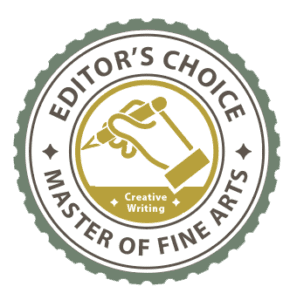
Once few and far between, master’s degrees aimed specifically at teaching creative writing have ballooned to meet demand in recent years. As of 2022, there were more than 300 of them.
Each MFA offers a distinctive experience and comes with its own theories and techniques for fanning the creative spark in students.
- Some come with exquisite and carefully curated libraries exhibiting the finest selection of literature for study.
- Others offer a fully-funded education , covering tuition and offering a stipend to give you the free time you need to write to your fullest potential.
- Many have well-known authors serving as guest lecturers or even permanent presenters, offering a kind of access to genius you can’t find anywhere else.
It’s nice to have choices, but having choices also means making hard decisions. We’re here to help take some of the pain out of that process by presenting our own select choices for the very best universities offering MFA Creative Writing programs today.
How We Made Our Selections for the Finest Creative Writing MFA Programs
Schools that only teach creative writing at the master’s level have made a conscious choice to focus on a high level of training in the craft of writing. It’s completely appropriate to hold them to high standards.
It’s notoriously difficult to weigh any kind of artistic education program against another, however. Every writer is different. The process and program that you will get the most out of may be completely different from what the next author would benefit from.
So we look at the kinds of factors these degrees deliver that don’t revolve around process. Regardless of how an advanced level of creative writing is being taught, there are just some things that offer a better education no matter how they are applied. In our view, those include:
Top-notch Instructors With Genuine Writing and Publication Expertise
There’s no substitute for professors who have been there and done that in creative writing. Competition for top writers to teach at creative writing MFA programs is intense, and for good reason: when you are trying to master the muse, you want to hear about it from someone who already has.
But literary success is no guarantor of teaching ability. You wouldn’t want to be in a class taught by brilliant sci-fi author Harlan Ellison, for example, who has a whole section on his Wikipedia entry titled “Temperament.” Mentoring and the gentle art of delivering critical feedback to boost and not hinder students are key skills.
So, the best MFA in creative writing degrees employ professors with the rare combination of literary and academic talent—which is what you will find at each of the schools on this list.
The Resources To Support Your Writing Vision
Writers only float in a sea of ideas. The top MFA programs in creative writing have the resources to fill that ocean:
- Expansive libraries for conducting research
- Endowments to help fund student fellowships
- Visiting writer and other lecture and reading series to develop broad visions and connections
- School-run or affiliated literary journals or publishers to open up publication opportunities
- International or other off-campus programs to broaden your literary experiences
- Calm and inspiring writing residency options to put you in the right frame of mind to write
- Small class sizes and workshops to foster intimacy and feedback
Although not all these programs will check every one of those boxes, each of them has a wealth of different resources to offer to help get students off the ground in both their creative exercises and their publishing careers.
A Track Record of Educational Success in Creative Writing
Most MFA programs are quick to acknowledge that you can’t teach talent—but you can foster and hone it.
That leads to demonstrable results in the form of graduates who have attracted top-dollar publishing deals, industry awards and recognition, and who have gone on to critical acclaim or even become instructors themselves.
This kind of reputation is golden in the literary world and all of these schools will have people sitting up and taking note when their name pops up in your author bio.
Strong Publishing Industry and Literary Community Connections
When you produce successful writers and hire well-known authors to instruct classes, important industry connections are an asset included in the deal. Those industry ties prove to be among the most important characteristics of the best creative writing MFA programs.
Each of these programs has developed connections to major publishers, agencies, and trade groups that help lay the groundwork for you to launch your writing career. There is fierce competition to land book deals in the publishing industry today. Every editor receives stacks and stacks of submissions and query letters; even the best authors have trouble making it out of the slush piles without a recommendation or introduction.
These schools have the kind of connections that will help get you introduced to decision-makers in big agencies and book publishers. Who you know still isn’t as important as how good your writing is, but with these programs, you’ll get the best of both worlds.
Diverse and Original Coursework in Foundational and Advanced Writing Skills
A Master of Fine Arts in Creative Writing puts a clear stamp on your work. It’s designed to get the best out of your native skill and polish it to the finest shine.
That means both ironing out the fundamentals of the writing craft and developing new and advanced skills. All of these degrees have a wide range of courses and workshops that offer a deep background in the knowledge and skills required for solid plotting, character development, and essential technical expertise as a writer. But they also go far beyond those to help you seek new sources of inspiration and experience. Exploring the poetry of science fiction; diving into post-apocalyptic writing; focusing on the art of telling a joke; comparing Western and Eastern literary forms and storytelling… all these kinds of classes and more offer you an edge in taking your writing to the next level with a degree from these schools.
Helping You Choose From Among the Finest Creative Writing MFA Programs in the Nation
All those features are what make these programs the best. But the real question you need to answer is which one will actually be the best for you ?
We can help you figure that out, too. Although each of these schools comes in on top of the pack of master’s-level creative writing programs in the country in general, each also has unique features that will determine how they fit in with your personal goals and style.
So for each listing, we give you plenty of additional information to help you make your decision. That includes data on:
You’ll also get a thumbnail sketch of what makes the school a great one, outlining many of the supporting facts behind the criteria we evaluated them on. But you’ll also get some of the highlights, the things that really make them stand out, such as:
- Whether the school also offers undergraduate and doctoral degrees
- Which concentration or specializations are offered
- The formats in which the program is available
- Whether the school is public or private
- Rankings by respected third-party evaluators like The Princeton Review
- Exemplary student-published literary magazines
- Super low student-to-faculty ratios
- Unique workshops or internship opportunities offered
- Generous fellowship opportunities
It’s easy access to the kind of information that will help make your decision easy… all in one place.
State-By-State: Top Selections for the Best Creative Writing Master of Fine Arts (MFA) Programs in the U.S.
Competition to get into these elite MFA creative writing programs can be stiff. But if you are determined to get the finest graduate education in creative writing available today, then choosing from among these schools offers your best chances.
Find the Best MFA Creative Writing Programs in Your State
Connecticut.
District of Columbia
Massachusetts
Mississippi, new hampshire, north carolina, pennsylvania, rhode island, south carolina, university of arizona (public).
COLLEGE OF SOCIAL AND BEHAVIORAL SCIENCES

MFA in Creative Writing (on-campus)
Fully funded through graduate teaching assistantships
Also offers: BA in Creative Writing (on-campus)
- Both programs allow students to focus on fiction, nonfiction, or poetry
- MFA program is ranked among the top programs in the nation
- Fully funded MFA offered through graduate teaching assistantships
- MFA features unparalleled opportunities to write and research at the US-Mexico border through the Southwest Field Studies on Writing Program
The University of Arizona offers a BA and MFA in Creative Writing, both of which are part of one the top-ranked creative writing programs in the nation! Choose the BA in Creative Writing and you’ll learn from award-winning writers as you refine your skillset in writing, research, critical thinking, and literary analysis and explore the genres of fiction, nonfiction, and poetry (you’ll choose one genre as a focus after your first year of study). You’ll also be encouraged to take a variety of courses in professional and technical writing, the study of literature, writing and publishing, writing and community, and language, making this a truly well-rounded course of undergraduate study. The University of Arizona’s MFA in Creative Writing has been producing award-winning writers for 50 years and is regarded as one of the top programs of its kind in the nation. This fully funded, three-year program features your choice of fiction, poetry, or nonfiction concentration and a dynamic classroom experience that includes a world-class faculty and small, workshop-style courses.
University of Arkansas (Public)
FULBRIGHT COLLEGE OF ARTS AND SCIENCES
Fayetteville, AR

MFA in Creative Writing & Translation (poetry, fiction, literary translation) (on-campus)
Fully funded MFA with absolutely no tuition costs for students accepted into the program
- Highly selective program admits up to five students each year in each genre (poetry, prose, and literary translation)
- Outstanding opportunities to learn from established writers through the Walton Reading Series
- Consistently ranked among the top MFA programs in the country by Poets & Writers
- Named among the “Top Five Most Innovative” programs of its kind by Atlantic Monthly
The University of Arkansas’ MFA in Creative Writing & Translation is a unique course of graduate study that’s personalized with your choice of concentration in poetry, fiction, or literary translation. This program is among the nation’s oldest MFA programs, yet never fails to impress with its dynamic, forward-thinking curriculum. In fact, it was named among the “Top Five Most Innovative” programs of its kind by Atlantic Monthly ! For more than 50 years, the university’s MFA in Creative Writing & Translation has produced some of the country’s top writers – and it’s little wonder why. The robust curriculum of this program is built on a solid foundation of coursework in craft and literary studies and complemented with a superb, student-centered learning environment that boasts small class sizes and a dedicated faculty.
University of California-Davis (Public)
COLLEGE OF LETTERS AND SCIENCES

Also offers: BA in English-Creative Writing emphasis (on-campus)
- Full funding guaranteed in the second year of the MFA program in exchange for undergrad teaching positions
- Ranked among the top five public universities in the nation by the Wall Street Journal/Times Higher Education
- MFA students choose a single genre – fiction, nonfiction, or poetry, or a multi-genre focus
The University of California – Davis offers both an undergraduate and graduate program in creative writing that are designed to inspire the emerging or established writer! Focused on the mastery of craft with a solid foundation in literary traditions, the BA in English with a Creative Writing emphasis is designed to expand your knowledge and refine your writing skills in preparation for a variety of careers in areas like publishing, marketing, journalism, advertising, and more. The innovative Creative Writing MFA program features a nice blend of studio and literature courses in your choice of fiction, nonfiction, poetry, or multi-genre. In the second year, you’ll teach creative writing courses to undergrad students as you prepare to become a successful practitioner in your own right. All students of the MFA are guaranteed full funding in their second year!
University of California-Irvine (Public)
SCHOOL OF HUMANITIES

MFA in English-Creative Writing (Fiction, Poetry) (on-campus)
Full funding available through graduate teaching assistantships
- UCI named a Fulbright Hispanic-Serving Institution (HIS) Leader
- Your choice of poetry or fiction concentration/emphasis
- Superb student engagement and feedback through the Graduate Writers’ Workshop
The University of California – Irvine is home to the esteemed MFA in English with a Creative Writing emphasis, an exciting course of graduate study that allows students to explore poetry or fiction through dynamic workshops and seminars. Designed to bring together a talented group of writers with plans on a writing-intensive career, the MFA program is rich in close mentorship from accomplished visiting writers. This highly selective program admits just 12 new students each year to ensure one-on-one guidance and support from the program’s faculty. This program is built on the Graduate Writers’ Workshop, a group that meets each quarter to share and critique one another’s writing. Throughout the course of the program, students participate in the Graduate Writers’ Workshop and attend graduate-level seminars.
San Diego State University (Public)
COLLEGE OF ARTS AND LETTERS
San Diego, CA

- Competitive graduate teaching associate positions available
- Exciting Fulbright Fellowships available to study in places like Austria, Brazil, and Poland.
- Your choice of focus in fiction, poetry, or cross-genre
San Diego State University’s MFA in Creative Writing offers is innovative, personalized, and designed to arouse your creative skillset. As one of the oldest MFA Creative Writing programs in the nation, this course of graduate study enjoys a long history of producing skilled, inspired writers. But don’t expect a stale, rote curriculum. Instead, you’ll immerse yourself in a dynamic program that includes your choice of concentration in fiction, poetry, or cross-genre as you work toward producing a manuscript of your original work. Students of this program also enjoy studying under internationally acclaimed visiting writers from around the world, and many students receive Fulbright Fellowships to study in places like Austria, Brazil, and Poland.
California College of the Arts (Private)
San Francisco, CA

MFA in Writing (on-campus)
Also offers: BA in Writing and Literature (on-campus)
- Superb faculty of accomplished scholars, writers, poets, and playwrights
- Outstanding internship opportunities with Bay Area literary organizations available
For aspiring and emerging writers, the California College of the Arts offers a BA in Writing and Literature and an MFA in Writing! The BA offers a foundation in literature and critical inquiry and dynamic workshops in prose, poetry, drama, screenwriting, graphic novels, improvisation, and more. You’ll refine your skills in literary journalism, hybrid narratives, lyric essays, and much more as you conduct close readings and analyses of writing across time. BA students learn from acclaimed authors through the HearSay Reading Series… they contribute their talents to Humble Pie , the undergraduate journal… and they enjoy outstanding internship experiences with Bay Area literary organizations. The MFA program is offered at the Writers’ Studio, where students participate in workshops, readings, and craft talks and learn from accomplished authors through the famed Tuesdays Talk series. Here students explore nonfiction, fiction, and poetry in a close, supportive atmosphere that naturally elicits creativity and inspiration.
Saint Mary’s College of California (Private)
SCHOOL OF LIBERAL ARTS
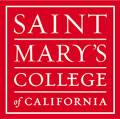
MFA in Creative Writing (Creative Non-Fiction, Fiction, Poetry, Book Manuscript) (on-campus)
Also offers: BA in English – Creative Writing (on-campus)
- Ranked among the top five regional universities in the West by U.S. News & World Report
- All MFA students receive partial funding and opportunities to apply for teaching fellowships, assistantships, and paid internships
- Exciting selection of undergraduate internship opportunities available
- Two-year MFA also includes the option of completing a third year in an additional genre or taking a fifth semester Book Manuscript Intensive course
Saint Mary’s College offers both undergraduate and graduate programs for the creative writer in a supportive private school setting that’s heralded for its academic rigor and plentiful hands-on learning experiences. The BA in English with a Creative Writing emphasis offers a foundation in the creative writing process and options to focus on a specific genre of creative writing like poetry, fiction, nonfiction, dramatic writing, or screenwriting. All students of this program also participate in the Creative Writing Reading Series, which includes attending events and meeting with visiting writers. On-campus internship opportunities include working with the Office of Marketing and Communications or the Center for Writing Across the Curriculum and contributing to riverrun , the undergraduate literary journal, while off-campus internship opportunities include organizations and publications like Counterpoint Press, Diablo Magazine , No Starch Press, Sierra Magazine , and more! The MFA in Creative Writing is a two-year course of study that features an award-winning faculty (including visiting writers in residence); opportunities to contribute to the MFA journal, MARY: A Journal of New Writing ; and your choice concentration in creative nonfiction, fiction, or poetry. Students may also complete a third year in an additional genre or take a fifth semester Book Manuscript Intensive course.
Western Colorado University (Public)
COMMUNICATION ARTS, LANGUAGE AND LITERATURE (CALL) DEPARTMENT
Gunnison, CO

MA/MFA in Creative Writing (low-residency)
- Supportive, student-centered learning environment features an average class size of just 16
- BA students gain valuable experience by editing a book published by Western Press Books and preparing their own work for submission
- MFA offers convenient and flexible online study complemented with one-week on-campus residencies
- MFA offers your choice of one of five genre concentrations: nature writing, genre fiction, poetry, publishing, or screenwriting
Western Colorado University is home to not one, but two creative writing programs that are designed to meet you wherever you are in your career. The BA in English with a Creative Writing emphasis is ideally designed for emerging writers who seek a comprehensive course of study delivered within a supportive community. Students of this program enjoy a strong foundation in English literature traditions, theory, and criticism with advanced courses in poetry, fiction, creative nonfiction, and scripts. You’ll also enjoy flexing your creative skills by contributing to WordHorde, the Creative Writing student organization, and lending help to other students through the Writing Center. Before you graduate, you’ll edit a book published by Western Press Books and prepare your own work for submission. The MFA Creative Writing program here provides an advanced course of study in one of five genres: nature writing, genre fiction, poetry, publishing, or screenwriting. This program comes complete with a dedicated faculty of award-winning writers and a low-residency model that delivers outstanding convenience and flexibility.
Western Connecticut State University (Public)
MACRICOSTAS SCHOOL OF ARTS AND SCIENCES
Danbury, CT

MFA in Creative and Professional Writing (low-residency)
- Outstanding record of graduate success: 87% of all graduates go on to publish books and/or work full-time as professional writers
- Convenient and flexible program features a low-residency model that combines online study with dynamic residencies, either on-campus or abroad
- Competitive graduate assistantships available
Western Connecticut State University offers the MFA in Creative and Professional Writing, which comes complete with a dynamic curriculum that’s delivered in a low-residency model for outstanding convenience and flexibility. We love this program because it offers a comprehensive graduate course of study in multiple genres (students here take workshops and course in all genres and styles), thereby preparing students as well-rounded, versatile writers who find success in both creative and professional writing fields. We also love this program’s exciting residency opportunities that now include options to study in Dublin, Ireland (during the Bram Stoker Festival) and at the Highlights Foundation Retreat Center in the Poconos!
Fairfield University (Private)
COLLEGE OF ARTS AND SCIENCES
Fairfield, CT

MFA in Creative Writing (poetry, fiction, creative nonfiction, screenwriting) (low-residency)
Also offers: Major in English-Creative Writing concentration (on-campus)
- Options to focus the MFA on poetry, fiction, creative nonfiction, or screenwriting
- Ranked among the top national universities by U.S. News & World Report
- Low-residency model features dynamic, engaging residencies on Ender Island in Mystic, CT
Fairfield University’s MFA in Creative Writing offers your choice of focus in poetry, fiction, creative nonfiction, or screenwriting and a low-residency model that’s sure to fit well into your busy schedule. The program’s flexible and challenging curriculum is ideally designed to allow students to design a course of study that best aligns with their professional goals and personal interests. It’s also home to the CT Writing Project, which is home to outstanding opportunities to learn from visiting writers; attend writers’ retreats; and more. Choose Fairfield for your creative writing master’s program and you’ll enjoy opportunities to complete an internship in journalism, public relations, business writing, publishing, and more.
District of Columbia - DC
American university (private).
Washington, DC

- Competitive Merit Awards (tuition and stipends) available
- Exciting opportunities to study in an intimate learning environment that encourages constructive feedback and support
- Your choice of focus on a single genre or multiple genres
American University’s MFA in Creative Writing has been producing the next generation of creative writers for more than 30 years! The only program of its kind in our nation’s capital, the MFA in Creative Writing is your opportunity to explore the art and craft of fiction, nonfiction, and poetry. The flexible design of this program allows students to pursue a single genre or multiple genres, and the tightknit, supportive learning environment encourages superb guidance and feedback from peers and faculty. Students of this program contribute to Folio , the College of Arts and Sciences’ nationally recognized literary journal and Café MFA , the online journal of the Creative Writing program.
Florida State University (Public)
Tallahassee, FL

Also offers: Major in Creative Writing (on-campus)
- Ranked among the top national public universities by U.S. News & World Report
- Home to a nationally and internationally renowned, award-winning faculty
- Superb internship opportunities available
Florida State University offers both undergraduate and graduate programs in creative writing within one of the top writing programs in the country! Just some of the reasons why emerging creative writers flock to FSU include an award-winning faculty (many are recipients of the Pulitzer Prize, the National Book Award, the Guggenheim Foundation Fellowship and more)… opportunities to complete a teaching apprenticeship program through graduate teaching assistantships… and an Editing Internship, your chance to gain valuable, hands-on experiences with a magazine, newspaper, publishing house, television station, marketing firm, nonprofit organization, and more. FSU’s English Department is also home to the Southeast Review , a national literary magazine, and The Kudzu Review , the undergraduate literary magazine, both of which are great sources of hands-on learning experiences.
Florida International University (Public)
ARTS, SCIENCES, AND EDUATION
North Miami, FL

- Program graduates have published 200+ books
- Ranked among the Best Colleges in the nation for social mobility and innovation by U.S. News & World Report
- Home to a dedicated faculty of award-winning, working writers
Florida International University’s MFA in Creative Writing is where you’ll advance your understanding of professional standards and expectations as you hone your creative skillset in your chosen genre. Ideal for future endeavors in teaching, editing, publishing, the arts, and more, this illustrious program of study comes complete with an intimate learning environment; a curriculum of seminar-style courses, workshops, and form and theory courses; outstanding, one-on-one mentoring; and a dedicated faculty of award-winning, working writers. As you progress throughout the program, you’ll work toward the completion of a publishable, book-length creative thesis.
Stetson University (Private)

MFA in Creative Writing (low-residency)
- Program features a concentration in poetry and prose in the expanded field
- Outstanding guidance and mentorship found here – residency workshops include a low, 5:1 student-to-faculty ratio
- Exciting, low-residency model features online study combined with two residencies annually
- Named among the nation’s Best Colleges by U.S. News & World Report
Stetson University’s MFA in Creative Writing offers an outstanding course of graduate study that’s delivered in a low-residency format to accommodate your busy schedule. Choose this program and you’ll enjoy intensive, dynamic mentorship and engagement marked by small workshop groups, individual mentoring sessions, craft lectures, translation workshops, and more. This program is innovative and dynamic, allowing students to explore the many political, social, aesthetic, and cultural factors that are reflective of your work. The low-residency model features online courses that are complemented with two, ten-day residencies where students gather to learn from accomplished writers and exchange their work with faculty mentors. Residencies are held at the Atlantic Center for the Arts in New Smyrna Beach, Florida, and at various international locations! Past residencies were held in Buenos Aires, Argentina and Rio de Janeiro, Brazil!
Georgia State University (Public)
Atlanta, GA

MA/MFA in English-Creative Writing concentration (on-campus)
Also offers: BA in English-Creative Writing (on-campus)
- Ranked among the top innovative universities in the nation by U.S. News & World Report
- Also offers: PhD in English, Concentration in Creative Writing, which is ranked among the top programs of its kind in the nation by Poets & Writers
- Exciting international exchange and study abroad programs available to places like England, France, Italy, Germany, and China
Two creative writing programs, one world-class university—Georgia State University is where emerging writers head for outstanding instruction and inspiration! Choose the BA in English with a Creative Writing concentration and you’ll complete undergraduate study in British and American literature and culture alongside courses focused on the craft and art of creative writing and the poetry, fiction, and creative nonfiction genres. The MA/MFA in English with a Creative Writing concentration features your choice of focus on poetry or fiction and a superb curriculum that prepares students for further study at the PhD level or for careers in a variety of writing-intensive fields. We love the English Department’s award-winning faculty of poets, and authors and the exciting opportunities to hone your craft by contributing to the award-winning Five Points: A Journal of Literature and Art and the student-edited literary magazine, New South .
University of Idaho (Public)
DEPARTMENT OF ENGLISH

- Fully funded MFA for all students through graduate teaching assistantships
- Ranked among the top 8% best colleges in the nation by the Princeton Review
- Ranked among the top 15% of American National Universities by U.S. News & World Report
- Three MFA students are awarded fellowships to write in residence at the Taylor Ranch Research Station in the Frank Church Wilderness Area of the Selway-Bitterroot Mountains
The University of Idaho’s creative writing programs are part of the Department of English’s vibrant community where you can always find inspiration in the form of literary readings, scholarly lectures, conferences, student gatherings, and more. The BA in English with a Creative Writing emphasis boasts engaging courses in fiction, creative fiction, and poetry; esteemed professors who offer one-on-one mentorship; and outstanding opportunities to flex your creative writing skillset and gain valuable, hands-on experiences. The MFA offers a fully funded, three-year course of graduate study in nonfiction, poetry, and fiction. We love the mix of genre workshops, technique studios, and traditional seminars that provide students with an outstanding blend of study in the craft. And the practicum in literary magazine and editing production provides students with an expanded skillset upon graduation.
University of Illinois Urbana-Champaign (Public)
COLLEGE OF LIBERAL ARTS AND SCIENCES

MFA in Creative Writing (Fiction, Poetry) (on-campus)
Fully funded program
Also offers: BA in Liberal Arts and Sciences-Creative Writing (on-campus)
- Also offers a PhD in Writing Studies
- Fully funded MFA offered through full tuition waivers, guaranteed teaching assistantships, and fellowships
- MFA features your choice of focus on fiction or poetry and extensive study in literary publishing and editing
Two creative writing programs at one nationally renowned university – the University of Illinois Urbana-Champaign is where you want to be! The undergraduate creative writing major, which is one of the oldest programs of its kind in the country, is built on small, workshop-style courses in poetry, fiction, and nonfiction that are ideally designed to prepare students for exciting careers in a number of fields or for future graduate study. Students of this program edit and publish the Montage Arts Journal , the university’s undergraduate literary arts journal, which offers outstanding, hands-on learning experiences. The MFA Creative Writing program is a three-year, rigorous course of study in creative writing and literature that offers students the option of specializing in fiction or poetry. You’ll study under the program’s distinguished and dedicated graduate faculty as you take four workshops in your chosen genre and work toward producing a book-length, publishable manuscript. You’ll also receive extensive, hands-on experience in literary editing and publishing in this fully funded graduate program!
Northwestern University (Private)
WEINBERG COLLEGE OF ARTS & SCIENCES
Evanston, IL

MFA in Creative Writing (program is combined with a simultaneous MA in English) (low-residency)
Fully funded through fellowships and graduate assistantships
- MFA is fully funded through fellowships and graduate assistantships
- MFA allows students to work in one genre (poetry, fiction, or creative nonfiction) and also explore a second genre
Northwestern University’s creative writing programs are home to an accomplished faculty of award-winning authors and offered in a supportive, creative community where inspiration naturally flourishes. The Creative Writing major enjoys an outstanding record of graduate success and a reputation as one of the finest undergraduate programs of its kind in the nation. Through this program, you’ll explore poetry, fiction, and creative nonfiction, as well as other courses that explore hybrid genres. Students of this program enjoy a lively curriculum that includes learning from guest writers-in-residence through the Annual Writers’ Festival; participating in the Undergraduate English Association; and contributing their talents to the award-winning student literary magazines, Helicon and Prompt. The MFA + MA in Creative Writing and English program is a unique dual graduate program that provides students with the opportunity to pursue both creative and critical writing. This program boasts intimate classes; close mentorship from a renowned faculty of writers; and a variety of writing workshops in poetry, fiction, or creative nonfiction. And while students of this program are admitted in one genre, they enjoy opportunities to explore a second genre. This program is fully funded through fellowships and graduate assistantships. During the program’s two funded summers, students serve as part-time editorial assistantships for the prestigious online literary journal, TriQuarterly !
School of the Art Institute of Chicago (Private)
Chicago, IL

MFA in Writing (low-residency)
Also offers: BFA in Writing (on-campus)
- Named as “the most influential art college in the United States” by a Columbia University’s National Arts Journalism survey
- Consistently ranked among the top graduate fine arts programs in the nation by U.S. News and World Report
- BA program emphasizes writing across genres, including interdisciplinary and hybrid genres
- Low-residency MFA combines online study with engaging, on-campus summer residencies
Whether the BFA or MFA is what you seek, the School of the Art Institute of Chicago has what you need! The BFA features a dynamic course of study that emphasizes writing across genres, including interdisciplinary and hybrid genres, and producing a creative project of your choice. Students also enjoy the many immersive, hands-on learning experiences available here that include contributing to Mouth , the student-run literary journal and F newsmagazine , the award-winning student newspaper; attending readings and workshops through the Visiting Writer and Artist Lectures; and attending Publishing Panel presentations. The low-residency MFA is a three-year program that’s designed for 21 st century artists and writers. This flexible program engages students and prepares them across various teaching platforms, with much of the curriculum focused on writing and studying other artists’ writings. The low-residency model features online study complemented with three, consecutive summer residencies where you’ll connect with your peers on campus to create and critique work.
Indiana University-Bloomington (Public)
Bloomington, IN

Fully funded program through fellowships and teaching assistantships
- Highly selective MFA enrolls just eight students each year (four in fiction, four in poetry)
- Outstanding reputation for its focus on a diverse student body
- Fully funded program offered through fellowships and assistantships
Indiana University – Bloomington’s MFA in Creative Writing features three years of fully funded graduate study at IU’s flagship campus! This dynamic program is focused on honing craft concepts and workshopping original student poetry and fiction under an award-winning faculty as you work toward the completion a book-length manuscript in the genre of your choice. This highly selective program enrolls just eight new students each year (four in fiction, four in poetry) to ensure an intimate learning environment of top emerging writers.
University of Notre Dame (Private)
Notre Dame, IN

Fully funded through tuition scholarships and fellowships
- Consistently ranked among the top 25 institutions of higher learning in the nation by esteemed publications like U.S. News & World Report, Forbes , and Niche
- Exciting study abroad experiences available to the University College Dublin, Oxford, Cambridge, the University of East Anglia, Trinity College (Dublin), St. Andrews (Scotland), and Galway, Ireland
- All students of the fully funded MFA program gain teaching, editorial, and publication experience
The University of Notre Dame offers both an undergraduate and graduate program in creative writing – your opportunity to explore and refine your craft within a world-renowned university. The Major in English with a Creative Writing concentration allows students to study the many ways in which literature shapes the human experience. Through small class sizes (just 15-17 students), students here connect with one another and engage with the distinguished faculty while honing their critical thinking, public speaking, and writing skills. The creative writing faculty, which is ranked among the best in the nation, teaches 15-20 creative writing classes ranging from fiction to poetry to nonfiction prose to playwriting/screenwriting. Students here often round out their undergraduate experience by engaging in internship, service learning, and study abroad experiences and by contributing to the university’s student-run publications. Notre Dame’s MFA in Creative Writing boasts a two-year, fully funded course of study that’s marked by a rigorous, self-directed learning experience and a diverse, international body of students. All students of this program gain teaching, editorial, and publication experience; participate in outreach programs with community partners; engage with visiting writers and artists; and conduct their own reading series.
University of Kansas (Public)
COLLEGE OF LIBERAL ARTS
Overland Parks, KS

MFA – Tracks in Fiction, Poetry, Playwriting (on-campus)
Also offers: BA, BGS (Bachelor of General Studies) Literature, Language and Writing-option to earn a Creative and Analytical Writing certificate (on-campus)
- Also offers: PhD in Creative Writing
- Competitive graduate teaching assistantships available for MFA students
- Home to an esteemed faculty of published authors
- BA/BGS in Literature, Language and Writing offers a nice selection of afternoon, evening, online, and hybrid courses
- MFA offers concentrations in fiction, poetry, or playwriting
The University of Kansas boasts both undergraduate and graduate programs for the creative writer! The innovative BA/BGS in Literature, Language and Writing provides students with a versatile foundation in technical writing, editing, marketing, writing, and authoring, while the Creative and Analytical Writing certificate provides a deep dive into the craft of creative writing. Just some of the highlights of the BA/BGS in Literature, Language and Writing include an outstanding selection of afternoon, evening, online, and hybrid courses… an experienced, published faculty… and unmatched student engagement and mentorship. The MFA program features a three-year course of study and options to focus on fiction, poetry, or playwriting. You’re sure to love learning from the widely published faculty here that have been recipients of distinctions like the Hugo Award, the Gertrude Stein Award, the Nebula Award, and more. The MFA is ideally positioned within a university that’s home to esteemed centers like the J. Wayne & Elsie M. Gunn Center for the Study of Science Fiction (dedicated to research and education in science fiction) and the Project on the History of Black Writing (research unit focused on literary recovery work in black studies).
Western Kentucky University (Public)
POTTER COLLEGE OF ARTS AND LETTERS
Bowling Green, KY

- Ranked among the top public universities in the nation by U.S. News & World Report
- Competitive MFA teaching assistantships available
- MFA tracks include fiction, poetry, creative nonfiction, or scriptwriting; secondary concentration in literature, composition & rhetoric, or teaching English as a second language
- Exciting undergraduate experiential learning opportunities available
Western Kentucky University offers both undergraduate and graduate programs in creative writing to meet students wherever they are in their academic and professional journey! The undergraduate Creative Writing program features a curriculum that’s grounded in the study of literature and marked by an exciting blend of courses in creative nonfiction, fiction, play/screenwriting, and poetry. Learning outside of the classroom is also standard fare here. You’ll find students learning from esteemed, visiting writers through the Readers Series; contributing to Zephyrus , the school’s literary publication; connecting with their peers through the English Club, the annual Senior Reading, and through the many open-mic nights and coffeehouse gatherings; and attending the annual Undergraduate Conference on Literature, Language, and Culture. The MFA in Creative Writing features a three-year course of study; tracks in fiction, poetry, creative nonfiction, and scriptwriting; and secondary areas in literature, composition & rhetoric, or teaching English as a second language.
Eastern Kentucky University (Public)
COLLEGE OF LETTERS, ARTS, AND SOCIAL SCIENCES
Richmond, KY

- Low-residency model offers optimal convenience and flexibility for working adults
- Superb summer residency offered in Lisbon, Portugal
- Real-time online workshops ensure superb engagement and communication with faculty and peers
Eastern Kentucky University’s MFA in Creative Writing – Bluegrass Writers Studio features a low-residency model that’s designed with flexibility and convenience in mind. Students of this program study in a close-knit, supportive community alongside other emerging writers in both literary and genre-writing. The Bluegrass Writers Studio is an innovative program that offers students an optimal blend of online courses and workshops complemented with intensive residency workshops and unparalleled international literary and cultural experiences. The program’s Domestic Summer Residencies, which are held in Richmond and in Lisbon, Portugal, are rich in intensive workshops, lectures, and readings and focused on individual writing.
McNeese State University (Public)
Lake Charles, LA

Also offers: BA in English-Writing (on-campus)
- All MFA students are offered teaching assistantships that include a partial tuition waiver and stipend
- Ranked as one of the top regional universities in the South by U.S. News & World Report
- MFA in Creative Writing is the oldest program of its kind in Louisiana and one of the oldest in the southeast
- Option to add an MA in English to the MFA in Creative Writing without adding any additional hours or costs
McNeese State University offers both undergraduate and graduate programs in creative writing, making it a sure bet for emerging writers like you! The BA in English with a Writing concentration offers a firm foundation in classic and contemporary literature alongside courses and hands-on learning experiences designed to hone your creative writing skills and elevate your knowledge and skills in the areas of editing, rhetorical writing, and technical writing . Students of this program enjoy small class sizes and a highly engaging learning environment that’s marked by high-quality instruction from a widely published, dedicated faculty. The MFA in Creative Writing is the oldest programs of its kind in Louisiana and among the oldest in the southeast! Offering outstanding, hands-on instruction through a host of creative writing programs, this program is where poetry and fiction writers flock to elevate their creative writing skills and produce a book-length manuscript. McNeese’s MFA is one of the only programs in the country to offer students the opportunity to concurrently earn an MA in English without adding any additional hours or costs!
University of Baltimore (Public)
YALE GORDON COLLEGE OF ARTS AND SCIENCES
Baltimore, MD

- Named as one of the most distinctive programs of its kind in the nation by Poets & Writers Magazine
- Competitive graduate fellowships and teaching assistantships available
- Your choice of focus in fiction, nonfiction, or poetry
- Exciting internship and study teaching opportunities available
The University of Baltimore’s MFA in Creative Writing is one of the top programs of its kind in the nation and a dynamic, inspiring hub for emerging writers in the genres of fiction, nonfiction, and poetry. Students of this program hone their creative voice and elevate their skillset in writing , editing, and publishing as they gain valuable, hands-on experience through internships and student teaching opportunities. Just some of the places where students here intern include the Baltimore City Paper , Baltimore Magazine , Baltimore Jewish Times , and Baltimore Style Magazine !
Johns Hopkins University (Private)
KRIEGER SCHOOL OF ARTS AND SCIENCES

MFA in Writing Seminars-Creative Writing (on-campus)
Fully funded through teaching fellowships
Also offers: Major in Writing Seminars-Creative Writing concentration (on-campus)
- Fully funded MFA features a generous teaching fellowship
- The Writing Seminars program is the second-oldest creative writing program in the country
- BA program features a focus on fiction and poetry
- Home to a nationally and internationally renowned faculty and acclaimed visiting writers
John Hopkins University offers both an undergraduate and graduate program in their famed Writing Seminars program! Undergraduate students here enjoy a solid liberal arts framework that’s complemented with courses in fiction and poetry and seminars on literature and the history and technique of poetry and prose. The Writing Seminar’s MFA program offers an advanced exploration of fiction and poetry. This program boasts a nationally and internationally renowned faculty; acclaimed visiting writers; and a curriculum that’s rich in intensive literary seminars and small workshops. Students complete a first-year portfolio and then round out their graduate course of study with a second-year thesis. This highly selective, fully funded program includes a generous teaching fellowship!
Hampshire College (Private)
Amherst, MA

MFA in Writing for Film and Television (low-residency)
- Student-designed learning environment features personalized, independent work, close collaboration with faculty, and exciting hands-on experiences
- MFA in Creative Writing features your choice of focus on poetry, fiction, or nonfiction
- MFA Writing for Film and Television combines online study with weeklong residencies at the college’s Boston or Los Angeles campus
- Hampshire is part of the Five College Consortium that allows students to explore academic offerings at Amherst College, Mount Holyoke College, Smith College, and the University of Massachusetts Amherst
Hampshire College offers no less than three, outstanding creative writing programs for emerging and practicing writers alike! The Major in Creative Writing offers a well-rounded exploration of fiction, literary journalism, and poetry through dynamic, workshop-style courses that feature intensive writing, active reading, and constructive feedback. Students of this program enjoy engaging with their peers and sharing ideas through writers’ coffeehouses; learning from acclaimed visiting writers; and flexing their creative skillset through one of the school’s publications. The low-residency MFA in Writing for Film and Television offers a convenient and flexible blend of online courses with week-long residencies at the Boston or Los Angeles campus at the beginning of each semester. This program features an esteemed faculty of filmmakers, producers, and screenwriters and the opportunity to produce a professional-caliber portfolio of original feature, pilot, and short screenplay samples. The Creative Writing MFA program is one of the longest-running programs of its kind in the nation. Some of the highlights of this program include an esteemed, published faculty; two award-winning literary journals; and close ties with the Boston publishing community.
Boston University (Private)

- Ranked among the top 5% of all creative writing programs in the nation by The Atlantic for the distinction of its faculty and alumni
- Superb opportunity to study and travel abroad through the Global Fellowship
- Small cohorts ensure an outstanding, student-centered learning environment
Boston University’s MFA in Creative Writing is built on the university’s legacy of academic excellence and the Creative Writing Program’s reputation as one of most prestigious programs of its kind in the country! This program features your choice of fiction or poetry and a one-year course of study that’s highlighted by creative writing workshops and literature courses. It’s designed in small cohorts that accept just ten fiction writers and eight poets annually, and it’s fully funded, covering all tuition costs and offering a stipend for all students. All students of this program teach at least one course and fulfill a foreign language requirement during their MFA. Students are also eligible to receive a Global Fellowship for travel and study anywhere outside of the U.S. upon successful completion of their coursework and submission of their thesis.
University of Michigan-Ann Arbor (Public)
RESIDENTIAL COLLEGE
Ann Arbor, MI

Also offers: Major in Creative Writing and Literature (on-campus)
- Outstanding study abroad opportunities available (University of Michigan has the most students studying abroad among the Big Ten universities)
- Ranked among the top public national universities by U.S. News & World Report
- Highly selective, fully funded MFA program accepts just nine poets and nine fiction writers annually
- Undergraduate major in Creative Writing and Literature includes your choice of focus on fiction/creative nonfiction, poetry, or digital storytelling
Whether you’re interested in pursuing undergraduate or graduate study in creative writing, the University of Michigan – Ann Arbor has what you’re looking for! Undergraduate students in the Creative Writing and Literature program study fiction, poetry, and creative nonfiction (and choose a focus on fiction/creative nonfiction, poetry, or digital storytelling) in a student-centered learning environment that features dedicated faculty mentors and small, engaging writing seminars. Whether your plans include graduate study or a career in an area like education, editing, journalism, publishing, or beyond, this program is designed with you in mind! The fully funded Creative Writing MFA program features two years of study and options to focus on fiction or poetry. We love the program’s esteemed faculty of published poets and fiction writers and the many opportunities to learn from acclaimed writers through the Zell Visiting Writers Series. This highly selective program accepts just nine poets and nine fiction writers annually.
Western Michigan University (Public)
Kalamazoo, MI

MFA in Creative Writing
Also offers: BA in English-Creative Writing option (on-campus)
- Superb record of student success: 9 out of 10 students are employed and working quickly in their fields upon graduation
- Outstanding study abroad opportunities – more than 100 programs in 40 countries available
- Engaging workshop-style courses ensure outstanding opportunities to hone your creative skillset
Western Michigan University is home to both BA and MFA programs in creative writing for the emerging writer! The BA in English with a Creative Writing option is built on a foundation in British and American literature and the English language and complemented with dynamic, creative writing workshops that vary from introductory to advanced. Students of this program explore writing poetry, plays, fiction, and creative nonfiction alongside focused study in news, feature, and professional writing. The MFA in Creative Writing program offers a streamlined path to writing-intensive careers in poetry, fiction, or drama or future PhD study within prestigious programs.
University of Minnesota-Twin Cities (Public)
Minneapolis, MN

- Fully funded program through teaching assistantships and/or fellowships
- Exciting program features an exploration of poetry, fiction, and nonfiction
- Consistently ranked among the top graduate creative writing programs in the country
The University of Minnesota – Twin Cities offers an esteemed MFA in Creative Writing – a three-year course of graduate study that features a dynamic deep dive into writing, language, and literature, along with study in a related field. This exciting program, which has long been ranked among the top ten graduate creative writing programs nationally, offers a well-rounded exploration of poetry, fiction, and nonfiction. In fact, students of this program are encouraged to experiment and write across genres as they work toward honing their own creative voice. Housed within the flagship institution of the University of Minnesota System, which enjoys a reputation as being among the most prestigious public research universities in the nation, this program comes with full funding for all MFA students and exciting opportunities to conduct research, intern with major corporations and organizations, and study abroad.
Hamline University (Private)
Saint Paul, MN

MFA in Creative Writing (on-campus)
Also offers: BFA in Creative Writing (on-campus)
- BA in English-Creative Writing concentration (on-campus)
- Exciting, undergraduate faculty-led research opportunities available
- Home to a nice variety of internship experiences
- Superb faculty of accomplished writers
- MFA features your choice of focus on poetry, fiction, or creative nonfiction
Hamline University is home to three different creative writing programs that are designed to meet you wherever you are in your career! Offering two undergraduate creative writing programs – one in creative writing and the other in English with a creative writing concentration, Hamline offers students the opportunity to hone their creative writing skillset and prepare for exciting careers in publishing, journalism, marketing, business, education, and beyond! The BFA in Creative Writing provides students with a well-rounded exploration of poetry, fiction, creative nonfiction, literary traditions, textual analysis, and the opportunity to refine your skillset in any number of genres. The BA in English with a Creative Writing concentration offers a journey in literature as you explore the process of writing a novel, script, or other creative work. We love their undergraduate creative writing programs here because they come complete with exciting opportunities to participate in faculty-led research; contribute to one of the many student-led publications like Runestone , the award-winning undergraduate online literary magazine; and complete internships with major names like Graywolf Press, the Minnesota Historical Society, and the Loft Literary Center. The MFA in Creative Writing boasts an in-depth course of study that’s marked by your choice of focus in poetry, fiction, or creative nonfiction; an esteemed faculty of accomplished writers; and a curriculum that prepares you for in-demand teaching and publishing careers.
Augsburg University (Private)
DIVISION OF ARTS AND SCIENCES

MFA in Creative Writing (Teaching, Translation, Publishing) ( low-residency )
- MFA program features a low-residency model that combines convenient, flexible online study with summer residencies
- Exciting study abroad opportunities to Denmark and Iceland for undergraduate students
- Undergraduate creative writing students may qualify for the MFA Masterclass option – an opportunity to participate in a single summer residency that includes a creative writing workshop
Augsburg University’s undergraduate and graduate programs in creative writing are exactly what emerging and practicing writers are looking for! The BA in English with a Creative Writing concentration offers a nice blend of both English literature and the creative writing process. Through this course of study, students explore the craft under the guidance of a dedicated faculty of working writers. Students also enjoy plenty of opportunities to flex their creative skillset outside of the classroom, with opportunities to participate in the Many Voice Project – a series that brings together students, professors, and staff to explore successful communication among diverse readers and writers; contribute to Thó Win Magazine , the campus literary, visual, and musical arts publication; and study abroad to Denmark and Iceland. The low-residency Creative Writing MFA program offers students a deep dive into writing in multiple genres and features a convenient and flexible format that blends online study with summer residencies. Students of this program hone their skillset in fiction, nonfiction, poetry, screenwriting, and playwriting over the course of three years to prepare for exciting careers in fields like teaching, publishing, and translation. Are you an undergraduate creative writing student with future graduate study in your sights? You may qualify for the MFA Masterclass option, which allows undergrad students to enroll in a single summer residency that includes a creative writing workshop.
University of Mississippi (Public)
University, MS

MFA in English (on-campus)
- Also offers: Ph.D. in English with Creative Writing Concentration
- Outstanding visiting scholars and creative writers - past visitors have included filmmaker, Spike Lee, Pulitzer Prize winner Jeffery Eugenides, and National Book Award winner Mark Doty
- MFA in English named among The Atlantic Monthly’s “Top Five Up and Coming Programs”
Creative writing is part of the fabric of the University of Mississippi, and it shows! The BA in English with a Creative Writing emphasis boasts a curriculum that brings together study in literature from all time periods and through diverse perspectives, along with a close examination and exploration of the craft of creative writing. The MFA in English, which has been consistently ranked among the top programs of its kind in the nation, offers your choice of concentration in poetry & fiction or creative nonfiction. This highly selective program (accepting between 6-8 students each year) is supportive, engaging, and fully funded!
Washington University in Saint Louis (Private)
St. Louis, MO

Fully funded program available through fellowships
Also offers: BA in English-Creative Writing concentration (on-campus)
- Small, student-centered learning environment boasts first-year seminars of 15 or fewer students
- Highly competitive program accepts just 15 students (five each in fiction, poetry, and creative nonfiction)
- Fully funded MFA program is offered through fellowships
Regardless of where you are in your academic journey or your career, Washington University in St. Louis has the creative writing program for you! The BA in English with a Creative Writing concentration brings together emerging writers in a small, student-centered learning environment that boasts engaging poetry and fiction writing workshops. Small, first-year seminars of 15 students or less transition nicely to second semester workshops that take students to the next level in their writing journey and guide them to become outstanding readers and critics of literature. Interested in adding an international dimension to your undergraduate creative writing program? Many students study abroad at some of the top universities like Oxford, Edinburg, Trinity College in Dublin, the King’s College in London, and the University of Sydney. The Creative Writing MFA is a two-year program that allows students to refine their craft in fiction, poetry, and creative nonfiction. A distinguished, world-renowned faculty oversees dynamic and engaging workshops and craft courses, while the school’s reading series brings some of the most acclaimed authors and poets to the department for unmatched learning opportunities.
New England College (Private)
Manchester, NH

- Low-residency MFA features a studio/research academic model that combines online study with on-campus residencies at the beginning of each semester
- MFA features your choice of track in poetry, fiction, nonfiction, writing for stage and screen, or dual genre
- MFA students may also pursue specialized study in areas like translation, editing & publishing, new media, performance, or cross-genre/hybrid forms
- Competitive MFA teaching assistantships and scholarships available
New England College offers both a BA and MFA in Creative Writing to meet students wherever they are in their academic journey and career path! The BA in Creative Writing is supported by a dedicated faculty of published writers who are committed to providing students with close mentorship and support, while the program’s focus on individual transformation encourages students to explore many areas and genres. Through this program, students complete genre workshops in fiction, poetry, and creative nonfiction and courses focused on literary movements for a well-rounded course of study. The Creative Writing MFA is offered in a low-residency model that combines convenient and flexible online study with lively residencies at the beginning of each semester. Students here pursue a highly individualized program that features close mentorship by an award-winning faculty of writers and their choice of track in poetry, fiction, nonfiction, writing for stage and screen, or dual genre. Students may also pursue additional study in areas like translation, editing & publishing, new media, performance, or cross-genre/hybrid forms.
Rutgers University-Camden (Public)
GRADUATE SCHOOL OF ARTS AND SCIENCES

- Competitive teaching assistantships available
- Multi-genre approach to learning includes workshops in your choice of genre (fiction, poetry, or nonfiction) and at least one other genre
- Exciting opportunities to complete a writing residency at the Rutgers University Pinelands Field Station
- Exciting study abroad opportunities available
Rutgers University – Camden offers an MFA in Creative Writing that features an in-depth exploration of the theory and practice of writing for poets, fiction writers, and nonfiction writers. This dynamic course of graduate study allows students to focus their work on a single genre yet still explore other genres. An outstanding faculty of esteemed writers and poets guides this esteemed program. Students here enjoy superb inspiration from a host of visiting writers and poets; they contribute to the university’s award-winning literary magazine, StoryQuarterly ; and they participate in inspiring writing residencies at the Rutgers University Pinelands Field Station. And if your academic goals include an international experience, you’ll be pleased to know that students here often study abroad in Europe, Asia, and South America.
Rutgers University-Newark (Public)
SCHOOL OF ARTS AND SCIENCES

- Home to an outstanding, award-winning faculty of writers
- Program enjoys exciting connections to big regional names for superb learning experiences
- Fully funded, highly selective program accepts 14-16 full-time students per year—half in Fiction and half in Poetry
Rutgers University – Newark offers an established, dynamic, and nationally ranked MFA in Creative Writing that features your choice of fiction or poetry writing track. We love the many connections this program has to big names like the Newark Museum, the New Jersey Historical Society, and the New Jersey Performing Arts Center, all of which offer students unique opportunities for hands-on learning experiences. This fully funded course of study provides students with an unmatched opportunity to explore their craft, while the esteemed, award-winning faculty (many of whom are the recipients of awards like the Guggenheim, the National Endowment of the Arts, National Book Awards, and more) ensure outstanding support and mentorship.
Monmouth University (Private)
THE WAYNE D. MCMURRAY SCHOOL OF HUMANITIES AND SOCIAL SCIENCES
West Long Branch, NJ

MA/MFA in Creative Writing Dual Degree (on-campus)
- Ranked among the best regional universities in the North by U.S. News & World Report
- Exciting undergraduate internship experiences available
- Exciting MFA course options include opportunities to study themes like thrillers, romance, and fantasy
Whether you’re seeking an undergraduate or graduate creative writing program, Monmouth University has what you need! The BA in English with a concentration in Creative Writing features a well-rounded liberal arts core alongside an in-depth exploration of creative writing, including fiction, nonfiction, and poetry. Students of this program enjoy studying under esteemed visiting writers; contributing to The Monmouth Review ; and completing exciting internship opportunities with big names like Penguin, Random House, and St. Martin’s Press, and with organizations like the National Geographic Society and the Monmouth County SPCA. The MA/MFA is an innovative and unique dual degree in Creative Writing that boasts a published, award-winning faculty; outstanding course options in fiction, nonfiction, and poetry; and exciting options to explore themes like thrillers, romance, and fantasy. Students of this program begin by completing the 30-credit MA in English with a Creative Writing concentration and then complete an additional 18 credits of intensive creative writing study that culminate in a book-length creative thesis.
Columbia University in the City of New York (Private)
SCHOOL OF THE ARTS
New York, NY

MFA in Writing (Nonfiction, Fiction, Poetry, Literary Translation) (on-campus)
- Home to an outstanding, internationally acclaimed faculty of writers and editors
- Major in Creative Writing offers your choice of poetry, fiction, nonfiction, or multi-genre concentration
- MFA offers your choice of fiction, poetry, or creative nonfiction concentration
Columbia University in the City of New York is where you’ll find both undergraduate and graduate programs in creative writing! These outstanding courses of study are housed in the famed School of the Arts, which enjoys a legacy of unmatched literary creation. Did you know that J.D. Salinger enrolled in a short story course here in 1939? Choose the Major in Creative Writing and you’ll study under an acclaimed, world-class faculty as you elevate your creative skillset in poetry, fiction, nonfiction, or multi-genre (combination of two genres). This program comes complete with writing workshops at all levels and exciting seminars that are sure to inspire and excite. The esteemed MFA Writing program is renowned for its faculty of acclaimed writers and editors; its focus on literary instruction; and its artistic and literary diversity. Students of this program choose a concentration in fiction, poetry, or creative nonfiction. They study in intimate workshops (just 7 to 12 students) and regularly present their work, receive constructive feedback from their peers, and meet with faculty for one-on-one conferences.
Sarah Lawrence College (Private)
Bronxville, NY

Also offers: Major in Writing (on-campus)
- Home to one of the largest writing faculties in the country
- Workshop-style courses offer unmatched support, guidance, and constructive feedback
- Exciting research and teaching opportunities available to MFA students
- MFA concentrations in poetry, creative nonfiction, or speculative fiction
Whether you’re interested in an undergraduate or graduate degree in creative writing, Sarah Lawrence College has what you need to prepare for an exciting career or future graduate school! One of the first things you’ll notice is the vibrant artistic and writing community at Sarah Lawrence. It’s home to one of the largest writing faculties in the country; an outstanding selection of courses in fiction, nonfiction, and poetry; and engaging workshop-style courses that offer unmatched support and guidance. Thanks to a prime location near NYC, creative writing students enjoy access to opportunities in a vibrant, second-to-none arts and culture scene. The MFA program here boasts a dedicated faculty of distinguished writers; concentrations in fiction, poetry, creative nonfiction, or speculative fiction; and a versatile curriculum that allows students to explore writing that transcends genres. Some of the features of the MFA we’re particularly fond of include frequent meetings with faculty; small, intimate classes; and exciting graduate teaching and research opportunities.
Syracuse University (Private)
Syracuse, NY

- Highly selective MFA program admits just six poets and six fiction writers annually
- Outstanding record of student success – 94% of graduates are employed or in graduate school within six months of graduation
- Ranked among the best national universities by U.S. News & World Report
Syracuse University offers a BA and MFA in Creative Writing and a storied legacy of producing acclaimed writers. From Stephen Crane to Joyce Carol Oates, Syracuse has long been where emerging and practicing writers flock for intensive study and unmatched inspiration! The BA program offers a balanced blend of literary study, workshop-style writing courses, and craft classes in creative nonfiction, fiction, and poetry. The renowned MFA in Creative Writing program is a three-year, highly selective course of graduate study that admits just six poets and six fiction writers each year.
Pratt University-Main (Private)
SCHOOL OF LIBERAL ARTS AND SCIENCES
Brooklyn, NY

- BFA features your choice of specialization in fiction, poetry, or nonfiction
- MFA boasts exciting opportunities to participate in guided fieldwork residencies with an outside community organization, nonprofit, or activist group
- MFA offers superb faculty mentoring
Pratt University boasts a BFA and MFA in Writing – your pathway to outstanding careers in publishing, editing, journalism, marketing, business, education, and beyond! Undergraduate creative writing students here study in a studio-based learning environment that includes specializing in fiction, poetry, or nonfiction and exploring contemporary genres like playwriting, screenwriting, children’s book writing, and young adult writing. The MFA in Writing program offers a highly rigorous, engaging program of study that’s built to address the needs of today’s contemporary writer in changing times. Some of the features of this program that you’re sure to love include The Writing Studio, a weekly critiquing forum; outstanding, one-on-one faculty mentoring; and guided fieldwork residencies with an outside community organization, nonprofit, or activist group.
North Carolina State University at Raleigh (Public)
COLLEGE OF HUMANITIES AND SOCIAL SCIENCES
Raleigh, NC

- Outstanding, student-centered learning environment features a low, student-to-faculty ratio of just 15:1
- Named the top public university in North Carolina by Money Magazine
- MFA in Creative Writing is the only one of its kind in the Raleigh/Durham/Chapel Hill region
- MFA is fully funded through graduate teaching assistantships
North Carolina State University at Raleigh is home to both an undergraduate and graduate degree in creative writing! The BA in English with a Creative Writing concentration features a solid English foundation alongside courses in several genres, including fiction, poetry, nonfiction, and screenwriting. Intensive writing workshops here are designed to create an engaging, tightknit learning environment where students are encouraged to hone their creative voice. The MFA in Creative Writing boasts a two-year intensive course of graduate study that’s rich in workshops and interdisciplinary coursework and culminates in a final thesis of your original work. Students of this graduate course of study apprentice under master writers and learn from an experienced faculty of working writers and poets.
Warren Wilson College (Private)
THE MFA PROGRAM FOR WRITERS AT WARREN WILSON COLLEGE
Asheville, NC

- Home to the first and one of the most prestigious low-residency MFA programs in the nation
- Originally founded in 1976 by Ellen Bryant Voigt, and in residence at Warren Wilson College since 1981
- Superb faculty of award-winning authors and poets (many of whom are recipients of the Pulitzer Prize, Guggenheim and MacArthur Fellowships, National Book Awards, and more)
- Low-residency MFA effortlessly combines individualized mentorship with on-campus residencies for maximum convenience and flexibility
- MFA features a superb standard student-to-faculty ratio of just 3:1
The MFA Program for Writers at Warren Wilson College enjoys a national reputation as a top-ranked MFA program and features a prime learning environment that’s marked by extensive one-one-one exchanges between faculty mentor and student as well as on-campus residencies every six months. Well regarded for its craft-based rigor as well as its fostering of a supportive and noncompetitive environment, the MFA Program for Writers at Warren Wilson College prepares its graduates for a lifetime of writing.
Warren Wilson College’s undergraduate program in Creative Writing is designed to allow students to focus their undergraduate course of study on two genres (choose from fiction, creative nonfiction, and poetry). It’s also home to the Writing Studio, a place where students hone their creative voice and explore new ideas and techniques. Outstanding student and faculty feedback and exciting opportunities to engage in hands-on learning round out this comprehensive course of study.
The undergraduate program benefits from presence of Warren Wilson’s highly-regarded MFA program through twice-yearly visits by MFA Writers in Residence: faculty members who provide a class and reading. They also have the opportunity to attend January residency lectures and readings and work with MFA Mentors as part of an undergraduate “Residency Class.”
Miami University-Oxford (Public)

- Outstanding record of student success – 96% of all graduates are employed or continuing their education
- Ranked among the top 50 public universities in the nation by U.S. News & World Report
- Fully funded MFA provides graduate teaching assistantships to all MFA students; non-teaching assistantships may also be available
Miami University – Oxford is home to both a BA and MFA in Creative Writing – your opportunity to refine your creative skillset and become a successful writer in any number of fields! The BA program boasts a full-time creative faculty of eight award-winning writers who provide unmatched learning opportunities for a select group of students (usually between 20-25) in fiction, poetry, creative nonfiction, and screenwriting. Intensive, engaging workshop-style courses ensure outstanding collaboration, communication, and constructive feedback, while visiting authors offer readings and craft talks that are guaranteed to inspire. The MFA brings some of the most talented, emerging writers from across the country to participate in a close-knit, rigorous course of study in creative nonfiction, poetry, fiction, multimedia, and performance writing. Some of the highlights of this program include four, practice-oriented workshops and seminars in literature; close mentorship from faculty; and the opportunity to create a publishable, full-length work of fiction, poetry, or creative nonfiction by the end of the program. This fully funded program provides graduate teaching assistantships to all MFA students; non-teaching assistantships may also be available. And each year, two MFA students are awarded creative writing internships in China!
Kent State University at Kent (Public)

Northeast Ohio MFA in Creative Writing (on-campus)
- Program is a superb consortium of four universities - Kent State University, Cleveland State University, the University of Akron, and Youngstown State University
- The program is marked by outstanding faculty guidance and mentorship
- Students enjoy exciting opportunities to participate in regional and national events and programs
- Full and partial funding opportunities available
Kent State University’s Northern Ohio MFA in Creative Writing (NEOMFA) offers a superb course of graduate study for the emerging creative writer! This program is a consortium program between Kent State, the University of Akron, Cleveland State University, and Youngstown State University. It boasts an award-winning faculty of fifteen and unmatched opportunities to hone your craft in plays, poetry, fiction, and creative nonfiction. This program brings together a diverse group of students for superb instruction, hands-on learning, faculty mentorship, and individual attention. Students here enjoy access to exciting programs and events like the Juniper Institute of Massachusetts, the Imagination Writers Conference in Cleveland, and the annual Association of Writers and Writing Programs Conference.

University of Oklahoma-Norman Campus (Public)
DODGE FAMILY COLLEGE OF ARTS AND SCIENCES

MA in English-Creative Writing (on-campus)
- Competitive graduate teaching assistantships available
- Versatile and flexible programs give students the freedom to choose courses and create a personalized course of study that best reflects their personal interests and career goals
- Option to round out your program by creating a thesis of your original work in fiction, poetry, or creative nonfiction
The University of Oklahoma Norman is home to the esteemed MA in English with a Creative Writing emphasis – a superb graduate course of study for those with a love of creating the written word! We love the flexible and versatile design of this program that gives students the freedom to choose courses that best reflect their personal interests and professional goals. As a student of this program, you’ll work alongside a departmental advisor to design a personalized program of study. You’re also sure to appreciate the tightknit, engaging academic environment here that features small, seminar and pro-seminar courses and close mentorship from an internationally recognized faculty. You’ll also enjoy the option of rounding out your creative writing graduate program by creating a thesis of your original work in fiction, poetry, or creative nonfiction.
Eastern Oregon University (Public)
COLLEGE OF ARTS, HUMANITIES AND SOCIAL SCIENCES
La Grande, OR

MFA in Creative and Environmental Writing (low-residency)
Also offers: BA/BS in English-Writing (on-campus, online)
- Outstanding, student-centered learning environment features small class sizes and a low, student-to-faculty undergraduate ratio of just 17:1
- Flexible BA/BS degree offers your choice of on-campus or online study
- Low-residency MFA blends convenient, online study with on-campus summer residencies
- Specialty, one-of-a-kind Wilderness, Ecology, and Community MFA program, which connects students to the Pacific Northwest’s rich tradition of writers
Eastern Oregon University is where emerging creative writers flock for unmatched academic opportunities at the undergraduate and graduate level! The BA/BS in English – Creative Writing program boasts small class sizes; superb support from a dedicated faculty; and an opportunity to complete your degree 100% online! The online program features a fully online course delivery and options to study on a part- or full-time basis for outstanding convenience and flexibility. The MFA in Creative and Environmental Writing offers an in-depth exploration of the craft; a low-residency curriculum model that ensures superb convenience for working adults; genre focus options in fiction, poetry, or young adult literature; and a superb opportunity to specialize your program through the one-of-a-kind Wilderness, Ecology, and Community program, which connects students to the Pacific Northwest’s rich tradition of writers such as Gary Snyder, William O. Douglas, Kathleen Dean Moore, Annie Dillard, Robert Michael Pyle, and more.
University of Oregon (Public)
DIVISION OF GRADUATE STUDIES

Each MFA student is offered a teaching appointment in return for a full tuition waiver and stipend.
- Opportunity to fully fund your MFA through a teaching appointment
- Ranked a top-tier public research university and the top public university in Oregon by U.S. News & World Report
- Highly selective program accepts just 10 students annually – five in poetry, and five in fiction
The University of Oregon’s MFA in Creative Writing features two years of study; your choice of focus in poetry or fiction; and a rich curriculum that’s highlighted by engaging, workshop-style courses and craft seminars. This rigorous course of study, which is one of the oldest and most distinguished programs of its kind in the nation, boasts unmatched opportunities to hone your craft and enjoy career success in a variety of fields. This highly selective program admits just 10 applicants each year (five in fiction and five in poetry) to ensure an intimate, highly engaging graduate experience.
University of Pittsburgh-Pittsburgh Campus (Public)
KENNETH P. DIETRICH SCHOOL OF ARTS AND SCIENCES
Pittsburgh, PA

Also offers: BA in Writing (Fiction, Poetry, Nonfiction) (on-campus)
- Ranked as the top university in the Northeast U.S. by the Wall Street Journal/Times Higher Education
- Outstanding opportunities to learn from esteemed, visiting writers through the Pittsburgh Contemporary Writers Series
- MFA features your choice of focus in fiction, nonfiction, or poetry
The University of Pittsburgh is home to a BA in Writing and an MFA in Writing, both of which are housed in the university’s famed Writing Program – a large and diverse community of artists who explore both traditional and emerging media. It’s where you’ll find students lending their talents to esteemed literary journals and digital publications and where visiting writers come to educate and inspire through the Pittsburgh Contemporary Writers Series. At the graduate level, the Writing Program admits nine students across the genres each year for a fully funded course of study in fiction, nonfiction, or poetry. We love the many exciting opportunities to expand your college experience through internships and study abroad experiences to places like London, Sydney, Berlin, Dublin, Paris, and Madrid.
Cedar Crest College (Private)
DEPARTMENT OF HISTORY, LANGUAGES AND LITERATURE
Allentown, PA

Pan-European Creative Writing MFA (low-residency)
- Options to focus on poetry, fiction, nonfiction, or travel writing
- Home to the first pan-European graduate-level writer’s program offered by an American university
- MFA boasts an award-winning internationally acclaimed faculty of writers
- Exciting European residencies are complemented with online study for a flexible, versatile course of study
Cedar Crest is where you’ll find a superb course of graduate study in creative writing that comes complete with your choice of poetry, fiction, nonfiction, or travel writing focus… a low-residency model that delivers outstanding flexibility and convenience… and an unmatched opportunity to be inspired as you travel across Europe! The MFA in Creative Writing features an in-depth exploration of the craft of creative writing that culminates in the creation of your own original work of literature. Choose a focus (or two) and learn to refine your skillset under the guidance of an award-winning faculty of writers. This truly unique course of study brings together talented writers from around the world for three, 15-day intensive workshops held in superb European locations that are sure to spark your creativity. Residencies here are held in July and rotate between Dublin, Ireland; Barcelona, Spain; and Vienna, Australia. You’ll complete the rest of your program requirements through convenient online study.
Brown University (Private)
THE COLLEGE
Providence, RI

MFA in Literary Arts (on-campus)
Also offers: BA in Literary Arts (on-campus)
- Outstanding, student-centered learning environment features a low, 6:1 student-to-faculty ratio
- Superb record of student success – 96% of all graduates are employed or in grad school within six months of graduation
- Home to exciting, dynamic creative writing workshops for outstanding, hands-on learning
Brown University’s undergraduate and graduate programs in Literary Arts offer a deep dive into the craft of writing. Choose the undergraduate program and you’ll develop your skills in one or more genres through four creative writing workshops and six, reading-intensive courses. This unique course of undergraduate study (it’s one of just a few in the nation) is where emerging writers in fiction, poetry, electronic writing (hypertext), and mixed media gather to elevate and refine their creative skillset. The MFA program welcomes just 12 graduate student writers annually for an in-depth exploration of creative writing and a choice of focus in fiction, poetry, or digital-cross-disciplinary. This innovative program is focused on student-centered learning and features a rigorous curriculum that’s delivered by a faculty of internationally acclaimed writers.
University of South Carolina-Columbia (Public)
Columbia, SC

Also offers: BA in English-Writing concentration (on-campus)
- Fully funded, highly selective MFA program accepts just eight students annually – four poets and four fiction writers
- Ranked among the nation’s institutions with the best first-year experience by U.S. News & World Report
- Highly versatile BA allows students to create a personalized program through their choice of writing courses
The University of South Carolina – Columbia’s BA and MFA programs are designed to inspire the emerging writer for an exciting pathway to careers in publishing, journalism, editing, marketing, business, and beyond! The BA in English with a Creative Writing concentration features a core of literature courses that are complemented with creative writing courses. Under the guidance of a faculty advisor, you’ll create a personalized course of study that best matches your personal interests and professional goals. We love the small class sizes and the superb faculty that’s dedicated to your success. The fully funded MFA program here is chocked full of features that are sure to align with your career goals. You’ll appreciate the intimate learning environment that comes complete with an award-winning faculty of writers, world-class visiting writers, and plenty of exciting opportunities to flex your creative skillset through hands-on experiences. The highly selective Creative Writing MFA accepts just four poets and four fiction writers each year and caps workshops at just 12 students for a truly engaging, dynamic program of study. Interested in pursuing education after you graduate? You’ll love the MFA program’s signature writing outreach program, Split P, which allows MFA students to hone their teaching skills in local public elementary schools.
Vanderbilt University (Private)
Nashville, TN

- Ranked among the top 15 MFA programs in the country by Poets and Writers magazine
- All MFA students receive a three-year, 12-month funding package
- Highly selective MFA accepts students in poetry and prose
Vanderbilt University offers emerging and practicing writers their choice of an undergraduate or graduate-focused course of study in creative writing, both of which are built on the university’s longstanding reputation as a world-renowned institution. Both programs are delivered in small, seminar-style classes that encourage creativity, collaboration, and outstanding constructive feedback. The Creative Writing MFA program, which has been part of Vanderbilt’s fabric for nearly a century, features a three-year, fully funded course of graduate study that brings together emerging writers of fiction and poetry. This highly selective program is home to just 18 students at any time (nine in poetry and nine in prose), which ensures a truly tightknit, supportive learning environment. Just some of the unique opportunities available to students of the MFA include serving on the editorial board of the Nashville Review ; studying under distinguished, visiting writers-in-residence; and teaching introductory creative writing workshops.
University of Texas at Austin (Public)

New Writer’s Project – MFA in Creative Writing (on-campus)
Michener center for writers – mfa in writing (on-campus).
*Both MFA options are fully funded with absolutely no tuition costs for students accepted into the programs
- Home to the Oxford Summer Program – an exciting exploration of life and literature at Oxford University in England
- Features two, world-class MFA programs – one in creative writing and one in writing – both offer fully funded programs of study
- Outstanding opportunities to learn from esteemed, working authors, attend events, and become immersed in the writing community, both on-campus and throughout Austin
The University of Texas at Austin plays host to both undergraduate and graduate programs in creative writing that are expertly designed to inspire and prepare emerging writers for a host of outstanding professional opportunities in fields like marketing, publishing, business, editing, education, and beyond! The Major in English with a Creative Writing concentration features a solid foundation in British, American, and world literature alongside focused courses in the art and craft of creative writing. The New Writer’s Project – MFA in Creative Writing and the Michener Center for Writers – MFA in Writing boast fully funded programs of study that are delivered in tightknit learning environments under close faculty mentorship. The three-year studio MFA in Creative Writing program features opportunities to study and practice fiction and poetry and connect with students and faculty of its partner MFA program, the Michener Center for Writers. This MFA in Writing program features a three-year program of study that admits writers in a primary genre (fiction, poetry, playwriting, or screenwriting) yet also provides them with ample opportunities to study a second genre. While the MFA in Creative Writing offers teaching experiences, the MFA in Writing funds students through fellowships alone, thereby requiring no teaching requirements.
Virginia Polytechnic Institute and State University (Public)
COLLEGE OF LIBERAL ARTS AND HUMAN SCIENCES
Blacksburg, VA

- Exciting, study abroad opportunities include a faculty-led trip to London (offered through an exchange program with Loughborough University)
- Fully funded MFA provides equal funding to all students
- MFA program has been consistently ranked among the top 30 programs in the nation by Poets & Writers magazine
- Highly selective MFA program admits just 4-5 students annually in each genre (fiction and poetry)
Virginia Tech is home to both a BA and MFA in Creative Writing and a rich learning environment that opens the door to a superb exploration of your creative interests. The BA program features an examination of major writers and literary traditions and a faculty of published writers that provide unmatched support and guidance as you work toward producing a portfolio of your own creative work. Explore your interests by choosing among the program’s more than 100 English courses (you’ll have 36 credits of free electives to personalize your course of study); study modern and contemporary literature; and dive deep into playwriting, nonfiction, or writing fiction for young people! The three-year, fully funded MFA features your choice of focus in poetry or fiction, a faculty of esteemed, published writers and scholars, and plenty of opportunities to explore your craft across genres.
Hollins University (Private)
JACKSON CENTER FOR CREATIVE WRITING
Roanoke, VA

Also offers:
- BA in Creative Writing (on-campus)
- Superb undergraduate record of success – 95% of all graduates are employed or in graduate school within a year of graduating
- MFA program features a personalized curriculum and outstanding faculty support
- Hollins’ Creative Writing MFA has one of the highest publishing records of any graduate school in the nation
- Hollins University has long been called “Pulitzer U” for its award-winning faculty and alumni
Hollins University’s Jackson Center for Creative Writing is where you’ll find exciting pathways to rewarding, writing-intensive careers in a variety of fields! Hollins’ multi-genre approach allows students to study and explore their craft in poetry, fiction, and nonfiction while also gaining a valuable foundation of knowledge in literature. Creative writing here is supported by a faculty of esteemed, award-winning writers and scholars and marked by outstanding, hands-on learning experiences both within and outside the walls of the classroom. At the undergraduate level, you’ll choose from a Major in Creative Writing or an English Major with a concentration in Creative Writing, while at the graduate level, you’ll have the opportunity to pursue the two-year MFA program, which is home to a versatile and personalized curriculum and the type of support that creates the most successful writers. This small program enrolls just 20-24 students at any given time, thereby keeping the learning environment small and highly engaging. This program includes funding opportunities that include travel and research funding.
University of Washington-Seattle Campus (Public)
Seattle, WA

MFA in Creative Writing (Poetry, Prose) (on-campus)
- Fully funded MFA – students funded through teaching assistantships, fellowships, and through the Amazon Literary Partnership
- Home to an esteemed faculty of award-winning authors
- Highly selective MFA program admits just 8-10 students annually
Creative writing is part of the fabric of the University of Washington – Seattle’s English Department, long offering outstanding courses of undergraduate and graduate study to produce competent, talented writers with skills that transcend career fields. The English major with a Creative Writing option is your opportunity to grow as a communicator and artist! This program features a small, student-centered learning environment that’s marked by writing workshops that are designed to spark your creativity and hone your skills. The MFA in Creative Writing is a two-year program of poetry and prose that boasts an outstanding faculty of award-winning writers (many of whom have been awarded fellowships from the Guggenheim Foundation, the MacArthur Foundation, and the National Endowment for the Arts). This highly selective, fully funded course of study admits just 8-10 students each year, thereby ensuring outstanding support and collaboration. Students here participate in literary seminars and workshops and round out their graduate study by completing a creative manuscript of original work.
University of Washington-Bothell Campus (Public)
SCHOOL OF INTERDISCIPLINARY ARTS AND SCIENCES
Bothell, WA
MFA in Creative Writing and Poetics (on-campus)
- Versatile and flexible MFA encourages writing across the genres and exploring hybrid genres
- Evening courses accommodate the lives of today’s busy, working students
- Lively, on-campus gatherings bring together students, faculty, and renowned writers and artists
The University of Washington (Bothell campus) offers an esteemed MFA in Creative Writing and Poetics – a program rich in exploration and discovery. This uniquely structured program is structured according to areas of inquiry instead of genres, which allows students to explore and experiment across genres. You’re free to hone your craft here as you see fit, with experimentation with hybrid genres encouraged. Each year, students meet at the Fall Convergence, which brings together internationally renowned writers and artists. And the school year closes with the Spring Festival, a place for students to share their thesis work and get inspired by a student-nominated speaker. This program features evening courses that are designed to accommodate the busy lives of working students.
- University Home
- Parsons School of Design
- Eugene Lang College of Liberal Arts
- College of Performing Arts
- The New School for Social Research
- Schools of Public Engagement
- Parsons Paris
- Continuing and Professional Education
- Milano School of Policy, Management, and Environment
- School of Media Studies
- Julien J. Studley Graduate Programs in International Affairs
- Creative Writing Program (MFA)
- Teaching English to Speakers of Other Languages (MA)
- Bachelor’s Program for Adults and Transfer Students
Creative Writing Program
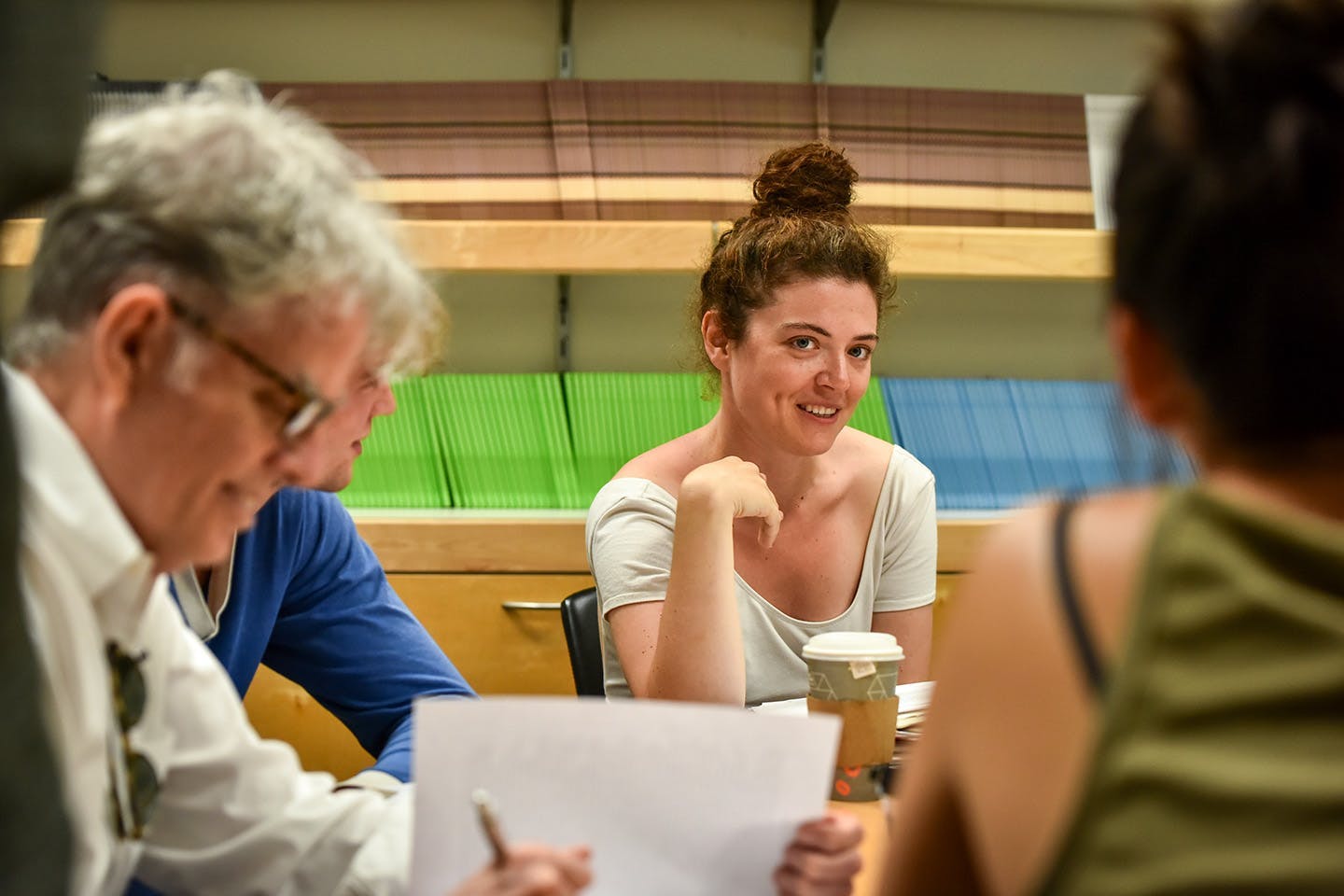
The New School invites you to join a community of diverse writers, become part of New York City’s publishing world, and build a network of support on campus and beyond. Our prestigious MFA Creative Writing program is designed to help you develop your writing in supportive workshops and literature seminars led by an internationally recognized faculty and renowned authors.
books published annually by alumni and faculty
annual writing events, including the National Book Awards Finalist Reading
of admitted MFA students awarded merit-based university scholarships (2020–2021)
MFA in Creative Writing
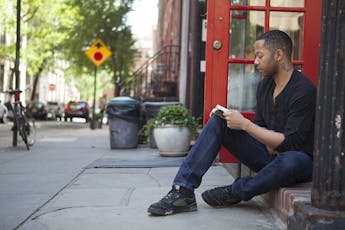
As an MFA student at The New School, you can choose your concentration—in Arts Writing, Fiction, Nonfiction, Poetry, or Writing for Children and Young Adults—and receive personalized faculty mentorship and faculty and peer critiques. Innovative courses in publishing and multimedia storytelling engage you in the development of literature. Popular graduate minors include Impact Entrepreneurship and Transmedia and Digital Storytelling . Or you can apply to WriteOn NYC! , a New School–funded fellowship program providing MFA students with high-quality teaching experience in area middle schools and high schools. All students benefit from evening classes and events, which enable them to work or attend responsibilities during the day while enrolled in a full-time program.
Related Programs
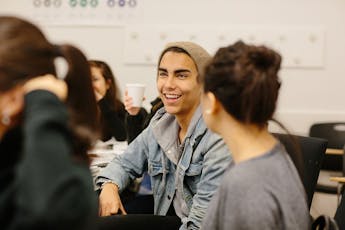
In addition to the renowned MFA in Creative Writing, The New School offers other programs and opportunities for writing students. These include noncredit courses and summer intensives, as well as an undergraduate major in the Bachelor’s Program for Adults and Transfer Students, the Writing and Democracy Honors Program, and undergraduate minors in related fields. Summer Writing Intensive Continuing Education Courses Writing & Democracy Honors Program BA in Creative Writing Undergraduate Creative Writing Courses
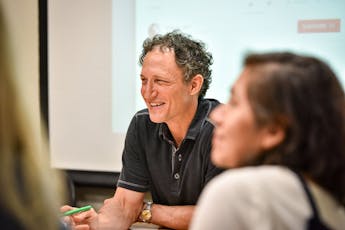
- Meet our faculty
The Writer’s Life in NYC

Creative Writing students come to The New School from across the United States and around the world to live the writer's life in New York City. Evenings with agents and editors, offered exclusively for MFA students, provide informal opportunities to meet publishing professionals.
The New School Bookshelf
We are proud to feature books recently published by The New School's Creative Writing community.
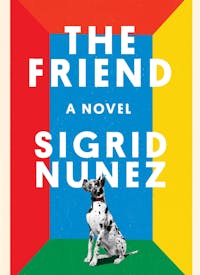
Sigrid Nunez, Faculty
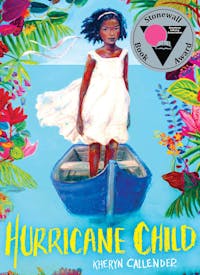
Hurricane Child
Kacen callender, mfa '14.
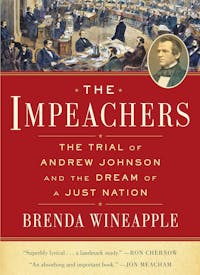
The Impeachers
Brenda wineapple, faculty.
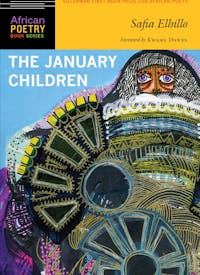
The January Children
Safia elhillo, mfa '15.
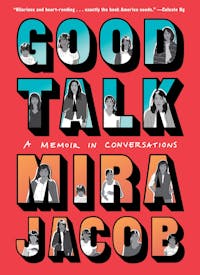
Mira Jacob, Faculty and MFA '01
Events & news.

School of Media Studies | Creative Writing Program Recognition Ceremony and Receptions
- The Vera List Center for Art and Politics Presents New School New Books Event Series
- Adrian Madlener, History of Design and Curatorial Studies ’18, Explores Design Through Writing and Research
- The Vera List Center for Art and Politics Hosts Reading Room Featuring Faculty Books
- Richard Barone, School of Jazz and Contemporary Music Faculty Member, Debuts New Book about Music Scene in 1960’s Greenwich Village
- New Faculty Achievements from Across The New School Include Fellowships, Grants, and More
- Alexandra Kleeman, SPE Assistant Professor of Writing, Awarded Guggenheim Fellowship in Fiction
Take The Next Step
- Request Info
Submit your application
Undergraduates.
To apply to any of our undergraduate programs (except the Bachelor's Program for Adults and Transfer Students and Parsons Associate of Applied Science programs) complete and submit the Common App online.
Undergraduate Adult Learners
To apply to any of our Bachelor's Program for Adults and Transfer Students and Parsons Associate of Applied Science programs, complete and submit the New School Online Application.
To apply to any of our Master's, Doctoral, Professional Studies Diploma, and Graduate Certificate programs, complete and submit the New School Online Application.
Department of English

M.F.A. Admissions
The m.f.a. in creative writing.
The Creative Writing program has been a vital part of the Vanderbilt Department of English for nearly a century. Each year, a small, select class of talented writers of fiction and poetry enroll in Vanderbilt’s three-year, fully-funded M.F.A. in Creative Writing program. We invite you to join us as we continue to build upon the tradition of excellent writing at Vanderbilt.
Our faculty of distinguished creative writers works closely with eighteen M.F.A students—half of whom work in poetry, and half in prose—who are enrolled in the program at any one time. Since each class contains only six students, admission is highly competitive, and no one’s work gets lost or overshadowed.
The M.F.A program has been ranked among the top 15 M.F.A Programs in the country by Poets and Writers magazine, ahead of many better-known graduate programs. We earn high marks for the quality of our prize-winning faculty, for Nashville’s affordable cost of living, and for the financial support we give our students.
M.F.A. Program Features
- A full, three-year 12-month funding package for every M.F.A. student.
- Opportunity for second year students to teach an introductory creative writing workshop
- Opportunity to serve on the editorial board of Nashville Review
- The Gertrude and Harold S. Vanderbilt Visiting Writers Series . Each semester, this program invites distinguished writers for readings and discussions with students. In some years, a distinguished writer in residence visits for a semester and teaches a workshop in his or her genre.
- A supportive atmosphere in which to write: Nashville is a place that respects creative activity. All over town people are busy making things—writing songs and playing music as well as creating art. Vanderbilt’s 350-acre, tree-filled campus—located less than a mile from downtown and just a few blocks from Music Row—is a registered National Arboretum. Vanderbilt’s campus may be peaceful and beautiful, but the action isn’t far away.
- Students in the M.F.A. program work harmoniously and productively with students and faculty in the English Department’s doctoral program. The Department of English Graduate Reading Series, which takes place in the spring, features the work of one M.F.A. student and one Ph.D. student. The English Department’s faculty welcomes M.F.A. students into their literature classes.
Applying to the Program
The application deadline for fall admission is December 15, 2023 . Applicants should complete their application by that day, using the electronic application form . On the Program page, applicants should indicate area of interest (fiction or poetry). Fore more information on how to apply, please visit our FAQ page .
M.F.A. Application Components
- Statement of purpose (no more than 3-5 pages)
- Length Requirement for Creative Writing Sample: If your primary interest is fiction, please provide a fiction writing sample, double spaced, of no more than 25 pages—short story or novel excerpt acceptable. If your primary interest is poetry, please provide a poetry sample of up to 15 pages.
- Three letters of recommendation
- Unofficial college transcript(s); admitted applicants will be required to submit official and final transcripts, with prior degrees posted, as a condition of enrollment at Vanderbilt
- Graduate School Application Fee of $95; for details on the application fee and application fee waiver policy, visit the Graduate School’s website
- Applicants whose native language is not English either must have received a degree at an English-speaking university or must submit TOEFL scores. We require a minimum score of 570 on the paper-based test, 230 on the computer-based test, or 88 on the Internet-based test. Note that scores usually take 4-6 weeks to reach the university, so we recommend that you take the test no later than November 19 in order to meet the December 15 application deadline. Please send inquiries and your requests for applications to TOEFL, P.O. Box 6151, Princeton, New Jersey, 08541-6151.
- The M.F.A program does not require GRE scores.
Financial Aid
M.F.A. Degree Requirements
Check out our alumni books poster at the link below, which features various writers who studied in the Creative Writing program.
Alumni Books Poster
Creative Writing, M.F.A.
College of Arts and Sciences
Expand your knowledge and hone your craft with our fully funded, three-year master’s degree in creative writing, which combines the intimacy of a small program with visits by renowned authors from around the world.
Our dynamic MFA program provides a rigorous yet nurturing community where aspiring writers can compose, experiment, learn and evolve. You’ll have the chance to work with stellar faculty, which includes winners of the National Book Award, the PEN Open Book Award, the Berkshire Prize and the Iowa Poetry Prize (to name only a few).
Program Highlights
Internationally recognized faculty.
Learn from our diverse and dynamic faculty of inspiring teachers, dedicated mentors and award-winning writers.
World-Class Visiting Authors
Engage with renowned authors from around the world through the Open Book as well as our Fall Literary Festival and other series.
Hone your teaching skills and ignite a love of writing in young learners by visiting local public schools as a Split P fellow.
Cola Literary Review
Support and promote new literary work by established and emerging authors by editing our annual print journal.
What You’ll Study
Popular experiences include Fiction and Poetry workshops as well as our annual literary events. Study literature, theory of teaching composition, and electives while completing a book-length MFA project with the mentorship of faculty. Graduates have gone on to careers as authors and agents, in publishing and on the faculty at universities.
Building Skills
Gain the professional and personal intelligence it takes to have a successful career.
Creating professional written content for inclusion in scholarly journal articles, books and reports
Thinking imaginatively, generating original ideas and expressing unique perspectives through art and innovation
Aesthetic and Conceptual Awareness
Cultivating an understanding of artistic and abstract concepts, enhancing appreciation for beauty and creative expression
Foster learning by conveying knowledge, skills and concepts to students
Gathering and analyzing information to increase knowledge or solve problems
Critical Thinking
Analyzing and evaluating information to make informed decisions or judgments
Using your degree
Make your college experience the foundation for a successful future.
Learn how alumni use degrees with outcome data from Gamecock GradStats , a service of the University of South Carolina Career Center.
Potential Careers
- Fiction Writer
- Creative Writing Professor
- Literary Agent
- Journalist / Essayist
Job Titles of Alumni
- Writer and Editor
- Poetry Fellow
- English Teacher
- Assistant Professor
- Communications Specialist
- Freelance Writer
Average Alumni Salary
Five to 10 years after graduation without additional education $76,434
Workplace Settings
- Literary Journals and Magazines
- Small or Large Presses
- Literary Agencies
- Freelance Writing
- Journalism / Commentary
- Higher Education
- Yemassee Journal
- Tulsa Artist Fellowship
- Editorial Consulting
- University of South Carolina
- University of North Carolina at Asheville
- Word Life Editorial
Faculty members in the creative writing program are generous with their time and advice, while taking a light hand in shaping your experience. I have the guidance I need while being able to make my own decisions and explorations.
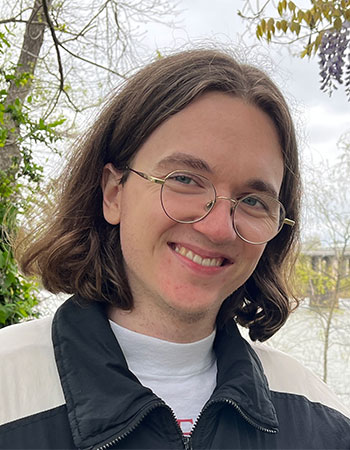
You may also like
Related Degrees
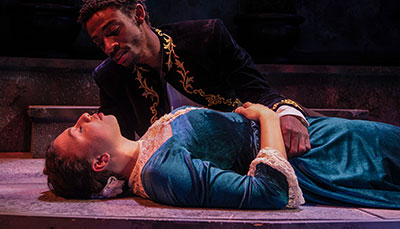
Theatre, M.A.

Conducting: Music, M.M.
School of Music

Opera Theatre: Music, M.M.

Music Performance, M.M.
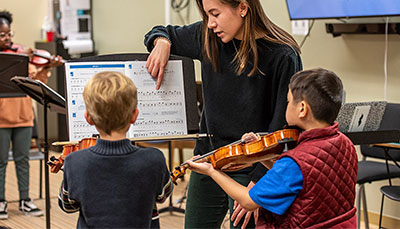
Violin/Viola Pedagogy: Music, M.M.
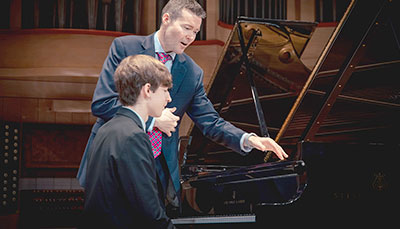
Piano Pedagogy: Music, M.M.
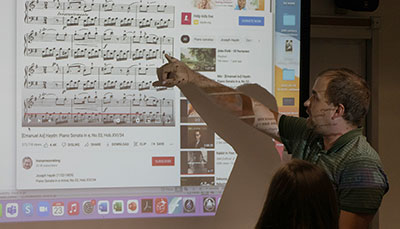
Music Theory: Music, M.M.
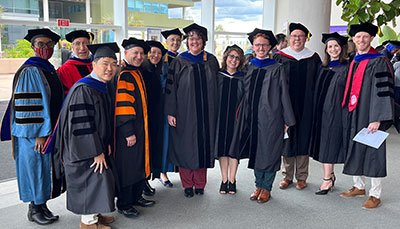
Linguistics, M.A.
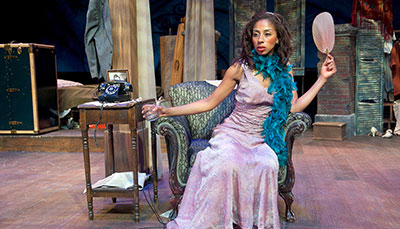
Theatre, M.F.A.
Calculate for all schools
Your chance of acceptance, your chancing factors, extracurriculars, fully funded creative writing mfa programs.
I'm super into writing, and I wanna pursue an MFA in creative writing after I finish my undergrad. Are there any fully funded MFA programs out there that I should be considering? Thanks in advance!
Hey there! It's awesome that you're passionate about writing and want to pursue an MFA in creative writing. There are quite a few fully-funded MFA programs you can consider. When a program is fully-funded, it typically means that accepted students receive a stipend or tuition waiver, allowing them to complete the program without incurring any additional debt. Keep in mind, however, that the level of funding and resources may vary among different programs and institutions. Here are some prominent fully-funded MFA programs in creative writing:
1. University of Iowa – Iowa Writers' Workshop: This is one of the most prestigious creative writing programs in the United States and offers full funding for all students.
2. Cornell University: Cornell's MFA program is highly regarded and offers full funding, including a stipend, to all its students.
3. Vanderbilt University: Vanderbilt offers full funding, which includes tuition waivers and stipends, to all MFA students in creative writing.
4. University of Texas at Austin – Michener Center for Writers: This program offers generous fellowships to all its students, making it highly sought after.
5. University of Michigan: The MFA program at the University of Michigan offers full funding through a combination of teaching assistantships and fellowships.
6. The Ohio State University: The creative writing program at Ohio State provides full funding and support for its MFA students.
These are just a few examples, but there are many other fully-funded MFA programs out there. When looking at different programs, be sure to research the faculty, the program's reputation, the alumni network, and professional development opportunities in addition to funding. This will help you find the program that's the best fit for your writing goals and aspirations. Good luck!
About CollegeVine’s Expert FAQ
CollegeVine’s Q&A seeks to offer informed perspectives on commonly asked admissions questions. Every answer is refined and validated by our team of admissions experts to ensure it resonates with trusted knowledge in the field.
Ohio State nav bar
Ohio state navigation bar.
- BuckeyeLink
- Search Ohio State
MFA in Creative Writing
The Master of Fine Arts Program in Creative Writing at The Ohio State University is designed to help graduate students develop to the fullest their talents and abilities as writers of poetry, fiction and creative nonfiction. Creative writing classes are conducted as workshops or tutorials, and there are numerous opportunities for related study both within and beyond the Department of English. All students are fully funded for three years in a program that is well known for its sense of community and a faculty that is as committed to teaching as to their own writing.
Approximately 36 graduate students are taught by tenure track, visiting and affiliated (Film Studies) faculty, who also teach in the undergraduate program. Graduate student TAs teach introductory and intermediate special topics undergraduate creative writing courses, undergraduate literary publishing, as well as first-year and second-year writing (required courses for all Ohio State undergraduates). TAs teach two classes a year, one in autumn and one in spring. In addition, they have the opportunity to work as editors of Ohio State's prize-winning, nationally distributed literary magazine, The Journal , and to serve on the editorial staff of our two annual book prizes, one in poetry and one in prose.
Course offerings are varied and numerous. Special topics graduate workshops (in the long poem, in characterization, in literary translation, in humor writing, and so on) ensure that, in addition to "regular" workshops, opportunities abound for experimentation. Our graduate program includes coursework designed for "crossing over," such as, poetry workshops for MFA fiction writers or essayists with little experience writing poems; and "forms" classes in prosody, the novel, the memoir, novellas, for example.
Screenwriting for MFAs is offered regularly, and many students also elect to study playwriting or writing for performance as an elective. Some MFAs choose to pursue the Graduate Interdisciplinary Specialization in the Fine Arts (GISFA), which allows them to take graduate courses in other arts disciplines. Indeed, Ohio State's size and breadth offer our students the chance to explore many disciplines that enrich their study and practice of creative writing.
ABOUT THE PROGRAM
Core faculty.
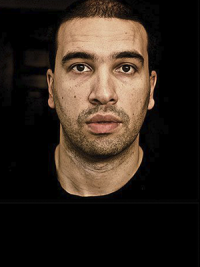
Marcus Jackson is the director of the Creative Writing Program. He earned a BA from the University of Toledo and continued his poetry studies at New York University (NYU) and as a Cave Canem fellow. His poems have appeared in such publications as The American Poetry Review , The New Yorker and Tin House . His first collection of poetry, Neighborhood Register , was released in 2011, and his second collection, Pardon My Heart (Northwestern University Press/TriQuarterly Books) came out in 2019. Please visit Marcus Jackson's website . Email: [email protected]
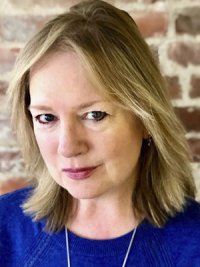
Kathy Fagan Grandinetti is the author of five books of poems: Sycamore (Milkweed Editions, 2017); The Raft , a National Poetry Series Award Winner; MOVING & ST RAGE , winner of the 1998 Vassar Miller Prize for Poetry; The Charm (2002); and LIP (2009). Her poems have been widely anthologized and her work has appeared in such publications as Poetry , The Paris Review , FIELD , The Kenyon Review , Slate , Ploughshares , The New Republic and Blackbird . She is the recipient of fellowships from the National Endowment for the Arts (NEA), the Ingram Merrill Foundation, The Frost Place and the Ohio Arts Council. Director of the Creative Writing Program, she continues to serve as advisor to The Journal , for which she and Michelle Herman were awarded the 2004 Ohioana Award for Editorial Excellence. Fagan is also series editor for The Ohio State University Press/ The Journal Wheeler Poetry Prize. Please visit Kathy Fagan's website . Email: [email protected]
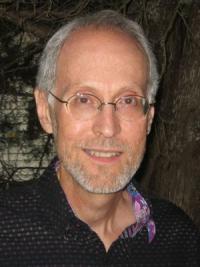
Lee Martin is the author of the novels The Bright Forever ( a finalist for the 2006 Pulitzer Prize in Fiction); River of Heaven ; Quakertown ; Break the Skin ; and Late One Night . He has also published three memoirs: From Our House , Turning Bones and Such a Life . His first book was the short story collection, The Least You Need To Know , and a new collection, The Mutual UFO Network , was published in 2018. His craft book, Telling Stories: The Craft of Narrative and the Writing Life , came out in 2017. He is the co-editor of Passing the Word: Writers on Their Mentors. His fiction and nonfiction have appeared in such places as Harper's, Ms., Creative Nonfiction, The Georgia Review, The Kenyon Review, Fourth Genre, River Teeth, The Southern Review, Prairie Schooner, Glimmer Train, The Best American Mystery Stories and The Best American Essays . He is the winner of the Mary McCarthy Prize in Short Fiction and fellowships from the National Endowment for the Arts and the Ohio Arts Council. He was the winner of the 2006 Alumni Award for Distinguished Teaching from Ohio State, where he is a College of Arts and Sciences Distinguished Professor of English. Please visit Lee Martin's website . Email: [email protected]
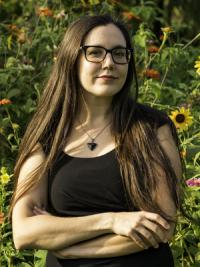
Elissa Washuta is a member of the Cowlitz Indian Tribe and a writer of personal essays and memoir. She is the author of three books: Starvation Mode, My Body Is a Book of Rules , named a finalist for the Washington State Book Award, and White Magic , named a finalist for the 2022 PEN Open Book Award. With Theresa Warburton, she is co-editor of the anthology Exquisite Vessel: Shapes of Native Nonfiction, forthcoming from University of Washington Press. Her work has appeared in Salon , The Chronicle of Higher Education , BuzzFeed and elsewhere. She has received fellowships and awards from the National Endowment for the Arts, Artist Trust, 4Culture, Potlatch Fund and Hugo House. Please visit Elissa Washuta's website . Email: [email protected]
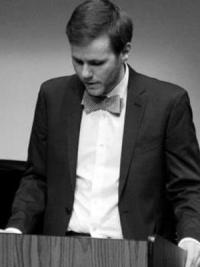
Nick White is the author of the story collection Sweet and Low and the novel How to Survive a Summer. His fiction and essays have appeared in The Kenyon Review, The Literary Review, Indiana Review, Guernica and elsewhere. A native of Mississippi, he earned a PhD in English and creative writing from The University of Nebraska-Lincoln. Please visit Nick White's website . Email: [email protected]
Affiliated faculty

Angus Fletcher is the Black List and Nicholl award-winning screenwriter of MIDDLE EARTH (produced by Bob Shaye and Michael Lynne, directed by Michel Apted), WEE FREE MEN (produced by Allison Thomas and Gary Ross, based on the novel by Terry Pratchett), and VARIABLE MAN (produced by Isa Dick and Electric Shepherd, based on the novella by Philip K. Dick). He earned his PhD from Yale and has published articles on dramatic ethics and practice in Critical Inquiry, New Literary History, The Journal of the History of Philosophy, and a dozen other academic journals. His book Evolving Hamlet appeared on Palgrave in 2011, and his research and writing has been supported by grants from the National Endowment for the Humanities, the National Science Foundation, and the Mellon Foundation. Prior to coming to Ohio State, he taught at USC, Stanford and Teach for America. Email: [email protected]
Alumni of the MFA Program in Creative Writing have had their fiction, poetry and creative nonfiction appear in The Best American Essays, The Best New American Voices, The Best American Travel Writing, Tin House, Southern Review, Kenyon Review, Gettysburg Review, Glimmer Train, Creative Nonfiction, Fourth Genre, River Teeth, The Yale Review, Poetry, American Poetry Review, New Criterion, Field, Iowa Review, The Paris Review, Prairie Schooner, North American Review, Ploughshares, The Washington Post Magazine, The New York Times Magazine, Quarterly West, Epoch, Five Points , and other notable venues.
Below are just a few of these outstanding alumni poets and writers.
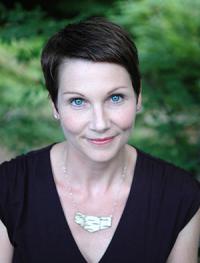
Maggie Smith is the author of Weep Up (Tupelo Press, forthcoming 2018); The Well Speaks of Its Own Poison (Tupelo Press 2015), winner of the Dorset Prize and the 2016 Independent Publisher Book Awards Gold Medal in Poetry Lamp of the Body (Red Hen Press 2005), winner of the Benjamin Saltman Award; and three prizewinning chapbooks. Her poems regularly appear in journals such as The Paris Review, The Southern Review, The Gettysburg Review, Plume, Virginia Quarterly Review, and Guernica . The recipient of fellowships from the National Endowment for the Arts, the Ohio Arts Council, the Sustainable Arts Foundation, and elsewhere, Smith is a freelance writer and editor in Bexley, Ohio, and she serves as a consulting editor to the Kenyon Review . (MFA, 2003) Maggie Smith's website .
Photo credit: Lauren Powell
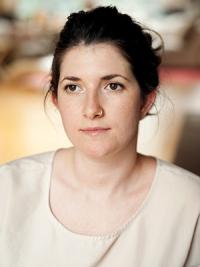
Claire Vaye Watkins (MFA, 2011) is the author of the novel Gold, Fame, Citrus (2015) and Battleborn , a collection of stories (2012). Battleborn was awarded The Story Prize and the 2013 Dylan Thomas Prize and listed by the San Francisco Chronicle as one of the Best Books of 2012. Watkins was awarded an American Academy Arts & Letters Prize in 2012 and has received fellowships from the Writers’ Conferences at Sewanee and Bread Loaf. Her stories and essays have appeared in Granta , One Story, The Paris Review , Ploughshares , Glimmer Train , Best of the West 2011 , and Best of the Southwest 2013. Watkins is an assistant professor at Bucknell University and the co-director, with Derek Palacio, of the Mojave School, a non-profit creative writing workshop for teenagers in rural Nevada.
For more information about Watkins, her work, and the Mojave School, visit her website .
Photo credit: Heike Steinweg

Donald Ray Pollock (MFA, 2009) is the author of the novel The Devil All the TIme (2011) and Knockemstiff (2008), a collection of stories. Pollock grew up in southern Ohio. At 17, He dropped out of high school to work in a meatpacking plant and then spent 32 years employed in a paper mill in Chillicothe, Ohio. Knockemstiff won the 2009 PEN/Robert Bingham Fellowship, and The Devil All the Time was listed by Esquire as one of the Three Books Every Man Should Read. Pollock's work has appeared in Third Coast, The Journal , Sou’wester , Chiron Review , River Styx , Boulevard , Folio, Granta , The New York Times Book Review , Washington Square , and The Berkeley Fiction Review . He is the 2012 recipient of the Grand Prix de Littérature Policière, the most prestigious award for crime and detectives novels in France.
For more information about Pollock and his work, visit his website .
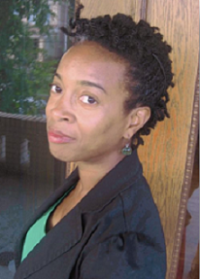
Yona Harvey (MFA, 2001) is a literary artist living in Pittsburgh, Pennsylvania. She is the author of the poetry collection Hemming the Water (Four Way Books: New York), which won the Kate Tufts Discovery Award from Claremont Graduate University.
She is also the recipient of an Individual Artist Grant in literary nonfiction from The Pittsburgh Foundation. Her poems can be found in jubilat, Gulf Coast, Callaloo, West Branch, and various journals and anthologies, including A Poet’s Craft: A Comprehensive Guide to Making and Sharing Your Poetry (Ed. Annie Finch). She lives not far from where jazz pianist and composer Mary Lou Williams grew up. Williams married the spiritual to the secular in her music, and is a regular muse in Yona’s writing. She is an assistant professor in the Writing Program at the University of Pittsburgh.
Visiting Writer John Murillo
Friday, September 22, 2023, at 5 p.m. in Denney Hall 311
John Murillo is the author of the poetry collections Up Jump the Boogie (Cypher 2010, Four Way Books 2020), finalist for both the Kate Tufts Discovery Award and the Pen Open Book Award and Kontemporary Amerikan Poetry (Four Way 2020), winner of the Kingsley Tufts Poetry Award and the Poetry Society of Virginia’s North American Book Award and finalist for the PEN/Voelcker Award for Poetry, Believer Poetry Award, Maya Angelou Book Award, Hurston/Wright Foundation Legacy Award and the NAACP Image Award. His other honors include the Four Quartets Prize from the T.S. Eliot Foundation and the Poetry Society of America, two Larry Neal Writers Awards, a pair of Pushcart Prizes, the J Howard and Barbara MJ Wood Prize from the Poetry Foundation, an NYSCA/NYFA Artist Fellowship, and fellowships from the National Endowment for the Arts, the Bread Loaf Writers Conference, Fine Arts Work Center in Provincetown, Cave Canem Foundation and the Wisconsin Institute for Creative Writing.
Visiting Writer Melissa Faliveno
Friday, November 3, 2023, at 4 p.m. in Denney Hall 311
Melissa Faliveno is the author of the debut essay collection TOMBOYLAND , named a Best Book of 2020 by NPR, New York Public Library, Oprah Magazine and Electric Literature and recipient of a 2021 Award for Outstanding Literary Achievement from the Wisconsin Library Association. Her essays, interviews and reviews have appeared in Esquire, Paris Review, Bitch, Literary Hub, Ms Magazine, Brooklyn Rail and Prairie Schooner , among others, and in the anthology SEX AND THE SINGLE WOMAN: 24 WRITERS REIMAGINE HELEN GURLEY BROWN’S CULT CLASSIC (Harper Perennial, 2022). Melissa is the Fall 2022 Distinguished Visiting Writer in the MFA program at UNC–Wilmington, was the 2020-21 Kenan Visiting Writer at UNC–Chapel Hill, and has also taught creative writing at Kenyon College, Sarah Lawrence College, Catapult and to incarcerated men, high school students and adults in and around New York City.
Visiting Writer Thao Thai
Friday, February 23, 2024, at 4 p.m. in Denney Hall 311
Thao Thai is a writer based out of Ohio, whose work has been published or is forthcoming in the Los Angeles Review of Books, WIRED, Real Simple, Catapult, The Sunday Long Read, Cup of Jo and other publications. Thao’s debut novel, Banyan Moon , is set to come out in June of 2023 (Mariner|HarperCollins). The novel has already been selected as an Indie Next pick, Indies Introduce Title, Book of the Month pick and the HarperCollins Lead Read of Summer 2023. Thao received her MFA in Creative Writing from the Ohio State University in 2012.
Visiting Writer Daisy Hernández
Friday, October 28, 2022 at 4 p.m. in Denney Hall 311
Daisy Hernández is the author of The Kissing Bug: A True Story of a Family, an Insect, and a Nation’s Neglect of a Deadly Disease (Tin House, 2021), which won the PEN/Jean Stein Book Award and was selected as an inaugural title for the National Book Foundation’s Science + Literature Program. The Kissing Bug was named a top 10 nonfiction book of 2021 by Time magazine and was a finalist for the New American Voices Award. Daisy is also the author of the award-winning memoir, A Cup of Water Under My Bed (Beacon Press, 2014), and co-editor of the classic feminist anthology, Colonize This! Young Women of Color on Today’s Feminism (Seal Press, 2002). Her essays and fiction have appeared in numerous publications, and she has reported for National Geographic, The Atlantic, The New York Times and Slate .
Visiting Writer Yona Harvey
Friday, November 18, 2022 at 4 p.m. in Denney Hall 311
Yona Harvey is the author of the poetry collections You Don’t Have to Go to Mars for Love (Four Way Books, 2020), which won the Believer Book Award for Poetry, and Hemming the Water (Four Way Books, 2013), which won the Kate Tufts Discovery Award. She co-wrote Marvel’s World of Wakanda with Roxane Gay, as well as Black Panther & the Crew with Ta-Nehisi Coates. Yona has worked with teenagers writing about mental health issues in collaboration with Creative Nonfiction magazine and is a 2022 Guggenheim Fellow. She is also a 2001 alumna of the Ohio State University’s MFA in Creative Writing Program.
Visiting Writer Jamel Brinkley
Friday, March 3, 2023 at 4 p.m. in Denney Hall 311
Jamel Brinkley is the author of A Lucky Man: Stories (Graywolf Press, 2018), which was a finalist for the National Book Award, the Story Prize, the John Leonard Prize, the PEN/Robert W. Bingham Prize and the Hurston/Wright Legacy Award; and winner of a PEN Oakland Award and the Ernest J. Gaines Award for Literary Excellence. Jamel’s writing has appeared in A Public Space, The Paris Review, Ploughshares, Gulf Coast, The Threepenny Review, Glimmer Train, American Short Fiction, The Believer and Tin House , and it has been anthologized twice in The Best American Short Stories . Jamel was also the 2016-2017 Carol Houck Smith Fellow at the Wisconsin Institute for Creative Writing, a 2018-2020 Wallace Stegner Fellow at Stanford University, and he has been awarded a 2021 O. Henry Prize.
Visiting Writer Laura van den Berg
Friday, October 1, 2021 at 4 p.m. virtually.
Laura van den Berg was born and raised in Florida. Her most recent collection of stories, I Hold a Wolf by the Ears , was published by FSG in July and named a “best summer read” by The New York Times, Time Magazine, Esquire, Harper’s Bazaar and Entertainment Weekly , among others. She is the author of two previous collections, The Isle of Youth (FSG, 2013) and What the World Will Look Like When All the Water Leaves Us (Dzanc Books, 2009) and the novels Find Me (FSG, 2015) and The Third Hotel (FSG, 2018). The Third Hotel was a finalist for the Young Lions Fiction Award, an IndieNext Pick, a Powell’s Books Indispensable Pick and named a “best book of 2018” by over a dozen publications. Laura’s honors include the Rosenthal Family Foundation Award from the American Academy of Arts & Letters, the Bard Fiction Prize, a MacDowell Colony Fellowship, a Civitella Ranieri Foundation Fellowship, a Pushcart Prize, an O. Henry Award and the Jeannette Haien Ballard Writer’s Prize.
Visiting Writer LaTanya McQueen
Friday, November 5, 2021 at 4 p.m. in Denney Hall 311
McQueen’s novel When the Reckoning Comes was published with Harper Perennial , an imprint of HarperCollins . She’s also the author of And It Begins Like This , an essay collection. She received her MFA from Emerson College, her PhD from the University of Missouri, was the 2017-2018 Robert P. Dana Emerging Writer Fellow at Cornell College and is currently an Assistant Professor of English and Creative Writing at Coe College. She writes both fiction and nonfiction and has been published in Carve Magazine, Passages North, Bennington Review, Fugue, Ninth Letter, Grist, The Florida Review, Black Warrior Review, Fourteen Hills, New Orleans Review, Nimrod, New South and Booth . She’s won the Disquiet Literary Prize and the Walker Percy Prize in Fiction.
Visiting Writer Ilya Kaminsky
Friday, March 4, 2022 at 5:30 p.m. in Denney Hall 311
Ilya Kaminsky was born in Odessa, former Soviet Union in 1977, and arrived to the United States in 1993, when his family was granted asylum by the American government. He is the author of Deaf Republic (Graywolf Press) and Dancing In Odessa (Tupelo Press) and co-editor and co-translated many other books, including Ecco Anthology of International Poetry (Harper Collins) and Dark Elderberry Branch: Poems of Marina Tsvetaeva (Alice James Books). His work won The Los Angeles Times Book Award, The Anisfield-Wolf Book Award, The National Jewish Book Award, the Guggenheim Fellowship, The Whiting Award, the American Academy of Arts and Letters' Metcalf Award, Lannan Fellowship, Academy of American Poets’ Fellowship, NEA Fellowship, Poetry magazine's Levinson Prize, and was also shortlisted for the National Book Award, National Book Critics Circle Award, Neustadt International Literature Prize and T.S. Eliot Prize (UK).
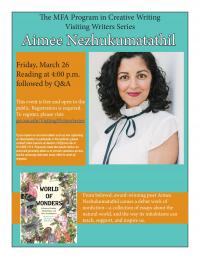
Visiting Writer Aimee Nezhukumatathil
Friday, March 26, 2021, at 4 p.m. on Zoom
Aimee Nezhukumatathil is the author of the New York Times best selling illustrated collection of nature essays and Kirkus Prize finalist, World of Wonders: In Praise of Fireflies, Whale Sharks, and Other Astonishments (2020, Milkweed Editions), which was chosen as Barnes and Noble’s Book of the Year. She has four previous poetry collections: Oceanic (Copper Canyon Press, 2018), Lucky Fish (2011), At the Drive-In Volcano (2007) and Miracle Fruit (2003), the last three from Tupelo Press. Her most recent chapbook is Lace & Pyrite , a collaboration of garden poems with the poet Ross Gay. Her writing appears twice in the Best American Poetry Series , The New York Times Magazine , ESPN , Ploughshares , American Poetry Review and Tin House .
Visiting Writer Liza Wieland
Friday, September 13, 2019 at 4 p.m. in Denney Hall 311
Liza Wieland is the author of eight works of fiction and a volume of poems. She has received fellowships from the National Endowment for the Arts, the Christopher Isherwood Foundation and the North Carolina Arts Council. She is the 2017 winner of the Robert Penn Warren Prize from the Fellowship of Southern Writers. Her novel, A Watch of Nightingales , won the 2008 Michigan Literary Fiction Award and her previous novel, Land of Enchantment , was a longlist finalist for the 2016 Chautauqua Prize. She lives in Oriental, North Carolina, and she teaches at East Carolina University.
Native Craft Reading Series presents Billy-Ray Belcourt
Wednesday, September 18, 2019 at 4 p.m. in Denney Hall 311
Billy-Ray Belcourt (he/him) is a writer and academic from the Driftpile Cree nation. He is a PhD candidate and 2018 Pierre Elliott Trudeau Foundation Scholar in the Department of English and Film Studies at the University of Alberta; his doctoral project is a creative-theoretical one called "The Conspiracy of NDN Joy." He is also a 2016 Rhodes Scholar and holds an MSt in women's studies from the University of Oxford and Wadham College. In the First Nations Youth category, Belcourt was awarded a 2019 Indspire Award, which is the highest honor the Indigenous community bestows on its own leaders. In January 2020, he will be an assistant professor of Indigenous creative writing at the University of British Columbia.
Visiting Writer Nicole Sealey
Friday, October 18, 2019 at 4 p.m. in Denney Hall 311 MFA Workshop: Saturday, October 19 in Denney Hall 311
Born in St. Thomas, U.S. Virgin Islands and raised in Apopka, Florida, Nicole Sealey is the author of Ordinary Beast , finalist for the PEN Open Book and Hurston/Wright Legacy Awards, and The Animal After Whom Other Animals Are Named , winner of the Drinking Gourd Chapbook Poetry Prize. Her other honors include a 2019 Rome Prize, the Stanley Kunitz Memorial Prize from The American Poetry Review, the Poetry International Prize and a Daniel Varoujan Award, grants from the Elizabeth George and Jerome Foundations, as well as fellowships from the Bread Loaf Writers’ Conference, CantoMundo, Cave Canem, MacDowell Colony and the Poetry Project. Her work has appeared in The New Yorke r and elsewhere. Sealey holds an MLA in Africana studies from the University of South Florida and an MFA in creative writing from New York University. Formerly the executive director at Cave Canem Foundation, she is a 2019-2020 Hodder Fellow at Princeton University.
Visiting Writer Robert Fieseler
Friday, January 10, 2020 at 4 p.m. in Denney Hall 311
Robert W. Fieseler is the 2019 National Lesbian and Gay Journalists Association "Journalist of the Year" and the acclaimed debut author of Tinderbox: The Untold Story of the Up Stairs Lounge Fire and the Rise of Gay Liberation , winner of the Edgar Award in Best Fact Crime and Lambda Literary's Judith A. Markowitz Award for Emerging Writers. He graduated co-valedictorian from the Columbia Journalism School and lives with his husband and dog in New Orleans.
Visiting Writer Dan Kois
Friday, January 24, 2020 at 4 p.m. in Denney Hall 311 MFA Workshop: Saturday, January 25 in Denney Hall 311
Dan Kois is the author of How to Be a Family and the co-author of The World Only Spins Forward .
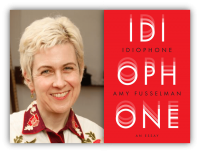
Visiting Writer Amy Fusselman
Wednesday, September 12 at 4:30 p.m. at the Wexner Center for the Arts Bookstore
Amy Fusselman is a writer, artist and publisher based in New York City. She is the author of three books of nonfiction: Savage Park: A Meditation on Play, Space and Risk for Americans Who Are Nervous, Distracted and Afraid to Die (Houghton Mifflin Harcourt, 2015); The Pharmacist’s Mate (McSweeney’s, 2013); and 8 (McSweeney’s, 2013). Her new book, Idiophone , was released from Coffee House Press on July 3rd, 2018. Her writing has appeared in ARTnews, Ms., The New York Times, Artnet, The Believer, McSweeney’s Internet Tendency, and The Atlantic , among other places. Fusselman is the publisher at Ohio Edit , a digital art and literary journal that offers 99-cent downloadable essays on thought-provoking topics.
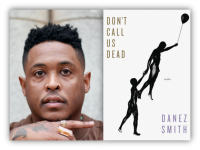
Visiting Writer Danez Smith
Reading: Friday, September 14 at 4:30 p.m. in 311 Denney Hall. MFA Student Workshop: Saturday, September 15.
Danez Smith is a Black, queer, poz writer and performer from St. Paul, MN. Danez is the author of Don’t Call Us Dead (Graywolf Press, 2017), a finalist for the National Book Award, and [insert] boy (YesYes Books, 2014), winner of the Kate Tufts Discovery Award and the Lambda Literary Award for Gay Poetry. Danez is also the author of two chapbooks, hands on your knees (2013, Penmanship Books) and black movie (2015, Button Poetry), winner of the Button Poetry Prize. They are the recipient of fellowships from the Poetry Foundation, the McKnight Foundation, and is a 2017 National Endowment for the Arts Fellow. Danez's work has been featured widely including in/on Buzzfeed, The New York Times, PBS NewsHour, Best American Poetry, Poetry Magazine, and on the Late Show with Stephen Colbert. Danez is a member of the Dark Noise Collective and is the co-host of VS with Franny Choi, a podcast sponsored by the Poetry Foundation and Postloudness.
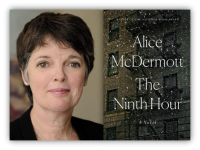
Visiting Writer Alice McDermott
Reading: Friday, September 28 at 4:30 p.m. in 311 Denney Hall. MFA Student Workshop: Saturday, September 29.
Alice McDermott ’s first novel, A Bigamists' Daughter , was published to wide acclaim in 1982. That Night (1987), her second novel, was a finalist for the Pulitzer Prize, the National Book Award, and for the Los Angeles Times Book Prize. At Weddings and Wakes (1992), her third novel, became a New York Times bestseller. Charming Billy (1998), won the National Book Award. Ms. McDermott's other books include Child of My Heart and After This . Ms. McDermott received her BA from the State University of New York at Oswego, and her MA from the University of New Hampshire. She has taught at the University of California at San Diego and American University, has been a writer-in-residence at Lynchburg and Hollins Colleges in Virginia, and was lecturer in English at the University of New Hampshire. Her short stories have appeared in Ms., Redbook, Mademoiselle and Seventeen . The recipient of a Whiting Writers Award, Ms. McDermott is currently writer-in-residence at Johns Hopkins University in Baltimore.
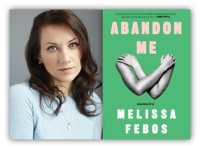
Visiting Writer Melissa Febos
Reading: Friday, March 1 in 311 Denney Hall. Time: 4 p.m. MFA Student Workshop: Saturday, March 2.
Melissa Febos is the author of the critically acclaimed memoir, Whip Smart (St. Martin’s Press 2010) and the essay collection, Abandon Me (Bloomsbury 2017), which The New Yorker called “mesmerizing,” and was an Indie Next Pick and named a Best Book of 2017 by Esquire, Book Riot, The Cut, Electric Literature, The Brooklyn Rail, Bustle, Refinery29, Salon , and The Rumpus . The recipient of an MFA from Sarah Lawrence College, she is currently Assistant Professor of Creative Writing at Monmouth University. She serves on the Board of Directors of VIDA: Women in Literary Arts, the PEN America Membership Committee, and co-curated the Manhattan reading and music series, Mixer, for ten years. She curates literary events, teaches workshops, and speaks widely. The daughter of a sea captain and a psychotherapist, she was raised on Cape Cod and lives in Brooklyn.
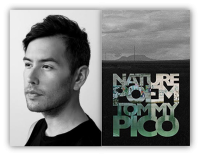
Native Craft Reading Series presents Tommy Pico
Friday, April 13, 2018 at 4 p.m. in Denney 311
Tommy “Teebs” Pico is the founder and editor-in-chief of birdsong, an antiracist/queer-positive collective, small press and zine that publishes art and writing. The author of absentMINDR (VERBALVISUAL, 2014)—the first chapbook APP published for iOS mobile/tablet devices—Pico was a Queer/Art/Mentors inaugural fellow and a 2013 Lambda Literary fellow in poetry and has published poems in BOMB, Guernica, [PANK] and elsewhere. Originally from the Viejas Indian reservation of the Kumeyaay nation, he now lives in Brooklyn, where he co-curates the reading series Poets With Attitude (PWA) with Morgan Parker.
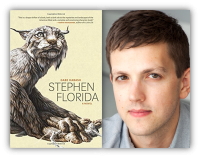
Visiting Writer Gabe Habash
Friday, April 6, 2018 at 4 p.m. in Denney 238
Columbus native Gabe Habash comes back to read from his debut novel, Stephen Florida . Hanya Yanagihara, author of A Little Life , says, "In Stephen Florida , Gabe Habash has created a coming-of-age story with its own, often explosive, rhythm and velocity. Habash has a canny sense of how young men speak and behave, and in Stephen, he's created a singular character: funny, ambitious, affecting, but also deeply troubled, vulnerable and compellingly strange. This is a shape-shifter of a book, both a dark ode to the mysteries and landscapes of the American West and a complex and convincing character study." Gabe is currently the fiction reviews editor for Publishers Weekly . He holds an MFA from New York University.
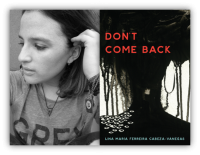
Visiting Writer Lina María Ferreira Cabeza-Vanegas (creative nonfiction)
Friday, February 23, 2018 at 4 p.m. in Denney 311 MFA Student Workshop: Saturday, February 24
Lina María Ferreira Cabeza-Vanegas received a 2016 Writer’s Award from the Rona Jaffe Foundation. Her nonfiction book, Don’t Come Back , was released in 2017 from Mad River Books, an imprint of the Ohio State Press. She has MFA degrees in both creative nonfiction and literary translation, both from the University of Iowa. She is also the author of Drown Sever Sing .
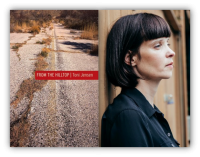
Native Craft Reading Series presents Toni Jensen
Reading: Monday, November 13, 2017 at 4:30 p.m. in 311 Denney Hall
Toni Jensen ’s first story collection, From the Hilltop , was published through the Native Storiers Series at the University of Nebraska Press. Her stories have been published in journals such as Ecotone , Denver Quarterly , and Fiction International and have been anthologized in New Stories from the South , Best of the Southwest , and Best of the West: Stories from the Wide Side of the Missouri . She’s working on a collection-in-progress, called Cowboyistan , about fracking and the sex trafficking of Indigenous women. She teaches in the Programs in Creative Writing and Translation at the University of Arkansas. She is Métis.
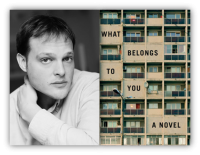
Visiting Writer Garth Greenwell (fiction)
Reading: Saturday, November 4, 2017 at 5 p.m. in 311 Denney Hall MFA Student Workshop: Saturday, November 4, 2017
Garth Greenwell is the author of What Belongs to You , which won the British Book Award for Debut of the Year, was longlisted for the National Book Award, and was a finalist for six other awards, including the PEN/Faulkner Award, the James Tait Black Memorial Prize, and the Los Angeles Times Book Prize. A New York Times Book Review Editors' Choice, it was named a Best Book of 2016 by over fifty publications in nine countries, and is being translated into eleven languages. His short fiction has appeared in The New Yorker, The Paris Review , A Public Space , and VICE , and he has written criticism for The New Yorker , the London Review of Books , and the New York Times Book Review , among others. He lives in Iowa City.
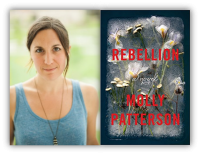
MFA Alumna Molly Patterson
Reading: Tuesday, October 24, 2017 at 4 p.m. in 311 Denney Hall
Molly Patterson was born in St. Louis and lived in China for several years. Her work has appeared in several magazines, including The Atlantic Monthly and The Iowa Review . She was the 2012-2013 Writer-in-Residence at St. Albans School in Washington, D.C., and is the recipient of a Pushcart Prize. Her debut novel, Rebellion , was published by Harper (HarperCollins) in August 2017.
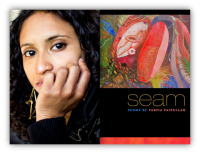
Visiting Poet Tarfia Faizullah
Reading: Friday, October 20, 2017 at 4:30 p.m. in 311 Denney Hall MFA Student Workshop: Saturday, October 21, 2017
Bangladeshi American poet Tarfia Faizullah grew up in Midland, Texas. She earned an MFA from the Virginia Commonwealth University program in creative writing. Her first book, Seam (2014), won the Crab Orchard Series in Poetry First Book Award. Faizullah’s honors and awards include an Associated Writers Program Intro Journals Award, a Dorothy Sargent Rosenberg Prize, a Copper Nickel Poetry Prize, a Ploughshares’Cohen Award, and a Bread Loaf Writers’ Conference Margaret Bridgman Scholarship in Poetry. A Kundiman fellow, she lives in Detroit where she teaches at the University of Michigan and is an editor for the Asian American Literary Review and Organic Weapon Arts Chapbook Series. Her second book is Registers of Illuminated Villages (Graywolf Press, 2018).
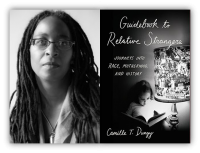
Visiting Writer Camille Dungy
Co-sponsored by project narrative.
Panel Discussion "A Conversation about Camille Dungy's Writing": Tuesday, September 19 at 4 p.m. in 311 Denney Hall Reading: Wednesday, September 20, 2017 at 11 a.m. in 311 Denney Hall
Camille T. Dungy is the author of four collections of poetry: Trophic Cascade (Wesleyan UP, 2017), Smith Blue (Southern Illinois UP, 2011), Suck on the Marrow (Red Hen Press, 2010), and What to Eat, What to Drink, What to Leave for Poison (Red Hen Press, 2006). Her debut collection of personal essays is Guidebook to Relative Strangers (W. W. Norton, 2017). Dungy’s honors include an American Book Award, two Northern California Book Awards, two NAACP Image Award nominations, and a California Book Award silver medal. Her poems and essays have been published in Best American Poetry, The 100 Best African American Poems, nearly thirty other anthologies, and over one hundred print and online journals.
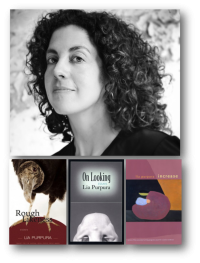
Lia Purpura
April 7-9, 2017
Lia Purpura is the author of three collections of essays ( Rough Likeness, On Looking, and Increase ) in addition to a collection of translations and three books of poems. A Finalist for the National Book Critics Circle Award (for On Looking ), she has also been awarded a Guggenheim Fellowship, an NEA Fellowship, a Fulbright Foundation Fellowship (Translation, Warsaw, Poland), and three Pushcart Prizes. Lia Purpura is Writer in Residence at the University of Maryland, Baltimore County, in Baltimore, MD and teaches at the Rainier Writing Workshop in Tacoma, WA. Recently, she has served as Bedell Visiting Writer at the University of Iowa’s MFA Program in Nonfiction. www.liapurpura.com
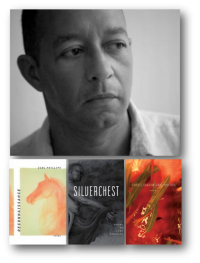
Carl Phillips
October 22-23, 2016
Carl Phillips is the author of numerous books of poetry, including Reconnaissance , Silverchest , Double Shadow , Quiver of Arrows: Selected Poems 1986-2006 , and Riding Westward . His honors include the 2006 Academy of American Poets Fellowship, an Award in Literature from the American Academy of Arts and Letters, the Pushcart Prize, the Academy of American Poets Prize, induction into the American Academy of Arts and Sciences, and fellowships from the Guggenheim Foundation and the Library of Congress. Phillips served as a Chancellor of the Academy of American Poets from 2006 to 2012. He is Professor of English and of African and African American Studies at Washington University in St. Louis, where he also teaches in the Creative Writing Program.
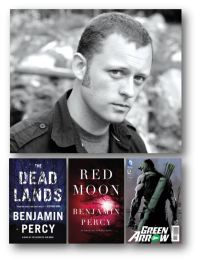
Benjamin Percy
September 23-25, 2016
Benjamin Percy is the author of three novels, the most recent among them The Dead Lands (Grand Central/Hachette, April 2015), a post apocalyptic reimagining of the Lewis and Clark saga. He is also the author of Red Moon (Grand Central/Hachette, May 2013) and The Wilding (Graywolf Press, 2010), as well as two books of short stories, Refresh, Refresh (Graywolf Press, 2007) and The Language of Elk (Grand Central/Hachette, 2012; Carnegie Mellon University Press, 2006). His craft book — Thrill Me: Essays on Fiction — will be published by Graywolf Press in October of 2016. And his next novel, The Dark Net , is due out in 2017 with Houghton Mifflin Harcourt. He also writes the Green Arrow and Teen Titans series at DC Comics. His honors include a fellowship from the National Endowment for the Arts, the Whiting Writers’ Award, two Pushcart Prizes, the Plimpton Prize, and inclusion in Best American Short Stories and Best American Comics. He is a member of the WGA screenwriters’ guild and has sold scripts to FOX and Starz. He currently has several film and TV projects in development.
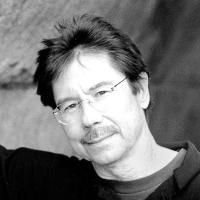
Stuart Dybek
November 20-22, 2015
Stuart Dybek is the author of three books of fiction: I Sailed With Magellan , The Coast of Chicago , and Childhood and Other Neighborhoods . Both I Sailed With Magellan and The Coast of Chicago were New York Times Notable Books, and The Coast of Chicago was a One Book One Chicago selection. Among Dybek’s numerous awards are a PEN/Malamud Prize “for distinguished achievement in the short story,” a Lannan Award, a Whiting Writers Award, an Award from the Academy of Arts and Letters, several O.Henry Prizes, and fellowships from the NEA and the Guggenheim Foundation.
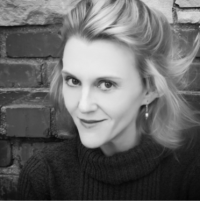
Meghan Daum
January 29-31, 2016
Meghan Daum is the author of four books, most recently the collection of original essays The Unspeakable: And Other Subjects of Discussion . She is also the editor of Selfish, Shallow and Self-Absorbed: Sixteen Writers on the Decision Not To Have Kids . Her other books include the essay collection My Misspent Youth , the novel The Quality of Life Report , and Life Would Be Perfect If I Lived In That House , a memoir. Since 2005, Meghan has been an opinion columnist at The Los Angeles Times, covering cultural and political topics. She is the recipient of a 2015 Guggenheim Fellowship and is currently an adjunct associate professor in the M.F.A. Writing Program at Columbia University's School of the Arts.
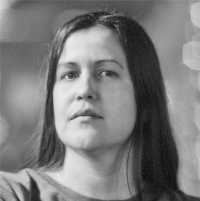
Natalie Diaz
February 19-21, 2016
Natalie Diaz was born in the Fort Mojave Indian Village in Needles, California. She is Mojave and an enrolled member of the Gila River Indian community. She is the author of the poetry collection When My Brother Was an Aztec (2012). Her honors and awards include the Nimrod/Hardman Pablo Neruda Prize for Poetry, the Louis Untermeyer Scholarship in Poetry from Bread Loaf, the Narrative Poetry Prize, and a Lannan Literary Fellowship. Diaz lives in Mohave Valley, Arizona, where she works with the last speakers of Mojave and directs a language revitalization program.
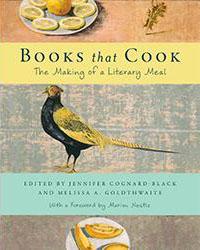
BOOKS THAT COOK: The Making of a Literary Meal, A Food Writing Extravaganza
Thursday, March 26, 2015, Denney Hall 311 Food Writing Panel at 3 p.m. Reading at 4 p.m. Cooking Class (off-campus) at 6 p.m. (more details below and on this flyer [pdf] )
Organized like a cookbook, Books that Cook: The Making of a Literary Meal is a collection of American literature written on the theme of food. The literary works within each section are an extension of these cookbooks, while the cookbook excerpts in turn become pieces of literature — forms of storytelling and memory-making all their own. Each section offers a delectable assortment of poetry, prose and essays, and the selections all include at least one tempting recipe to entice readers to cook this book. Edited by OSU alumni Jennifer Cognard-Black and Melissa A. Goldthwaite , and including work by OSU creative writing professor Kathy Fagan .
Food Writing Panel from 3-4 p.m. featuring:
Melissa Goldthwaite , Editor, Books that Cook Jennifer Cognard-Black , Editor, Books that Cook Colleen Leonardi , Managing Editor, Edible Columbus Mike Bierschenk , Food Writer, Optional Kitchen Nancy Yan , Lecturer, The Ohio State University Newark Jonathan Buehl , Associate Professor, Ohio State English
Literary Reading from 4-5 p.m. featuring:
Jennifer Cognard-Black , Editor, Books that Cook Melissa Goldthwaite , Editor, Books that Cook Kathy Fagan , Poet and Professor, MFA Faculty, OSU
Cooking Class (Hors d'Oeuvres) from 6-8 p.m.
with Sarah Lagrotteria , Cooking Instructor and Recipe Editor for Edible Columbus at The Seasoned Farmhouse Cooking School in Clintonville
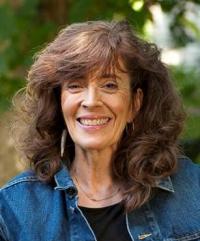
Gail Caldwell
Saturday, November 8, 2014 at 8 p.m. OSU Bookstore - Barnes & Noble Event Space, Second Floor 1598 N. High Street
Gail Caldwell was the chief book critic for The Boston Globe and the winner of the 2001 Pulitzer Prize for Criticism. Her work was noted for “her insightful observations on contemporary life and literature.” She wrote A Strong West Wind: A Memoir (2006) about her native Texas, and Let's Take the Long Way Home (2010), a memoir of her friendship with author Caroline Knapp. Her latest book, New Life, No Instructions, was released in April 2014. She has a Samoyed named Tula.
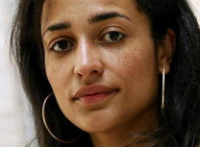
Zadie Smith
Thursday, November 13, 2014 Mershon Auditorium/Wexner Center for the Arts 1871 N. High Street 5 p.m.
As of 2012, Zadie Smith has published four novels, all of which have received substantial critical praise. In 2003, she was included on Granta's list of 20 best young authors, and was also included in the 2013 list.[ She joined New York University's Creative Writing Program as a tenured professor on September 1, 2010. Smith has won the Orange Prize for Fiction in 2006 and her novel White Teeth was included in Time magazine's TIME: 100 Best English-language Novels from 1923 to 2005 list.
Presented by the President and Provost's Diversity Lecture and Cultural Arts Series, with co-host The Humanities Institute.
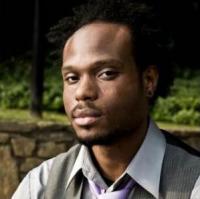
Friday, January 16, 2015 at 7 p.m. OSU Bookstore - Barnes & Noble Event Space, Second Floor 1598 N. High Street
Jamaal May is a poet, editor and educator from Detroit, where he taught poetry in public schools and worked as a freelance audio engineer and touring performer. He is the author of Hum (2013), winner of the Beatrice Hawley Award, and two poetry chapbooks ( The God Engine and The Whetting of Teeth ). A graduate of Warren Wilson's MFA program for writers, Jamaal teaches in the Vermont College of Fine Arts MFA program.
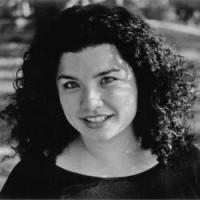
Sarah Shun-Lien Bynum
Friday, February 6, 2015 at 8 p.m. OSU Bookstore - Barnes & Noble Event Space, Second Floor 1598 N. High Street
Sarah Shun-lien Bynum is the author of two novels, Ms. Hempel Chronicles , a finalist for the 2009 PEN/Faulkner Award, and Madeleine Is Sleeping , a finalist for the 2004 National Book Award and winner of the Janet Heidinger Kafka Prize. The recipient of a Whiting Writers’ Award and an NEA Fellowship, she was named one of “20 Under 40” fiction writers by the New Yorker. She lives in Los Angeles and teaches in the Graduate Writing Program at Otis College of Art and Design.
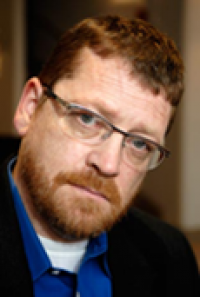
January 25, 2014 OSU Bookstore - Barnes & Noble Event Space, Second Floor 1598 N. High Street 8 p.m.
Dan Chaon is the acclaimed author of Among the Missing , which was a finalist for the National Book Award, and You Remind Me of Me , which was named one of the best books of the year by The Washington Post , Chicago Tribune , San Francisco Chronicle , The Christian Science Monitor , and Entertainment Weekly , among other publications. Chaon’s fiction has appeared in many journals and anthologies, including The Best American Short Stories , Pushcart Prize , and The O. Henry Prize Stories . He has been a finalist for the National Magazine Award in Fiction, and he was the recipient of the 2006 Academy Award in Literature from the American Academy of Arts and Letters. Chaon lives in Cleveland, Ohio, and teaches at Oberlin College, where he is the Pauline M. Delaney Professor of Creative Writing.
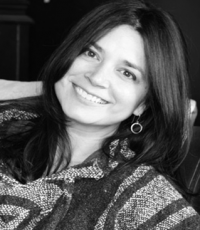
November 25, 2013 311 Denney Hall 164 W. 17th Avenue 3 p.m.
Born in Miami, Joy Castro is the author of the novel Hell or High Water and the memoir The Truth Book . She teaches literature, creative writing, and Latino studies at the University of Nebraska-Lincoln, and her work has appeared in Fourth Genre , Seneca Review and The New York Times Magazine .
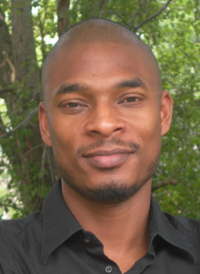
Terrance Hayes
November 16, 2013 OSU Bookstore - Barnes & Noble Event Space, Second Floor 1598 N. High Street 7:30 p.m.
Terrance Hayes was born in Columbia, South Carolina in 1971. He received a BA from Coker College in Hartsville, South Carolina, and an MFA from the University of Pittsburgh writing program. He is the author of Lighthead (Penguin, 2010), which won the National Book Award for Poetry; Wind in a Box (2006); Hip Logic (2002), which won the 2001 National Poetry Series and was a finalist for the Los Angeles Times Book Award; and Muscular Music (1999), winner of the Kate Tufts Discovery Award. He has received many honors and awards, including a Whiting Writers Award, a Pushcart Prize, three Best American Poetry selections, as well as fellowships from the National Endowment for the Arts Fellowship and the Guggenheim Foundation. He is professor of creative writing at the University of Pittsburgh.
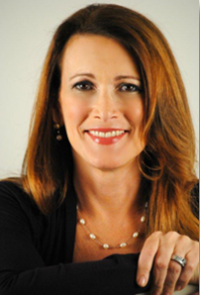
Hope Edelman
October 20, 2013 OSU Bookstore - Barnes & Noble Event Space, Second Floor 1598 N. High Street 4 p.m.
Hope Edelman holds a bachelor's degree in journalism from Northwestern University and a master's degree in writing from the University of Iowa. She is the author of six nonfiction books: the international bestseller Motherless Daughters (1994), which was published in sixteen countries and translated into eleven languages; Letters from Motherless Daughters (1995), an edited collection of letters from readers; Mother of My Mother (1999), which looks at the depth and influence of the grandmother-granddaughter relationship; Motherless Mothers (2006), about the experience of being a mother when you don't have one; and The Possibility of Everything (2009), her first book-length memoir, set in Topanga Canyon, California, and Belize. In 2012 she collaborated with actors and filmmakers Martin Sheen and Emilio Estevez to help them write their father-son memoir, Along the Way .
To find dates, times and locations for these events, check the event calendar.
- Alumni Writers Extravaganza The Alumni Writers Extravaganza is a celebration of Ohio State alumni creative writers and of creating writing at The Ohio State University. This major event takes place every three years. The next AWE will be in 2021. Please check back for more information as it becomes available.
- Editors Panel This event, coordinated by the Writer's Guild, provides MFA students, as well as the greater university and Columbus community, with the opportunity to get firsthand advice from editors and, in some cases, literary agents. MCs ask questions provided to them by students.
Epilog is an annual public performance which showcases creative work by third-year students in the MFA Program in Creative Writing. Epilog is an opportunity for the public to discover the prose and poetry that is being created by current MFA students. Following brief introductions by creative writing faculty, participating students give readings of their poetry, essays and stories in a formal, gala-like atmosphere. Chapbooks including selections from each of the presenting students are available at the event. This event is sponsored by the Writer's Guild.
- Student-Faculty Readings Twice each semester, a faculty member teams up with several MFA students to give a reading that is open to all. These events are a special showcase for the MFA students to read their work.
- Mother Tongue (MoTo) Mother Tongue evenings offer MFA students an opportunity to read work to their peers in a spirited setting off campus. Students often dedicate much time and creativity to their introductions of one another, fostering an entertaining evening rich with camaraderie. This event is coordinated by the Writer's Guild.
- Native Craft Reading Series
Writer's Guild
Each Ohio State University MFA candidate is a member of Writers Guild, an organization dedicated to enhancing student life and the university community through fundraisers, social activities, industry panels and recognition of graduating classmates. Its board serves as a liaison between graduate students and faculty to discuss developments and communicate news.
English Graduate Organization
The English Graduate Organization is a professional development, networking and advocacy group for all graduate students in the English department. EGO allows graduate students to have a tangible impact on departmental decisions and policies. Elected to specific committees, EGO officers coordinate academic and social events, serve on faculty committees and act as liaisons between graduate students and administration, providing a crucial voice in discussions that affect students’ day-to-day lives and future careers. In addition to promoting the interests of a dynamic graduate student body, EGO offers a valuable opportunity for its officers to prepare for service responsibilities in a profession that thrives on self-governance. EGO officers can vote at monthly English Department Council meetings, which all graduate students can attend.
The award-winning literary journal of The Ohio State University, The Journal contributes significantly toward the literary landscape of Ohio and the nation. The Journal seeks to identify and encourage emerging writers while also attracting the work of established writers to create a diverse and compelling magazine.
The Young Writers Workshop is a week-long summer program for high school students in Columbus City Schools, charter schools in the City of Columbus, South-Western City Schools, and Reynoldsburg City Schools. Each year, the Ohio State creative writing faculty choose 30 students from the application pool to come live on campus and study writing with writers from around the country, including current students in and alumni of the Department of English's MFA Program in Creative Writing. Students are selected based on the promise of their writing — we don’t ask for grades or letters of recommendation, just a statement of intent and writing samples. The program is entirely funded by a generous donor, and all participating students receive full scholarships.
Students attend daily workshops and courses taught by Ohio State faculty, graduate alumni and graduate students and have time to work on their own writing every day as well as attend readings, sessions with visiting writers in various fields, and other events, and participate in an open mic reading of their own work. The program concludes with a capstone event honoring the students and their families.
The deadline for all awards is Wednesday, February 21, 2024, at 11:59 pm EST . Please open the attachment below for award information, submission links and instructions.
To view a list of award winners, visit the Graduate Student Awards page.
Students in the MFA program must complete 39 semester hours of graduate-level course work, including:
- English 6763.01 Graduate Workshop in Poetry (3 credits)
- English 6763.02 Graduate Workshop in Poetry for MFA Students in Fiction or Creative Nonfiction (3 credits)
- English 6765.01 Graduate Workshop in Fiction (3 credits)
- English 6765.02 Graduate Workshop in Fiction for MFA Students in Poetry or Creative Nonfiction (3 credits)
- English 6768 Graduate Workshop in Creative Nonfiction (3 credits)
- English 6768.02 Graduate Workshop in Creative Nonfiction for MFA Students in Poetry or Fiction (3 Credits)
- English 6769 Graduate Workshop in Creative Writing - Special Topics (3 credits)
- English 6764 Graduate Workshop in Screenwriting (3 credits)
- Nine (9) hours of English other than creative writing courses. A maximum of 3 hours of Independent Study may be counted toward fulfilling this requirement. English 6781 (Introduction to the Teaching of First-Year English) may be counted toward this total. Students are encouraged, but not required, to choose additional courses from OSU's broad offerings in literary studies, including the study of narrative, as well as folklore, film, linguistics and other areas.
- Three (3) hours of a course in literary forms (English 7871). Forms of Poetry and Forms of Fiction or Nonfiction are offered every year. Topics vary; this course may be repeated.
- Three (3) hours of electives in related areas (e.g., other art forms such as music, theater or the visual arts; philosophy; history; literature as offered by departments other than our own, such as foreign language departments; comparative studies–or another relevant course approved by the student's advisor). Courses must be taken at the graduate level (5000 level or above). (Other elective courses, not counted toward credits required for graduation, may be taken at any level.)
- Nine (9) hours of creative thesis tutorial (English 8998); and an approved creative thesis, followed by an oral defense.
APPLICATION INFORMATION
All admitted students are fully funded for our three-year MFA program in Creative Writing. In addition, all students receive either a graduate teaching associateship, a Graduate School fellowship or a combination of the two. Funding is renewed on a yearly basis as long as the student maintains satisfactory academic progress.
- Graduate teaching associateships: Departmental funding is most often in the form of a graduate teaching associateship, for which the student receives a stipend of at least $17,000 for the nine-month academic year. The Department of English also subsidizes 85% of student health insurance premiums and provides a tuition waiver for all GTAs. Students are responsible for COTA bus, student activity, Student Union and Recreation Center fees. Students on GTA appointments teach one course per term during the regular academic year.
- Graduate School fellowships: In addition to the funding provided by the Department of English, the Graduate School awards University and Enrichment Fellowships on a competitive basis to students who are new to graduate education at Ohio State. The Department of English's admissions committee submits nominations to the Graduate School’s competition, and a selection committee reviewing nominations from across all graduate programs in the university awards the fellowships. Students may not apply directly for fellowship support. Each graduate program has a limited number of students who may be nominated for fellowship consideration. All Graduate School fellowships provide a monthly stipend, academic tuition and fees and a subsidy of 85% of the student health insurance premiums. These fellowships are nonrenewable and may not be deferred.
The Graduate Admissions Committee for the Department of English will accept applications to the MFA program from students with an undergraduate degree from an accredited college or university.
The Graduate School requires that those admitted have an undergraduate grade point average of at least 3.0 on a scale of 4 (where 4.0=A) and at least a 3.0 on all previous graduate work. Our departmental criteria are higher: A GPA of at least 3.2 overall is preferred. Coursework in a foreign language is not required for admission.
If you have already earned an MFA in creative writing or are in the process of completing an MFA program in creative writing, you are not eligible for admission to our program.
Submit all following items through the Graduate Admissions Office :
- Application form and fee: If you are interested in a fee waiver, please visit this Graduate and Professional Admissions webpage .
- Three letters of recommendation: Please have your recommenders submit letters electronically using the link that will be provided when you select this option in the online application. Our preference is that your recommenders be faculty who have taught you or writers familiar with your work, as these are likely to be most useful to us. But we understand that for those who have been out of school for some time and those who have not participated in writing workshops or conferences, this may be impossible. You will not be penalized for this, but we do ask that you choose your recommenders carefully from among the options you do have — those who have had the opportunity to work with you or supervise your work, for example.
- Transcripts or record of marks for each university-level school attended: Visit this Graduate and Professional Admissions page for detailed information about transcript submission. Send transcripts to the Office of Graduate and Professional Admissions; do not send transcripts to the Department of English. Include English translation of each of any foreign documents. Please do not send transcripts of course work taken at Ohio State as the Office of Graduate and Professional Admissions will obtain them directly from the Office of the University Registrar (at no cost to you).
- Personal statement (one to two single-spaced pages): that describes your background as a writer and your purpose in pursuing this degree; this statement should address your writing interests and can also briefly describe your interest and/or experience in teaching.
- Creative writing sample: 15 to 25 pages of poetry; or 20 to 40 double-spaced pages of fiction; or 20 to 40 double-spaced pages of nonfiction. On the application uploader, upload your creative writing sample to the “Writing Sample” option. The writing sample is the most important part of your application. Please note that admission is to a single genre, so applicants should choose carefully the genre in which they wish to be considered.
- Curriculum vitae/resume of no more than two pages.
Please note: As of autumn 2018, the Department of English at Ohio State no longer requires GRE scores for applications to its PhD or MFA programs.
Incomplete applications will not be considered.
If your native language is not English:
- 600 Paper-based TOEFL
- 100 Internet-based TOEFL (IBT)
- 8.0 IELTS
All admissions to the MFA program are made for the autumn semester only; the application portal for autumn 2024 will open on September 1, 2023. The application deadline for domestic applicants is December 4, 2023, and the application deadline for international applicants is November 27, 2023
Students must apply online and submit all materials (Graduate Admissions and Department requirements) electronically through the Office of Graduate Admissions . Please note that your recommenders will receive an email from the university 1-3 days after you submit your application and they should follow the instructions in that email for uploading their letters.
- Do you accept applications for genre fiction? While we don’t in any way dislike or discourage genre fiction, our program is known for its literary fiction, nonfiction and poetry instructors and graduates. Familiarizing yourself with them and their work might be your best and most productive research as you consider to which programs you will apply.
- Can I talk to current students and/or faculty at Ohio State? We very much appreciate your interest in our program, and we wish that all prospective students had the opportunity to speak with current students and/or faculty. With the volume of applications we receive each year, however, we are unfortunately unable to accommodate these requests. Admitted students are invited to attend our open house in the spring and meet current students and faculty members at that time.
- I don’t have the required amount of English coursework listed on this page. What should I do? We would encourage you to apply. If your writing sample and application materials match what the committee is looking for, the credit requirement will be waived. It will not negatively impact your application in any way.
- Can I apply for a fee waiver? If you are interested in applying for a fee waiver, please visit this webpage. Please note that the “PGD Program” option is unavailable to students applying for admission to the Department of English.
- What if my recommenders don’t know me in a creative writing capacity? Our preference is that your recommenders be faculty who have taught you or writers familiar with your work, as these are likely to be most useful to us. However, we understand that for those who have been out of school for some time, and those who have not participated in writing workshops or conferences, this may be impossible. You will not be penalized for this, but we do ask that you choose your recommenders carefully from among the options you do have — those who have had the opportunity to work with you or supervise your work, for example.
For questions that can't be answered by the information above, the Creative Writing Program can be reached by email or by phone ( 614-247-9670 ).
[pdf] - Some links on this page are to Adobe .pdf files requiring the use of Adobe Reader. If you need these files in a more accessible format, please contact [email protected] .
Department of English
- Undergraduate
- Alumni and Friends
- Research and Engagement
- Full Site Navigation
- Administration
- Program Coordinators
- How to Find Us
- Creative Writing
- Film Screenings and Events
- Undergraduate Programs
- Graduate Program
Alumni Spotlight
- Student Groups
- Film Studies Collection
- Local Film Scene
- Internships
- Rhetoric and Professional Writing
- Linguistics
- Teacher Education
- Student Responsibilities and Resources
- Course Sampler
- Program Administration
- Program Placement
- Course Descriptions
- Learning Environments
- Transfer Credit
- Non-Native Speakers
- Program Policies
- Writing Resources
- Eligibility
- Requirements & Course Content
- Frequently Asked Questions
- For Students
- Student Resources
- Intern Scholarship
- For Organizational Partners
- For Faculty Recommenders
- English Club
- Student Testimonials
- Sigma Tau Delta
- Study Abroad
- Scholarships
- How to Apply
- Course Samplers
- International Students
- Cost and Financial Assistance
- Teaching Assistantships
- Essential Information for New Graduate Students
- Essential Information for New Teaching Assistants
- Apply to Graduate
- Capstone Process
- Costs and Financial Assistance
- Graduate Plan of Work (GPOW)
- Graduate Student Associations
- Guest Teaching Program
- Independent Study (Directed Readings)
- Inter-Institutional Programs
- Peer Mentoring Program
- Policies and Graduate School Regulations
- Professional Development Resources
- Registration
- University Student Services
- Writing Resources for Graduate Students
- MA in English
MFA in Creative Writing
- MS in Technical Communication
- Accelerated Bachelor's-Master's Program
- Certificate in Digital Humanities
- PhD in Communication, Rhetoric, and Digital Media
- Contact the Graduate Program
- Career Resources
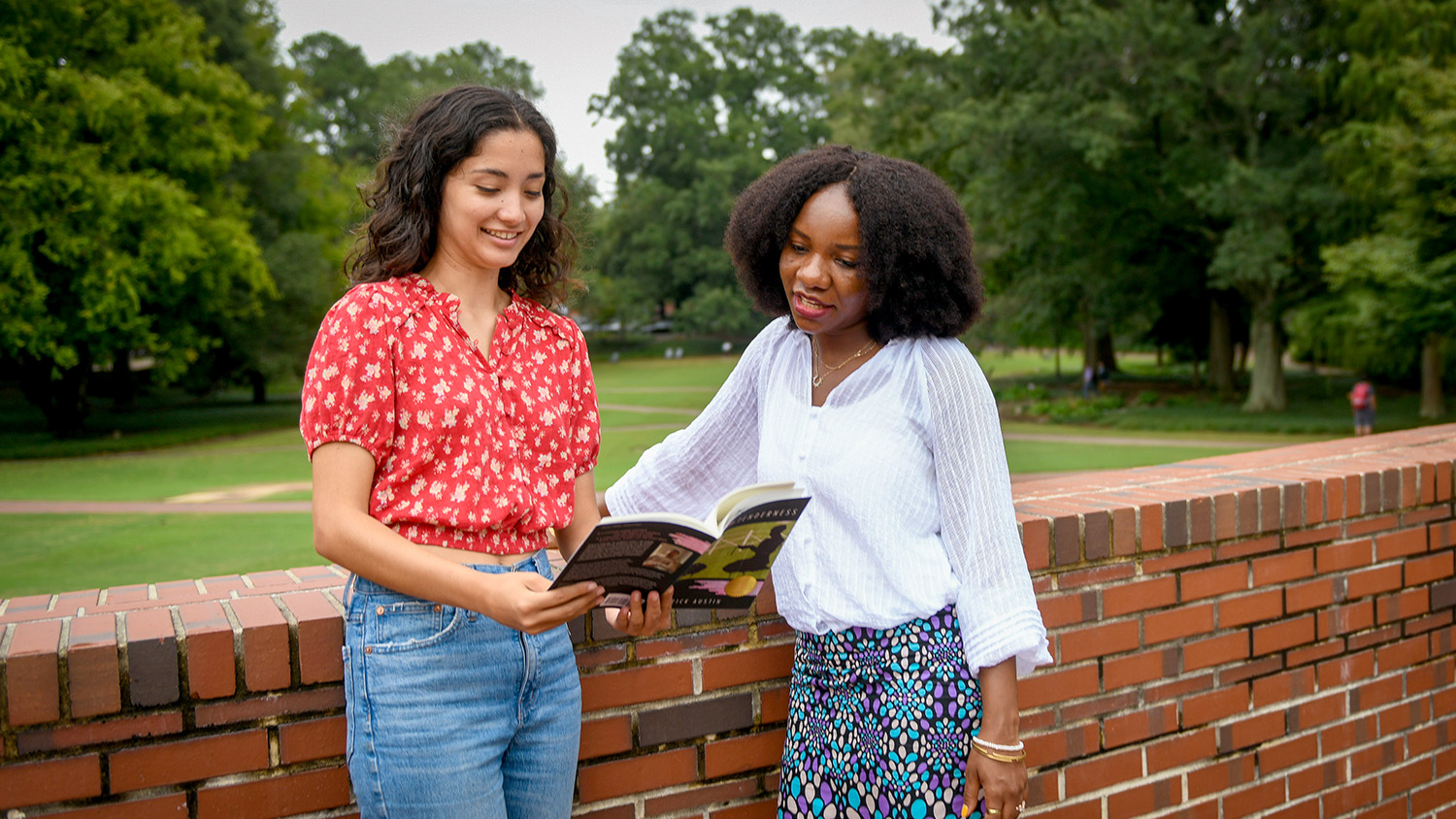
Specialize in poetry or fiction through our Master of Fine Arts in Creative Writing. Work with our award-winning poets and writers to hone your craft. Request Info
Starting your application is easy.
The MFA is a two-year, fully-funded program, consisting of workshops, interdisciplinary coursework and a final thesis of literary work. Distinguished by the one-on-one attention students receive from our faculty poets and writers, the program offers a strong, supportive start to a creative life in words.
- Admission Info
- Degree Requirements
Admission Info
Our program is small, so we can focus on you. We accept only about a dozen students each year, with six or seven students in fiction, and another six or seven in poetry. We offer full funding in the form of a graduate teaching assistantship to all eligible admitted applicants. Deadline to apply: Feb. 1.
How to Apply Apply Now
One of a Kind
Ours is the only Master of Fine Arts in Creative Writing in the Raleigh/Durham/Chapel Hill area.
Degree Requirements
The MFA is a 36-hour program, consisting of four workshops, six graduate-level courses and a thesis of literary work.
Our students apprentice under master writers , and as such, prepare to become the next generation of master writers themselves. Student work produced here has been published and honored by prestigious groups such as The American Academy of Poets, Science Fiction and Fantasy Writers of America and The American Poetry Review , among others. Learn More
Faculty Mentors
Our faculty of working poets and writers believe that individual attention is key: that’s what makes our program so strong. We’ll work with you as you wrangle with your words, while you polish your poems, until your manuscript is submission worthy. We want to help you fine tune your skills and launch your career.
Our poetry faculty:
- Sumita Chakraborty ( Arrow )
- Eduardo C. Corral ( Slow Lightning ; Guillotine )
- Meg Day ( Last Psalm at Sea Level )
Our fiction faculty:
- Belle Boggs ( The Gulf ; The Art of Waiting )
- Carter Sickels ( The Prettiest Star, The Evening Hour )
- LaTanya McQueen ( When the Reckoning Comes, And it Begins Like This )
Retired faculty:
- John Balaban ( Locusts at the Edge of Summer; Empires; Passing Through a Gate ; etc.)
- Wilton Barnhardt ( Western Alliances, Lookaway, Lookaway ; Emma Who Saved My Life; etc.)
- John Kessel ( The Moon and The Other ; Pride and Prometheus; etc.)
- Dorianne Laux ( The Book of Men; Only As the Day is Long; Facts About the Moon ; etc.)
- Jill McCorkle ( Old Crimes, Life After Life ; The Cheer Leader, etc.)
Meet the Faculty
"They’re a thoughtful, positive, critically savvy group."
Kij Johnson (MFA '12)
Outstanding Alumni

Sarah Grunder Ruiz
Meet 2018 MFA alumna Sarah Grunder Ruiz — and learn more about her debut novel, Love, Lists and Fancy Ships .
Since our MFA program was established in 2005, we’ve helped some outstanding writers find their voices. Among our alumni are:
- Therese Anne Fowler , whose fourth book, Z: A Novel of Zelda Fitzgerald , was a 2013 New York Times bestseller and was the inspiration for a TV show, Z: The Beginning of Everything .
- Tyree Daye , whose debut poetry collection, River Hymns , earned The American Poetry Review 's Honickman First Book Prize. Daye was also a 2019 recipient of the prestigious Whiting Award in poetry.
- Kij Johnson , whose f irst collection of short stories, At the Mouth of the River of Bees, contained stories that won Nebula and Hugo Awards. Johnson now teaches at the University of Kansas.
- Noel Crook , whose debut collection, Salt Moon , won the Crab Orchard Series in Poetry First Book Award and was published by Southern Illinois University Press.
- Alyssa Wong , who as a student in the program won the 2015 Nebula Award for Best Short Story and the 2016 World Fantasy Award for Short Fiction.
Additional MFA Resources
- Info for Current Students
- Graduate Teaching Assistantships
- Thesis and Grad Timeline
- NC State Literary Readings
- NC State Fiction Contest
- NC State Poetry Contest
Contact Information
Assistant director, mfa program.
Chelsea Krieg Campus Box 8105 NC State University Raleigh, NC 27695-8105
Graduate Services Coordinator
Ciru Mutura Campus Box 8105 NC State University Raleigh, NC 27695-8105 919.515.4106
University of South Florida
Department of English
TAMPA | ST. PETERSBURG | SARASOTA-MANATEE
Main Navigation
Creative writing mfa.
The Master of Fine Arts in Creative Writing at the University of South Florida is a funded three-year degree. MFA students receive a full tuition waiver and the teaching assistantship comes with a stipend and health insurance. Each year we accept an average of nine students who write comics, creative nonfiction, fiction, and poetry.
Our award-winning faculty include John Fleming, Julia Koets, Jarod Roselló, Natalie Scenters-Zapico, Heather Sellers (program director), and Jake Wolff. We value children’s literature, YA, eco literature, speculative fiction, historical fiction, documentary poetics, poetry of mindfulness, formal poetry, memoir, lyric essay, and hybrid and experimental work, alongside traditional genres.
Our program is tightly knit and sincerely supportive. Workshops are positive and generative. We offer many opportunities for students to read their work publicly, to participate in writing groups and internships, and to work in literary editing and publishing. Saw Palm , our literary magazine, gives students hands-on editorial experience.
As part of the Literary Editing and Publishing course, students have started literary magazines, edited anthologies, written book reviews and weekly columns, and started freelance copyediting and writing businesses. The Spoonbill Reading Series allows MFAs to read alongside faculty. A monthly Nonfiction Salon is open to all writers. The USF Lecture Series and the USF Humanities Institute bring in guest speakers. Recent visitors to the creative writing program include Jericho Brown, Terrance Hayes, Chen Chen, and Naomi Nye.
MFAs typically take three courses and teach two courses. Our teaching training is superb. First year MFAs teach first year writing in our thriving and diverse undergraduate program; they are supported by a pedagogy practicum and official mentoring. Second year students have the opportunity, as courses are available, to teach creative writing courses. A creative writing pedagogy practicum, one of the few in the country, prepares students to design and deliver high quality introductory creative writing courses.
Creative Writing (MFA)
Program description.
The MFA Program in Creative Writing consists of a vibrant community of writers working together in a setting that is both challenging and supportive. This stimulating environment fosters the development of talented writers of poetry, fiction, and creative nonfiction. The program is not defined by courses alone, but by a life built around writing.
Through innovative literary outreach programs, a distinguished public reading series, an exciting public student reading series, special literary seminars with visiting writers, and the production of a high-quality literary journal, students participate in a dynamic literary community actively engaged in all aspects of the literary arts—writing, reading, teaching, publishing and community outreach. Students also have the opportunity to enjoy America's most literary terrain; New York University is situated in the heart of Greenwich Village, a part of the city that has always been home to writers.
The MFA in Creative Writing is designed to offer students an opportunity to concentrate intensively on their writing. This program is recommended for students who may want to apply for creative writing positions at colleges and universities, which often require the MFA degree. The MFA program does not have a foreign language requirement.
All applicants to the Graduate School of Arts and Science (GSAS) are required to submit the general application requirements , which include:
- Academic Transcripts
- Test Scores (if required)
- Applicant Statements
- Résumé or Curriculum Vitae
- Letters of Recommendation , and
- A non-refundable application fee .
See Creative Writing for admission requirements and instructions specific to this program.
Program Requirements
Special project, program information.
Taken in four separate semesters.
Craft courses may be repeated provided they are taught by different instructors.
With the permission of that department and of the director of the CWP.
Additional Program Requirements
A creative special project in poetry or fiction, consisting of a substantial piece of writing—a novella, a collection of short stories, or a group of poems—to be submitted in the student’s final semester. The project requires the approval of the student’s faculty adviser and of the director of the CWP.
The MFA degree may also be earned through the Low Residency MFA Writers Workshop in Paris. Under this model, degree requirements remain the same, although Craft courses and Workshops take the form of intensive individualized courses of study with the faculty, including three substantial packet exchanges of student work per semester. All students earning the MFA degree through the low-residency program must also participate in five ten-day residencies in Paris, which involve a diverse series of series of craft talks, lectures, readings, special events, faculty mentorship meetings, and professional development panels.
Sample Plan of Study
Learning outcomes.
Upon successful completion of the program, graduates will have achieved the following learning outcomes:
- Graduate students in the Creative Writing Program at NYU work intensively with faculty mentors in writing workshops and individual conferences to learn and master the basic elements of the craft of fiction, creative nonfiction, or poetry.
- Students are expected to read widely and deeply, and to acquire a broad practitioner’s knowledge of English and American literature in their declared concentration (poetry, creative nonfiction, or fiction).
- Students are taught to read carefully and critically, and in doing so learn to read as writers. By studying great novels, poems, and works of literary nonfiction by other writers, students learn how to write their own.
- The two-year program of intensive study culminates in the completion of a creative thesis -- a novel, a collection of stories or essays, or a collection of poems. The thesis manuscript, ideally, is a working draft of a first book. Many program alumni go on to publish books and win awards for their writing.
Grading and GPA Policy
Nyu policies, graduate school of arts and science policies.
To qualify for the degree, a student must have a GPA of at least 3.0, must complete a minimum of 24 points with a grade of B or better, and may offer no more than 8 points with a grade of C (no more than 4 points with a grade of C in creative writing workshops). A student may take no more than 36 points toward the degree.
University-wide policies can be found on the New York University Policy pages .
Academic Policies for the Graduate School of Arts and Science can be found on the Academic Policies page .
Print Options
Send Page to Printer
Print this page.
Download Page (PDF)
The PDF will include all information unique to this page.
Orange Alert
Creative writing m.f.a. program, three-year m.f.a. in creative writing.
The three-year M.F.A. program in Creative Writing gives promising fiction writers and poets an opportunity to practice and study their art with dedicated fellow writers. We accept six students in fiction and six students in poetry each year. We have no non-fiction track. All students receive a full tuition waiver and a yearly stipend (currently $20,000 per year). All students have undergraduate teaching duties in their second and third years.
The M.F.A. program is committed to creating a supportive environment for its students. As a program that aims to nurture new voices, we particularly want to welcome writers from underrepresented communities. We encourage people of color to apply. We believe a program is at its best when it is comprised of strong writers from a full spectrum of backgrounds and experiences. Our program strives to be a comfortable and supportive environment for POC-identified students, LGBTQ+ students, international students, veterans, first-generation college students, disabled students, and for everyone who chooses to join us.
Read our Statement of Solidarity .
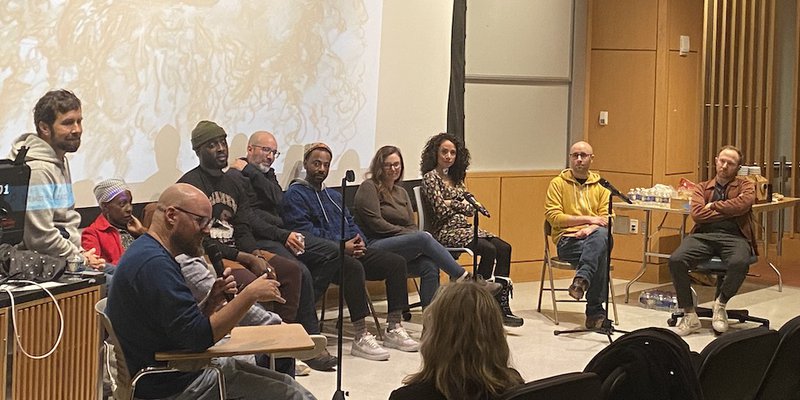
Some notable books by recent alumni
“Things You May Find Hidden in My Ear,” by Mosab Abu Toha ’23 (finalist for the National Book Critics Circle Award)
“Chain Gang All-Stars,” by Nana Kwame Adjei-Brenyah ’16 (longlisted for the National Book Award)
“House of Cotton,” by Monica Brashears ’22
“Grace Engine,” by Joshua Burton ’19
“Tomb Sweeping,” by Alexandra Chang ’18
“Their Divine Fires,” by Wendy Chen ’17
“How It Works Out,” by Myriam Lacroix ’20
“Last Acts,” by Alexander Sammartino ’18
“Songs on Endless Repeat,” by Anthony Veasna So ’20
“We’re Safe When We’re Alone,” by Nghiem Tran ’20
During its nearly 50-year history, the creative writing program has produced an outstanding array of writers whose work has been published by major presses and magazines and won prestigious awards. Distinguished alumni include George Saunders, Lily King, Tom Perrotta, Julia Alvarez, Cheryl Strayed, M.T. Anderson, Daniel Chaon, Rebecca Curtis, Keith Gessen, Jay McInerney, Deb Olin Unferth, and Claire Messud.
M.F.A. in Creative Writing
The three-year M.F.A. program in Creative Writing gives promising fiction writers and poets an opportunity to practice their art with dedicated fellow writers.
- College of Arts & Sciences
- Department of English
Creative Writing M.F.A.

A Good MFA Program is Hard to Find
A good MFA program is hard to find, but we believe the MFA Program at Georgia College & State University in Milledgeville, Georgia offers unique opportunities for MFA students dedicated to the craft and purpose of creative writing. GCSU’s famous alumna, Flannery O’Connor, lived in Milledgeville on her farm, Andalusia, and of our beautiful, Southern town, she wrote "When in Rome, do as you done in Milledgeville." Our MFA students certainly get a lot done in their three years in Milledgeville.
What makes us unique? We take pride in the fact that the MFA Program at Georgia College is a fully-funded, full-residency 3-year MFA program. All students admitted to our MFA program receive a Graduate Assistantship for all 3 years that includes a stipend and tuition remission. Self-funded students are accepted in special circumstances. We offer everything you could find at flagship state universities, but because we are part of a small, public Liberal Arts university, our students are immediately welcomed into a close-knit, creative community. We sponsor a Visiting Writers series, bringing nationally-renowned writers to campus each semester, as well as a graduate student reading series. Our award-winning faculty work closely with students not only as workshop teachers, but as professional mentors.
The MFA Program offers workshops in fiction, creative nonfiction, and poetry, and because we believe in expanding creative possibility and passions for our students, we require students to take cross-genre workshops. Students may write their thesis in fiction, poetry or creative nonfiction. In addition to workshops, students take creative writing seminars in Poetry & Poetics or Prose Forms, pedagogy classes on the teaching of writing, and courses on literature and special topics.
Additionally, we offer courses in journal design and editing, so students get hand-on publishing and graphic design experience. Students are able to put their practical skills to creative and purposeful good use while serving as members of the editorial staff of Arts & Letters , our national literary journal, and one of the premier journals of the Southeast.
We are fully-funded: all students receive full tuition remission as well as a Graduate Assistantship. As part of this assistantship, students gain real-world teaching experience, and work at our Writing Center as tutors, teach undergraduate Composition, and teach in our Early College Program which is modeled on the Writers in the Schools Program. This real world teaching experience is essential for those students who hope to continue with teaching careers and/or community service careers. We also participate in the Peace Corps Paul D. Coverdell Fellows Program which offers assistantships to Peace Corps volunteers.
Finally, the Arts & Letters Journal Editing Fellowship is open to applicants with at least one year of experience in journal publishing and/or editing, desktop publishing and design (preferably with InDesign), and/or marketing and promotion (including social media). The Fellowship offers recipients the opportunity to further develop both editorial and managerial skills over their three years in the MFA program, working closely with Arts & Letters’ Editor and Art Director (for more information about this specific fellowship, refer information under Assistantships ).
Faculty and graduate students alike all practice what we preach and teach at GCSU!
Our 42-hour program is designed to be a three-year program (although other options may be possible for those students that already have an MA Degree) and most students follow a plan that emphasizes course work in the first year and thesis work in the second and third years.
We welcome you to learn more about our admission application process and opportunities for graduate assistantships and other financial aid.
Check out the new design of the Arts & Letters website !
We now have a dynamic platform that is more efficient and responsive, and we’ve packaged it in a prettier and more user-friendly design. We are also now connected across a number of social networks, including Facebook , Twitter , Tumblr , and Google+ , so that our readers can keep up on Arts & Letters news, reading periods, information on upcoming issues, and prizes.
Visiting Writer Series
African writers festival.
DEGREE REQUIREMENTS
Prospective students for our Master of Fine Arts in Creative Writing program usually apply late fall/early winter for the following fall semester. Applications must be complete by Feb.1 for students who wish to be considered for an MFA assistantship (learn more about assistantships and other financial aid available to graduate students).
Application Process, Part One:
Domestic Applicants: Submit the completed on-line graduate application ($35 fee) and required materials to Graduate Admissions . Application and required materials must be submitted by February 1 :
- The completed on-line graduate application plus $35 fee to Graduate Admissions.
- Georgia College & State University The Graduate School Graduate Admissions Office Campus Box 107 Milledgeville, GA 31061
- OFFICIAL undergraduate or graduate transcripts (even if still in progress). If you are in your final year of undergraduate studies, you can still be admitted to the program, though final admission will be contingent upon receiving final transcripts upon your graduation from your undergraduate institution.
Questions? Contact Graduate Admissions .
International Applicants: If you are an International Student please submit the completed International Graduate Application For Admission and required materials to the International Education Center . To ensure timely delivery of materials and for application to receive full consideration, application and required materials should be submitted by January 1 :
- The completed International Graduate Application For Admission .
- Georgia College & State University International Education Center Campus Box 49 Milledgeville, GA 31061
Questions? Contact the International Education Center .
Application Process, Part Two:
Domestic and International applicants, attach the following materials to the application or email to the Graduate School, [email protected] .
- A writing sample in your thesis genre (please label as fiction, poetry, or creative nonfiction). Submission should indicate the genre to which you are applying: poetry, fiction, or creative nonfiction. Submit up to 10 pages of poems (typed, single-spaced, no more than 1 poem per page); or submit up to 20 pages of prose, one or two short stories or creative nonfiction essays/memoir excerpt (typed and double- spaced).
- A statement of purpose (about 500 words, typed, double-spaced). Please address your goals as a writer. Tell us why you wish to pursue an MFA in Creative Writing with us, rather than follow another path. Surprise us. Address as well how the program's offering of tutoring opportunities in the Writing Center and teaching duties in the classroom will help you reach your goals.
- Résumé or CV .
- Last Name_Genre_Portfolio
- Last Name_Genre_SOP
- Last Name_Genre_Resume CV
Questions? Contact the MFA program . NOTE: You will also need to provide verification of lawful presence (PDF ) to Graduate Admissions . Graduate admissions needs this information before we can accept students into the program. Additionally, before you can register for classes, the required immunization certificate (PDF) must be submitted to the Registrar's office . We do NOT require GRE scores.
The MFA program web pages provide program-specific information; however, you will find other important information at graduate admissions , the university registrar , financial aid and other GC web sites/offices. International students should contact the International Student Center for admission guidance.
Evaluation of Your Application
Your writing portfolio is the primary credential we review in evaluating your application for admission (writing samples are reviewed by a faculty committee who teach in the student’s thesis genre). Your letters of recommendation and statement of purpose are also important, since they will address your skill and accomplishment as a writer. Because our students also take required classes in Poetry & Poetics or Prose Forms, Teaching Creative Writing and non-creative writing courses in literature, criticism, linguistics or other subjects, your transcripts will also help us make our final, holistic evaluation of your application. We begin to review applications after Feb.1. In order to maintain small classes and individual, intensive mentorship of thesis work, our admission process is competitive. Our first step is to inform students (usually early to mid-March) whether or not they’ve been admitted to our program. Our second step is to determine MFA assistantship offers and wait lists (see The Graduate School for details about graduate assistantships).
Any Questions?
Call us at 478-445-3509, or send an email . For Graduate Admissions questions, call 478-445-6289.
All application materials must be completed and received by Feb.1 if you wish to be considered for an MFA program-sponsored graduate assistantship (or “G.A.”). Please include a résumé with the application materials you send to the MFA program. Provide any information that best describes your skills and experience, including (but not limited to, and not necessarily in this order):
- Education (any specific or special studies, experiences, or projects?)
- Tutoring, teaching, or mentoring skills, experience
- Editing/publishing experience (print journal, newspaper, web, etc.)
- Communication skills (including social media/networking)
- Tech skills (InDesign, web editing programs, Photoshop, other Adobe software; experience with Microsoft office or Apple iBooks Author?
- Any other skills/experiences you’d like to emphasize
- List 3 references (those submitting your letters of recommendation)
Applications received by Feb.1, and selected for acceptance to the MFA program, will then be reviewed to determine applicants that will be offered MFA-sponsored assistantships. Faculty committees (in each genre) review these applications holistically, based on the quality of the writing sample, potential for graduate study in an academic setting, and depth of experience (as reflected by the applicant’s statement of purpose, letters of recommendation, transcripts and résumé). The committee then ranks the accepted applications. When rankings are complete, the MFA Coordinator contacts applicants to make assistantship offers or to discuss and clarify a candidate’s placement on an assistantship waiting list. Once offered an MFA G.A., the applicant is encouraged to make a decision as soon as possible, but a final decision will be due no later than April 15.
Assistantships
Kinds of assistantships available to our graduate students:
Most MFA-sponsored first year graduate assistants (or “G.A.s”) are assigned hours as “writing consultants” in the university Writing Center. Other MFA G.A.s divide their hours between the Writing Center and the MFA/ Arts & Letters office, the Flannery O’Connor Review office, or our teaching writing in the schools Early College project. MFA-sponsored graduate assistantships include a stipend (current stipend is $8,600 per year) and full-tuition remission (but does not include mandatory student fees and, unless eligible to be waived, mandatory student insurance). The GCSU Budget Office posts current tuition and fees; information about student insurance is available at United Healthcare .
Teaching Fellowships require a secondary application process, due to additional credentials required for teaching college-level classes. Students who have been awarded MFA-sponsored G.A.s are eligible to apply for a Teaching Fellowship if a) they already hold an M.A. in English, or b) they have completed 18 hours of graduate credit in English, in addition to meeting other criteria. MFA students who are eligible will apply to the Department of English and Rhetoric (submitting materials through Georgia College & State University careers or some other means, as determined by the Chair). Note: Students are expected to teach during their second and third years of the program; failure to earn enough course credit to teach classes or failure to meet other expected criteria for teaching may result in the forfeiture of the student’s assistantship.
The Arts & Letters Journal Editing Fellowship at Georgia College encourages graduate studies for students with at least one year of experience in journal publishing and/or editing, desktop publishing and design (preferably with InDesign), and/or marketing and promotion (including social media). Students interested in applying for this Fellowship should also have excellent organizational and proofreading skills. The Fellowship offers recipients the opportunity to further develop both editorial and managerial skills over their three years in the MFA program, working closely with Arts & Letters ’ Editor and Art Director. In the first year, the A&L Fellow works in the capacity of Assistant Managing Editor, helping the current Managing Editor in the completion of office duties—everything from social media postings to honing InDesign skills to updating the Web Site. In the second and third year, the Fellow takes over as Managing Editor. Managing Editor duties include distributing and monitoring reading (submission) loads, InDesgning the journal and readying it to send to the printer, managing Sendinblue campaigns, and running proofreading sessions. The Managing Editor also is encouraged to represent the journal at the annual AWP Conference, as funding allows. Qualified applicants who wish to pursue the Journal Editing Fellowship should initially contact Dr. Kerry Neville, who coordinates the MFA Program.
The Journal Editing Fellowship is awarded to an incoming student every other year, and includes a stipend for summer work, much of which can be done remotely. The Fellowship is typically awarded in the spring semester prior to the student’s first (fall) semester. The fellowship will be awarded to a qualified recipient in 2023.
Arts & Letters , a nationally known literary journal in continuous biannual print publication since 1999, publishes innovative fiction, poetry, and creative nonfiction by emerging and established writers, and offers annual prizes in four genres, as well a prize for ‘unclassifiable’ work. Recent representative authors include Wes Civilz, Marianne Boruch, Keith Wilson, Rodney Jones, James Allen Hall, Lina Ferreira Cabeza-Vanegas, and George Singleton.
In addition, other university assistantships outside the MFA program may be an option for students accepted to our program (typically, these G.A.s offer a lower stipend but still include a full in-state or out-of-state tuition waiver). The MFA coordinator will discuss this option with applicants accepted to the program but who do not receive an MFA-sponsored G.A.
Scholarships and other Financial Aid
Some MFA scholarships (subject to funding availability) are awarded, in addition to the stipend and tuition waiver, to students on MFA-sponsored assistantships. The program coordinator will discuss these awards (if available) with students offered MFA G.A.s. ALL enrolled and returning university students (in good academic standing) can apply for other scholarships (some related to the MFA in Creative Writing program, some not), such as the Flannery O’Connor Alumni Scholarship and the Dorrie Neligan Creative Writing Scholarships.
Student loans are also available to MFA students through the university Financial Aid Office. Whether or not you’re interested in applying for a student loan, accepted applicants may wish to complete the student loan FAFSA application . Discuss your options with GCSU’s Financial Aid Office .
Quick Info For Assistantships:
- In 2019-2020, 22 of 28 MFA students had assistantships, and 6 had other university assistantships/appointments.
- MFA GAs include a stipend and full tuition waiver (in-state OR out-of-state tuition).
- Applicants offered MFA GAs are encouraged to make a decision early but final decisions are due by April 15.
- MFA GAs are assigned hours in the Writing Center (some GAs split hours with another assignment in our program).
- Students awarded MFA GAs apply to be Teaching Fellows their second year (if eligible) through a separate process via the Department of English.
- MFA GAs usually earn 18 hours in ENGL graduate credit their first year (required for Teaching Fellow eligibility).
- Teaching Fellows are typically assigned CORE classes (ENGL 1101, 1102) and ENGL 2208: Intro to Creative Writing.
- Stipends for assistantships are paid in five equal installments each semester (fall/spring).
- Assistantships do not cover required student fees or student insurance (may be eligible to waive).
MFA students are eligible for a variety of scholarships, some related, some not related, to Creative Writing, as well as student loans.
Graduate Assistantships in the Writing Cente r
Graduate Consultant
Interdisciplinary Writing Coordinator
Resources Coordinator
The Peace Corps Paul D. Coverdell Fellows Program at Georgia College encourages graduate studies for Returned Peace Corps volunteers (RCPV’s). Fellows who are accepted to participating graduate programs in their field are awarded assistantships that relate to their experience and training in the Peace Corps.
Upon successful completion of their Peace Corps Volunteer assignment, RCPV’s can apply to the Georgia College MFA Program (the application process is the same as for all applicants, but see the Peace Corps website for more information about RCPV eligibility requirements).
Peace Corps Volunteers who wish to pursue these Coverdell Fellowships should initially contact Kerry Neville , who coordinates the Coverdell Fellows Program on behalf of the university.
Assistantships are typically awarded in the spring for positions beginning fall semester. For that reason, potential Coverdell Fellows should make formal application by Feb.1 prior to the fall semester they plan to matriculate. The formal application must include the Peace Corps Description of Service (DOS) Certification of Service document: https://www.peacecorps.gov/returned-volunteers/support-services/certifi… "
Early College
Typically, Peace Corps Coverdell Fellows in the MFA program at Georgia College help to organize and mentor our Early College writing-in-the-schools project. Early College is a public school housed at the Georgia College campus, serving students from Baldwin and Putnam counties. Georgia College undergraduate majors, under the supervision of MFA students and faculty, mentor seventh graders in the Early College program and help them to publish a literary journal called The Peacock’s Feather .
Georgia College Early College was initially supported by funding from the Bill and Melinda Gates Foundation, for which the program remains grateful.
Most students complete the MFA program in three years. To meet MFA requirements, students take a minimum of 18 credit hours in the first year and 12 credit hours in the second and third years. Note: for students on MFA assistantships who are eligible to teach, there are additional teaching/pedagogy courses and other requirements designed to support and prepare Teaching Fellows.
A Typical Sample Plan for MFA Coursework :
All students take 34 hours of coursework: ENGL-MFA 4-semester credit hour courses (28 hours); ENGL 3-semester credit hour courses (6 hours):
12 hours: 5000-level and 6000-level courses in the student's major writing genre (3 courses): ENGL 5021, ENGL 6021 and ENGL 6025 (poetry genre); ENGL 5012, ENGL 6012 and ENGL 6026 (creative nonfiction genre); ENGL 5022, ENGL 6022 and ENGL 6026 (fiction genre).
4 hours: Course in non-thesis genre workshop (1 course); ENGL 5011, 5012, 5021, or 5022. Note that 5000-level workshops in a genre are the prerequisite for 6000-level seminars in a genre (see electives section below).
12 hours: Electives chosen from ENGL 5011, 5012, 5021, 5022, 6012, 6021, 6022, 6024, 6025, 6026 (these courses are repeatable; some have prerequisites; approved ENGL 5950 MFA Special Topics may also be chosen (no more than 8 hours of MFA Special Topics courses may count towards elective requirements).
6 hours: Non-MFA ENGL 5000-6000 level courses (at least one course at the 6000 level).
All students also complete the MFA Thesis (8 hours). All students must complete a thesis, with the accompanying critical essay, as well as complete a successful thesis defense in order to graduate. The thesis is intended to be a book-length project. A prose thesis must be a minimum of 100 pages, and a poetry thesis must be a minimum of 35 pages. Students have to complete a thesis in the genre of their specialization; we do permit hybrid thesis projects that are written to be a singular combination, but we do not permit hybrid thesis projects that are a compilation of stories, essays, and poems thrown together to create page length. The thesis defense is an oral defense of your thesis, attended by the thesis director, the thesis committee members, and the student, and is scheduled at least 2 weeks before the end of your final term.
English Course Descriptions from graduate Course cAtalog
Total Credits required: 42
If I write in multiple genres, do I have to choose just one to submit in my application?
Yes, choose one for your application. Still our program does encourage study in a second genre -- in fact, we require each student to take at least one workshop out-of-genre.
How do you choose which genre to apply in? Submit your best work. We accept candidates primarily on the merits of the writing sample. You will be expected to write your thesis in the genre you submitted.
For my writing sample, can I submit a chapter of a novel-in-progress? What if I don’t have a full 15 pages I’m proud of for my sample?
A chapter is fine, or a completed short story/essay. However, the more complete, the better. Quality over quantity.
Do I need a BA in Writing or English to apply?
No. We've had students in the past with various undergraduate degrees. If you have a strong sample, apply. However, we do review transcripts to see if students have completed some humanities courses (in English or other fields); and although there is no minimum G.P.A., almost all of our applicants have been successful students, earning 3.0 or higher in their academic studies.
How many courses do Teaching Fellows teach each semester?
Here’s the standard procedure (per semester) for G.A. Teaching Fellows:
1st year: Graduate Assistants work in the Writing Center as Consultants OR Writing Center + Journal office or Early College; and serve as readers for Arts & Letters Journal. 2nd year: Graduate Assistant Teaching Fellows teach 2 classes; OR Journal or Early College + Teach 1 class; and serve as readers for Arts & Letters Journal. 3rd year: Teach 2 classes; and serve as readers for Arts & Letters Journal.
The exception is for candidates who already have an MA. They are eligible to begin teaching two classes the first year and continue that for all three years. However, all students on MFA assistantship must undergo a further application/review process before they will be assigned teaching duties.
What is the stipend and tuition remission that your students receive if offered an MFA graduate assistantship?
The current stipend given to those with an MFA assistantship is $8,600 per year. In addition, many MFA assistantships include scholarship funds (amounts vary). MFA assistantships also include full tuition remission for in-state or out-of-state tuition (student fees, however, are not covered).
There are also other university assistantships available to which MFA students may apply. These assistantships offer smaller stipends, but usually include full tuition remission (again, student fees are not covered).
There is a student health insurance plan that meets the requirements of the new Affordable Health Care Act that students purchase or they may waived the student insurance if they have another qualified insurance plan.
What is the difference between an MFA assistantship and Peace Corp Coverdell Fellows?
How many applications do you typically receive and how many do you accept.
We typically review over 100 applications each year for the program. We enroll about 7 new students each year, with a balanced number in each of the three thesis genres (fiction, poetry, and creative nonfiction). Typically, seven MFA assistantships are assigned to new students accepted in the program; other students might be offered other university assistantships or seek out other funding support. The three-year program enrolls about 25 students total.
What constitutes a good recommender?
It's important to have professional recommenders (i.e., employer supervisors, established writers, college professors). Ideally, these people can speak to your ability to work and handle graduate classes and speak to the quality of your writing. You may choose different sorts of people to speak to your different qualities. These should not be friends or family members.
If I’m reapplying, what do I need to do?
You will not need to re-submit everything, and there is no fee for second-time applicants. You will need to contact Graduate Admissions and the MFA program to announce that you are re-applying. We suggest submitting to the MFA program an updated manuscript and your statement of purpose and resume. You do NOT need to re-submit transcripts, unless you've taken a class at another college since you last applied.
* NOTE You will need to submit again a new application to the Graduate Admissions office. You may use your old letters of recommendation, or submit new letters. .
Our Current Students
Collin Bishoff, Caleb Bouchard, Timothy Connors, Marybeth Cooper, Keely Hopkins, Dalton Monk, Kelly Piggott, Courtney Schmidt, and William Warren.
Mary Alsobrooks, Auden Eagerton, Avery James, Natalie Mau, and Lori Tennant.
CREATIVE NONFICTON
Paul Bryant, Mary-Kate Burns, Megan Duffy, William Gerdes-McClain, Nicholas Green, Charlotte Lauer, Amelia Longo, and Denechia Powell
Writers Who Publish
Although we don’t expect incoming students to have published their work, since our program began in 2001, our students have been publishing their poems, stories, and essays in many national journals. GC students have published in such journals as Backwards City Review, Big Muddy, Bloom, Cimarron Review, Colorado Review, Crazyhorse, Cream City Review, Descant, Dos Passos Review, Eclipse, International Poetry Review, McSweeney’s, Meridian, Nimrod, Pebble Lake, Poet Lore, Quick Fiction, Rattle, Redivider, River Teeth, Salt Hill, Santa Clara Review, Spinning Jenny, Thema, Touchstone and many others.
Alumni Donors Thank You
- Danny Bauer
- Ashlee Crews
- Steve Lavender
- Shawn Parkinson
- Daniel Plunkett
- William Torgerson
- Gwendolyn Turnbull
- Christopher Varn
Our alumni have been up to many great things, and we are excited to share just a few with you here. In addition to being published in many journals, our alumni have been winning awards and publishing collections, including:
- Ashlee Adams Crews's (fiction, 2006) story “Bird Feed” (in "McSweeney’s) won a Pushcart Prize in 2010. Her story “Church Time” won NC State’s 2011 James Hurst Prize. In 2012, her collection, Called Out , was a finalist for the Flannery O’Connor Award for Short Fiction, and in 2013 she received the "Rona Jaffe Foundation Writers’ Award." Read her story “Restoration” online at "Shenandoah. "
- Kristie Robin Johnson’s (creative nonfiction, 2018) essay collection, High Cotton, will be published in summer of 2020 by. One of her essays will appear in the forthcoming anthology, We Got This: Solo Mom Stories of Grit, Heart, and Humor, from She Writes press. She is the recipient of an artist grant from the Greater Augusta Arts Council, and her writing has been nominated for a Pushcart Prize and received honorable mention in the AWP Intro to Journals Project. She teaches English at Oconee Fall Line Technical College and Georgia Military College.
- Mike McClelland’s (fiction, 2017) collection of short fiction, Gay Zoo Day : Tales of Seeking and Discovery" (2017) published by Beautiful Dreamer Press, won the Independent Book Publishers Association's Silver Benjamin Franklin Award for LGBT Literature. His creative work has appeared in publications such as the Boston Review, Entropy, Queen Mob's Tea House , and others, and has been widely anthologized, most recently in Gents: Steamy Stories from the Age of Steam , which was nominated for a Lambda Literary Award. His work has been recognized as a semifinalist for the Conium Prize and the Saints and Sinners Short Story Contest. In 2018, he was invited to read his work and present at the annual TEDMED conference in Palm Springs alongside speakers like NBA star Dikembe Mutombo, Surgeon General Jerome Adams, and writer Nayomi Munaweera.
- Miller Oberman’s (poetry, 2006) poetry collection, The Unstill Ones , a collection of poems and Old English translations, was published in the fall, 2017 by the Princeton Series of Contemporary Poets. Oberman is a past recipient of the Poetry Foundation's Ruth Lilly Fellowship. His collection Useful was a finalist for the 2012 National Poetry Series. Read “Old English Rune Poem,” a new translation published in "Poetry" (July/August 2013).
- T.J. Sandella (poetry, 2013) has been chosen as one of the Best New Poets 2014. He has also won awards including the William Matthews Poetry Prize (2014, Asheville Poetry Review), the Academy of American Poets Prizes and the Elinor Benedict Poetry Prize.
- Will Torrey (fiction, 2010) won "Zone 3's" 2011 Editors' Prize for his story "Trajabar." Read his August 2013 "Working Writers Series"interview online at "The Missouri Review."
- Bill Torgerson ’s (fiction, 2007) most recent novel is Horseshoe (Cherokee McGhee, 2012). He teaches at St. John’s University. Check out his blog “The Torg”.
Keep in touch with all our outstanding alumni as well as current MFA students and happenings at the program’s Facebook page !
Milledgeville: A Literary Community
Georgia College offers a unique setting for students interested in pursuing their MFA in Creative Writing. Our university is small (about 6,500 students), located in historic downtown Milledgeville, former capital of Georgia from 1803-1868 and location of Andalusia, historic home of writer Flannery O’Connor.
Milledgeville is in the heart of Georgia, only 90 miles from Atlanta and an easy drive to the beaches of Savannah and Tybee Island or to the foothills of North Georgia. Milledgeville was the state capital from 1803 to 1868 and is the site of the newly restored Old State Capitol and Old Governor’s Mansion.
The historic downtown features shops, restaurants and taverns just two blocks from campus. The climate is warm, with mild winters and "zero" annual average snowfall. Our community offers places where writers can have a cup of coffee, meet friends and relax. Downtown restaurants, coffee shops, and stores blend small town and college town living into an ideal setting for serious writers.
You might recognize a place or character from the short stories of Flannery O’Connor or Alice Walker (who grew up in nearby Eatonton). Andalusia is the farm where author Flannery O’Connor lived from 1951 to 1964. O’Connor was living at her farm when she completed all of her published books of fiction. Andalusia is open to the public (see their website for more information).
Learn More About Milledgeville
Dr. Kerry James Evans
- PhD Florida State University; MFA Southern Illinois University-Carbondale
- At GCSU since 2020
Dr. Kerry James Evans is the author of the poetry collection, Bangalore , a Lannan Literary Selection. He is the recipient of a National Endowment for the Arts Fellowship and a Walter E. Dakin Fellowship from Sewanee Writers' Conference, and he has taught poetry workshops, poetic forms and theory, and other courses at Florida State University and at Tuskegee University where he was an Assistant Professor. His poems have appeared in Agni, Narrative, Ploughshares , and other journals.
Dr. Martin Lammon (Professor Emeritus)
- Poetry, Creative Nonfiction
- Ph.D., M.A. Ohio University
- At GCSU 1997-2020
Martin Lammon has won awards for both his poetry and creative nonfiction. His collection of poems, News from Where I Live , won the Arkansas Poetry Award, and his poems and essays have appeared in such journals as The Gettysburg Review, Hotel America, The Iowa Review, Ploughshares, Poet Lore, Poets and Writers and The Southern Review . Poems published in Nimrod were awarded a Pablo Neruda Prize. His essays about living in Costa Rica have been published in The Iowa Review , Zone 3 , and The Chattahoochee Review (winner of the Lamar York Prize for Creative Nonfiction).From 1997-2018, he was the Fuller E. Callaway endowed Flannery O'Connor Chair in Creative Writing. In 2007, he was selected for GC’s Distinguished Professor Award.
Dr. Kerry Neville
- Fiction, Creative Nonfiction
- Ph.D., University of Houston
- At GCSU since 2016
- Coordinator of the MFA and Undergraduate Creative Writing Program
Kerry Neville received her PhD in Creative Writing from the University of Houston, her BA from Colgate University, and was most recently an Assistant Professor of English at Allegheny College. She is the author of the short fiction collection, Remember To Forget Me , and of the award-winning short fiction collection, Necessary Lies . She is also a contributor to The Huffington Post, The Washington Post, and The Fix. Her essays and stories have been named Notables in Best American Short Stories and Best American Essays. She has twice received the Dallas Museum of Art Prize for Fiction, and has also been awarded The John Guyon Prize in Literary Nonfiction,The Texas Institute of Letters/Kay Cattarulla Prize for the Short Story, and the Short Story Book of the Year Prize from Independent Publisher Magazine. She is faculty for the FrankMcCourt/University of Limerick Summer Writing School. She was a 2018 Fulbright Scholar and taught in the M.A. Creative Writing Program at University of Limerick in Ireland
Laura Newbern
- MFA Warren Wilson College; M.A. English-Creative Writing, New York University
- At GCSU since 2005
Laura Newbern's collection of poems, Love and the Eye , won the 2010 First Book Award from Kore Press. She’s also received the prestigious Writer's Award from the Rona Jaffe Foundation, which recognizes outstanding emerging women writers. She teaches poetry workshops, poetics, and other courses. Laura is currently the Editor of Arts & Letters . Her poems have been published in such journals as The Atlantic, Poetry, TriQuarterly and other journals. Newbern also expresses her creative interests through black and white photography.
Peter Selgin
- Creative Nonfiction, Fiction
- MFA, The New School
- At GCSU since 2012
Peter Selgin’s latest essay collection, The Kuhreihen Melody (Serving House Books) was named a finalist for the 2019 BIG OTHER Book Award for Nonfiction and an excerpt from his novel Duplicity was a finalist for the 2019 Craft First Chapter Contest. His memoir, The Inventors , (Hawthorn Press) was named a Best Memoir of 2016 by Library Journal. His essay, “My New York: A Romance in Eight Parts,” was chosen by Paul Theroux for inclusion in Best American Travel Writing, 2014. His memoir, Confessions of a Left-Handed Man : An Artist’s Memoir (University of Iowa Press, 2011), was short-listed for the 2012 William Saroyan International Prize; the title essay was selected for Best American Essays 2006. He is the author of Drowning Lessons (University of Georgia Press, 2008), winner of the 2007 Flannery O’Connor Award for Fiction; Life Goes to the Movies, a novel, two books on the craft of fiction writing, and several children’s books. He has had a dozen notable essay citations in BAE anthologies. His stories and essays have appeared in the Missouri Review, Colorado Review, Boulevard, Glimmer Train, Fourth Genre, Creative Nonfiction, Salon.com, Alaska Quarterly Review, The Sun , and other publications. Other honors include the Missouri Review Editors’ Prize, a Dana Award for the Essay, and a Eugene O’Neill National Playwrights’ Conference Award for his play, A God in the House , based on Dr. Kevorkian and his suicide machine. He teaches fiction, creative nonfiction, journal design, editing, and production, and other courses. He is also creative nonfiction editor of Arts & Letters .
Dr. Chika Unigwe
- PhD University of Leiden, Holland; degrees from the University of Nigeria, Nsukka and the KU Leuven Belgium
Dr. Chika Unigwe is the author of Better Never than Late, De Zwarte Messias, Night Dancer, On Black Sisters Street, De Feniks, Meulenhoff-Manteau, and two children's Readers, Ije at School and A Rainbow for Dinner . Her short stories have appeared in different anthologies including in Watchlist, New Daughters of Africa, and Lagos Noir . Her fellowships include but are not limited to a Rockefeller Foundation Fellow at the Bellagio Centre, Italy , a UNESCO-Aschberg Fellow at the Civitella Ranieri Centre in Umbertide, Italy, a SYLT Fellow in Germany and a writing fellow at Cove Park, Scotland. She was a special guest lecturer at Tubingen University, Germany, and a Bonderman Assistant Professor of Practice at Brown University. She has won a BBC short story competition, a commonwealth short story prize, has been shortlisted for the Caine Prize for African Writing and awarded a 2016 Pushcart Prize Special Mention. In 2012, she won the $100,000 Nigeria Prize for Literature, Africa's most important literary prize. She has judged literary prizes including the 2017 Man Booker International Prize.
Graduate Assistantships in the Writing Center

Resources Coordinator
MFA in Creative Writing
- Program Outline
- Alumni Books and Awards
- TXST MFA Spotlights
Upcoming Events
- Apply for Admission
- Funding Details
- Assistantships
- International Applicants
- Program and Financial Aid FAQ
- Forms and Procedures
- Financial-Support
- Permanent Faculty
- Endowed Chair
- Adjunct Thesis Faculty
- Visiting Professors —2022-2023
- The Latest Issue
- Submit to PHR
- Current Students
- Faculty & Staff
- Family & Visitors
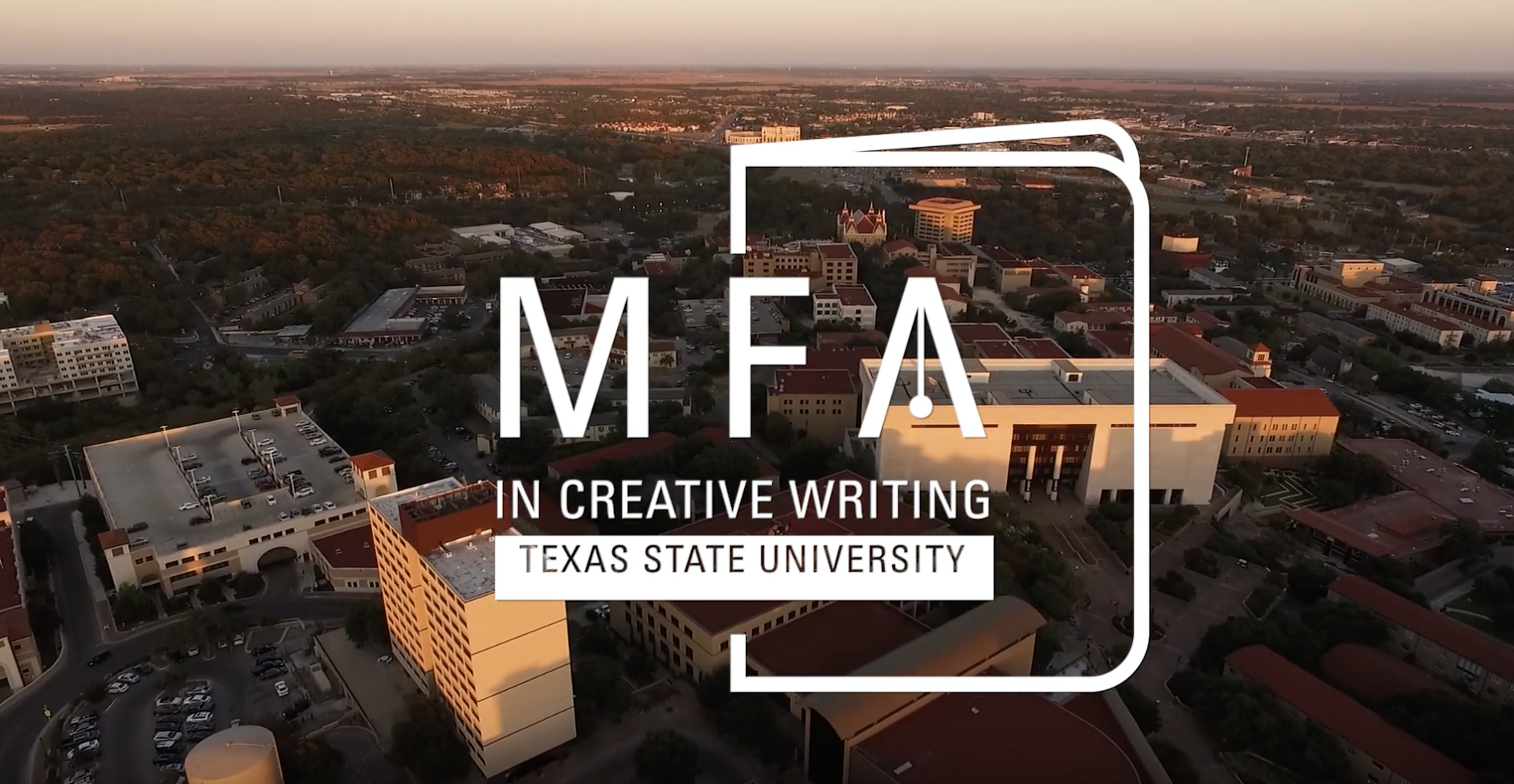
About the Texas State MFA
A top ranked, funded mfa program in creative writing.
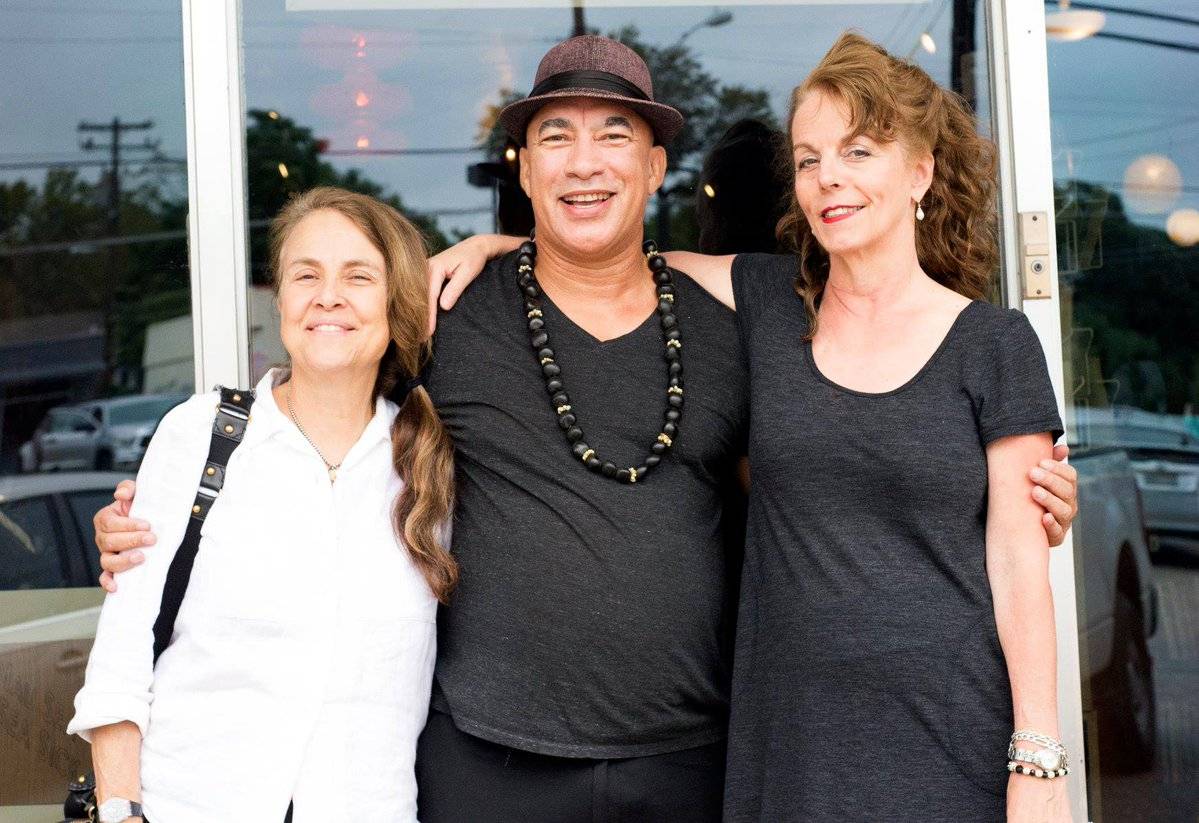
MFA faculty includes Tim O’Brien, Naomi Shihab Nye, Kali Fajardo-Anstine, and 9 full-time instructors who mentor students in completing book-length theses. Our student to faculty ratio is 6:1.
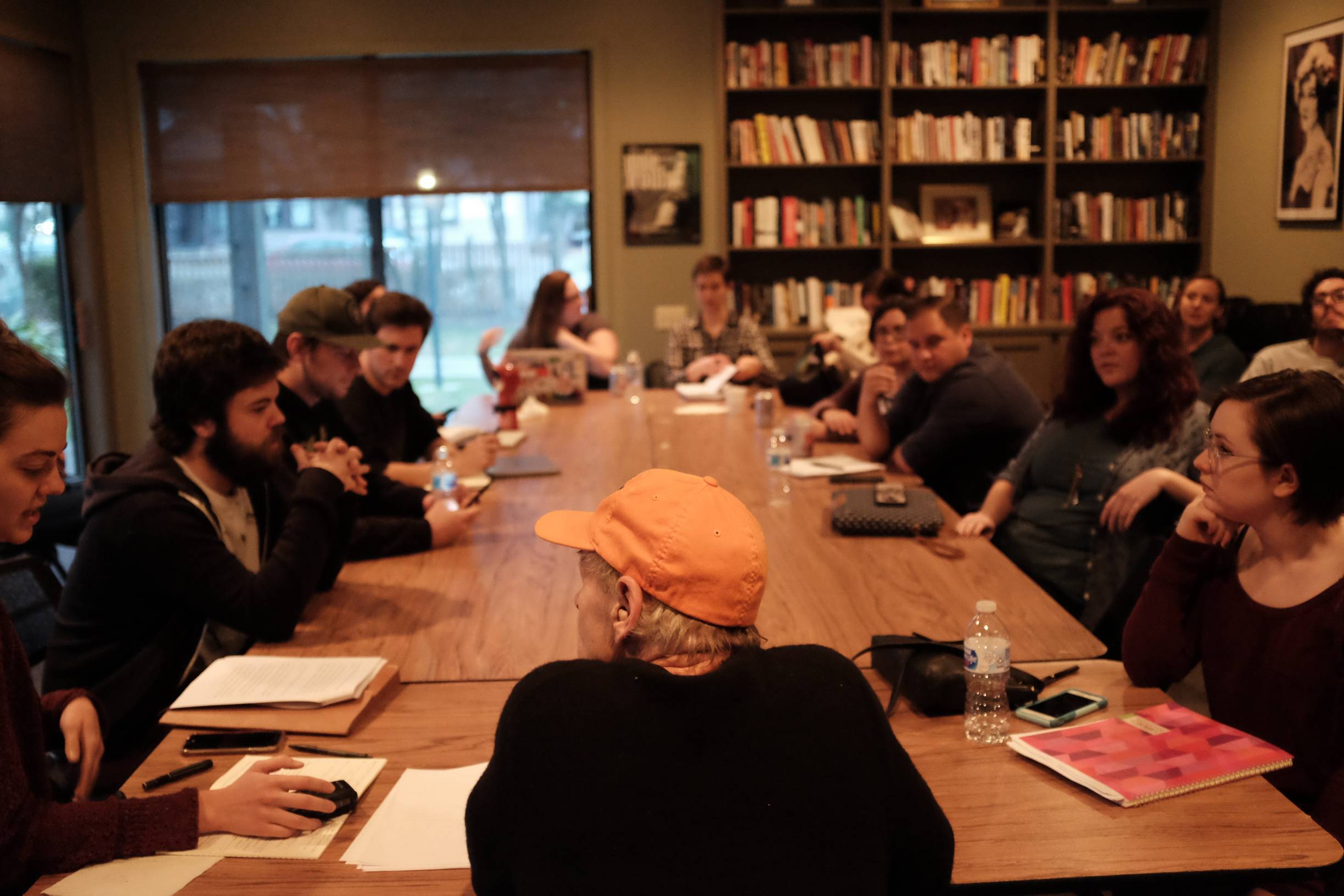
Student Accomplishments
Our Creative Writing MFA students come from a competitive international pool of applicants. Alumni have published countless books, won national awards, and secured teaching positions throughout the country.
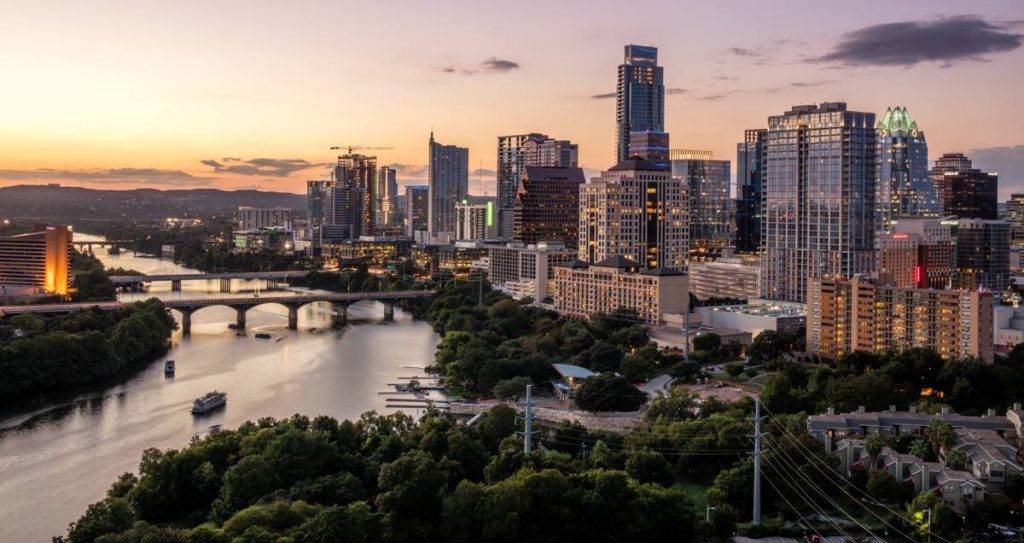
Extensive Funding
Almost 90% of interested students receive funding in the form of graduate assistantships and scholarships. The cost of living in San Marcos is relatively low, though we're in the Austin Metro area.
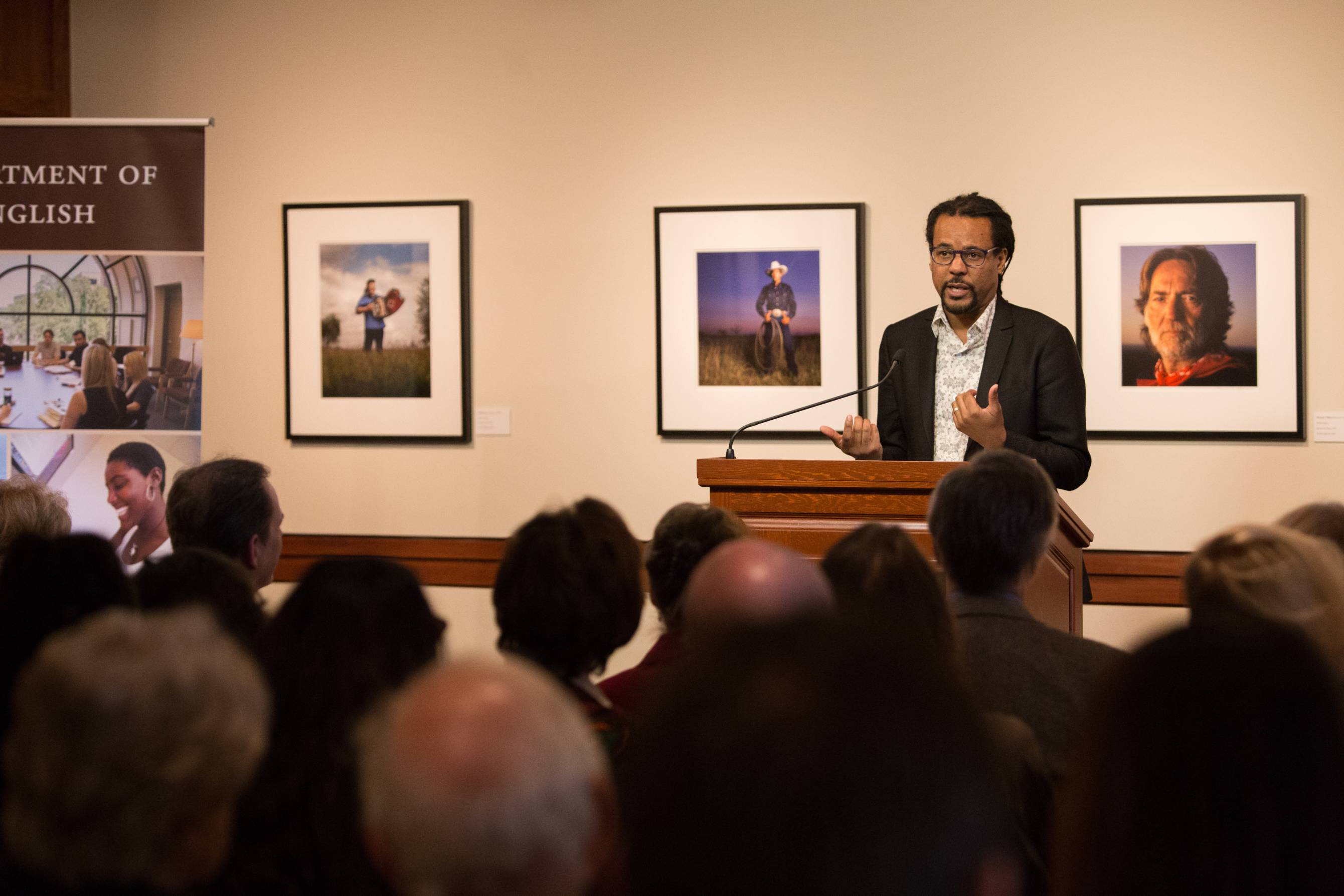
Visiting Writers, Editors, and Agents
Our visiting writers series is one of the most robust in the country. Writers teach a master class, enjoy dinner with students, and host a craft Q&A, in addition to several readings.
Program News and Publications
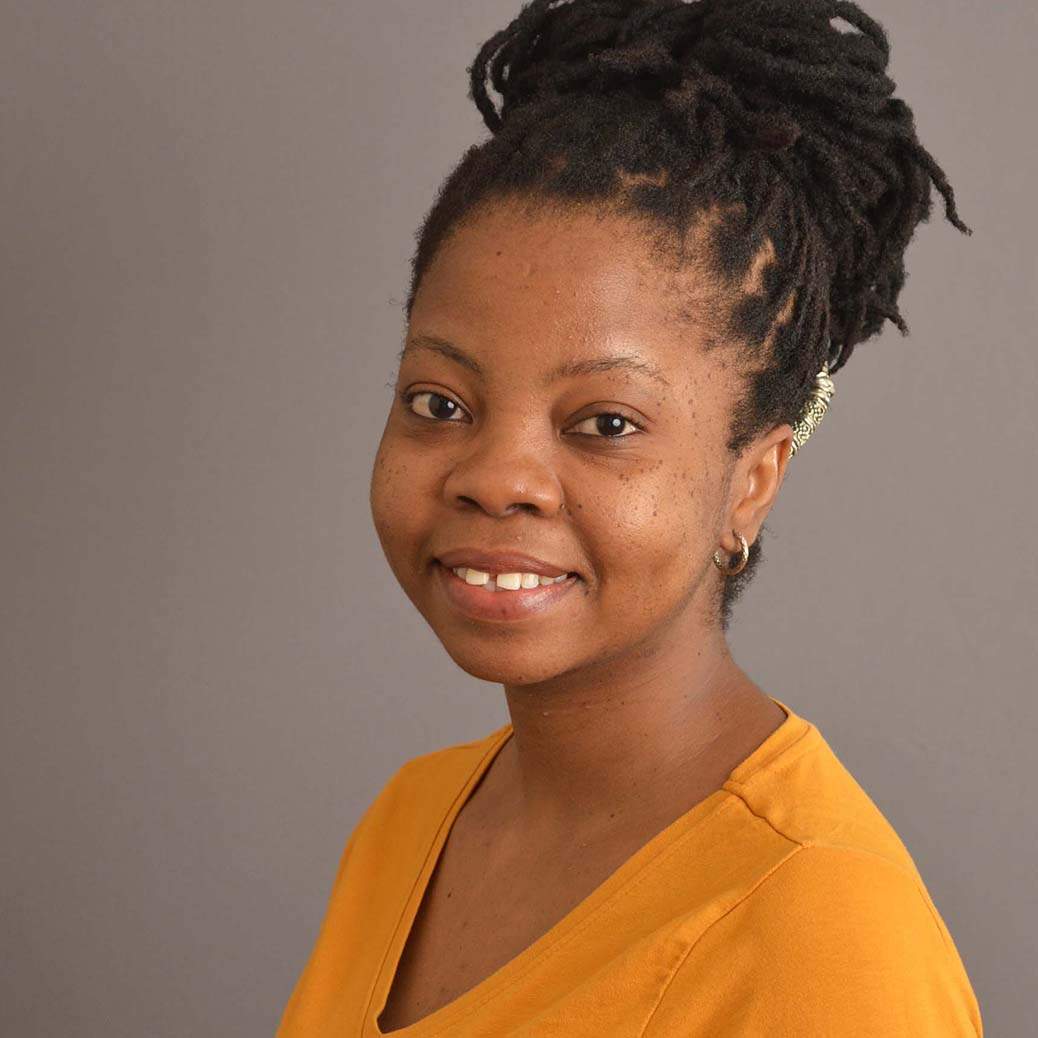
Inevitable Foundation Announces Loreen Arbus Foundation Elevate Collective Grantees
By Angelique Jackson
Angelique Jackson
- Inevitable Foundation Announces Loreen Arbus Foundation Elevate Collective Grantees 1 day ago
- Warner Bros. in Talks to Land ‘Avengelyne’ With Margot Robbie Eyeing to Star, Tony McNamara to Write 1 day ago
- Tracee Ellis Ross Sets ‘Tracee Travels’ Docuseries With Roku Originals (EXCLUSIVE) 1 week ago

Inevitable Foundation has announced the winners of its partnership with the Loreen Arbus Foundation to support disabled women and nonbinary writers.
The recipients are Matilda Feyiṣayọ Ibini, Melanie Abrams Fierstein, Natalia Temesgen and Anne Hamilton, who will each receive an $8,000 grant as well as mentorship, coaching and professional connections.
Popular on Variety
Inevitable Foundation also announced its Elevate Collective cohort for spring 2024, which includes Shea Mirzai and Alex Lora-Cercos. Each will receive $5,000 in funding for professional development, including career coaching, professional development, work-from-home equipment, script consultation and/or IP acquisition. Mirzai is an Iranian-American, LGBTQ+ writer/producer and person who stutters. He’s also a four-time honoree of Franklin Leonard’s annual Black List and was recently re-elected for a second term as co-chair of the WGA’s Disabled Writers Committee. He has written features for Will Smith and Overbrook Entertainment, Tooley Entertainment, AGC Studios and Universal Studios. He is an executive producer on NatGeo’s “Origins” and most recently staffed Max’s “World of Marvels.” Lora-Cercos is a Spanish filmmaker who writes about the complexities of the human condition and believes in the power of cinema to reflect and effect change. While recovering from an amputation, he moved to New York on a Fulbright Grant to pursue an MFA in film and became a writer. He’s since written and directed the feature film “Unicorns,” co-written the feature “We Are Living Things,” and made two documentaries and several short films. Among other accolades, Lora-Cercos was awarded the 2024 Sundance grand jury prize for his short film “The Masterpiece” as well as seven New York Emmys.
Fierstein is repped by Sherice Dugan at Sandstone Artists; Temesgen is repped by Daniel Vang and Zack Waxenberg at 3Arts; Ibini is repped by Ikenna Obiekwe at Independent Talent Group; and Hamilton is represented by Magnolia Entertainment and Frankfurt Kurnit Klein & Selz.
Mirzai is repped by Zero Gravity Management and Brecheen Feldman Breimer Silver & Thompson, LLP and Lora-Cercos is repped by Jacob Snyder at Sugar23.
[Pictured above, clockwise from top left: Melanie Abrams Fierstein, Natalia Temesgen, Anne Hamilton and Matilda Feyiṣayọ Ibini]
More From Our Brands
Arizona senate votes to repeal draconian 1864 abortion ban, tag heuer and kith team up to revive the iconic formula 1 watch from the ’80s, lsu’s livvy dunne joins passes in company’s first nil deal, be tough on dirt but gentle on your body with the best soaps for sensitive skin, and just like that: rosie o’donnell joins season 3 cast, verify it's you, please log in.
Comp Lit major Andrea Tchesnovsky wins Five College Poetry Prize
UMass Amherst undergraduate students Andrea Peter ’25 and Livvy Krakower ’24 were among the 2024 Five College Prose and Poetry Prize recipients honored at a reading and reception April 18 in Hampshire College's Harold F. Johnson Library.
Celebrating creative writing of all genres, the Five College Prose and Poetry Prize, formerly PoetryFest, was reinstated in 2023 after a hiatus due to the pandemic. The contest received 150 total submissions from students representing UMass Amherst, Amherst, Hampshire, Mount Holyoke and Smith colleges, and The Care Center of Holyoke this year.
“For me the most amazing thing about the Five College Poetry and Prose competition is to meet fellow writers from other institutions,” says Krakower, a winner for prose who is an English major and who also won the prize in 2023. “Each college in the consortium is so unique and I am thankful that I have been able to hear pieces I would never hear if not for the competition.”
Peter, a comparative literature major, won a poetry prize in the competition.
“Thanks to Five Colleges, Inc., and our English departments for supporting this work,” says Donna LeCourt, chair of the UMass Amherst English department. “Prizes to undergraduates are important and help to build their reputations in literary and professional communities. The opportunity for our graduate students to judge and manage literary awards provides exceptional professional development and helps distinguish them as creative leaders. I’m happy to see this prize come back to the Five College community.”
“I had a wonderful time judging the prose prize,” says 2024 prose judge and UMass Amherst MFA candidate Danielle Bradley, who was joined on the judging panel by fellow UMass Amherst MFA candidate and poet Ide Thompson ’24. “All of the submissions were impressive, and it was so special to hear many of the winners read their submissions at the reception.”
430 Herter Hall 161 Presidents Drive Amherst, MA 01003-9312
(413) 545-5808
- Campus News
- Student News
- UK HealthCare
- UK Happenings
- Arts & Culture
- Professional News
The journey within: UK grad's poetic ode to Kentucky's soul
LEXINGTON, Ky. (May 1, 2024) — The article below appeared in the Spring 2024 edition of Kentucky Alumni magazine, and tells the story or Deidra White, a University of Kentucky representative of the May Class of 2024.
White will graduate this Friday with a Master of Fine Arts in Creative Writing from the Collge of Arts and Sciences, and will also present a spoken word poem at each ceremony titled "Here in Kentucky."
Learn more about the May 2024 Commencement Ceremonies at https://commencement.uky.edu/may-2024 .
Gliding into a rickety wooden chair, Deidra White is eager to speak of words. Her words. The unvoiced words of ancestors lost to history. The words of those who have worked to keep her down and those who provide inspiration. A cascade of obsidian braids sways across White’s shoulder. Her creaseless face belies her years. Only her tresses’ errant silver strands betray her age.
She’s 45. Far from ancient, but hardly the age when most people veer from established career trajectories. She wears the number as a badge of honor for how far she has come despite enduring the maelstrom of circumstances that waylaid so much early promise.
“When I was younger, you couldn’t tell me I couldn’t be whatever I wanted, but through life, people try to beat you down, especially when you’re a confident Black woman,” White says. “Everybody is telling you that ‘you shouldn’t be this,’ ‘you shouldn’t be that’ — even other Black people.”
White explains how oppressive words, buttressed by the harsh realities of everyday life often encountered by a demoralized Black working-class single mother, cast a cloud of self-doubt that loomed large for years. Only now is she beginning to emerge from the bleak miasma and revel in the glow of her unveiled talent.
Still at the nascency of a writing career yet displaying a keen versatility in diverse composition styles, White is completing a Master of Fine Arts (MFA) degree in the University of Kentucky’s selective creative writing program. The rising star has been lauded for her work. Rapt audiences respond to her public readings with thunderous applause. She has captured the attention of those she idolizes, literary luminaries like Crystal Wilkinson and DaMaris B. Hill. Frank X Walker — the acclaimed author and poet, 2013-14 Kentucky Poet Laureate and former UK creative writing MFA chair — has christened White “a dynamo” and his “dream student, every mentor’s dream.”
Despite the adulation, however, White sometimes feels insecurity’s weighty burden.
“The one thing I’m still trying to rectify is the imposter syndrome, the self-doubt,” she says. “I used to be so audacious...”
In a moment of vulnerability, her words trail off as she ponders the profound metamorphosis that has recently unfolded in her life. Shimmering pools form in the corners of her chestnut eyes. She composes herself and smiles.
“…But I’m finding my way; I’m working on it,” she continues. “I’m getting all the external validation I could ever want. The hardest part was believing I had the right to even be in the rooms with some of the people I was in those rooms with.”
A life interrupted
White regards her life as an open book, one that she seems quite intent on writing in her own words, on her own terms, with unabashed candor.
The inquisitive daughter of accomplished parents — her father, now retired, was an attorney; her mother, a health care executive — White took the SATs as a ‘tween after being scouted to be part of Duke University’s prestigious Talent Identification Program. She then saw that promising scholarly journey capsized for more than two decades by a tsunami of obstacles. At 15, White stepped into the unenviable role as sole caretaker for her mother, who was slowly dying of liver and colon cancer. She lost her academic scholarship to Duke when her grades plummeted.
“My father was in Atlanta working on a big case, refusing to come home,” White explains. “I don’t think he understood how bad the cancer had gotten because she had been fighting it for so long. I was too young to know that if I’d contacted Duke, they probably would’ve given me some sort of deferral. I didn’t realize that, so I just chalked it up to, ‘I guess I won’t be going to college.’”
After her mother succumbed to the illness, White grew estranged from her father. She became pregnant with a son, Marcus, and navigated a period of homelessness.
“My sole responsibility on this planet at that point was to give my son the best life that I could offer him,” White says, “so I worked and worked and worked and never looked back.”
She crafted metal seat frames at a Scott County automotive supplier and established a cleaning service to help make ends meet, but she never lost sight of her collegiate aspirations. She vowed that when her son enrolled in school, she would do the same. Years passed. Marcus went off to Kentucky State University. Suffocating under the drudgery of years of backbreaking factory labor, White finally mustered the gumption and enrolled in community college at 37, more than twice the age of the typical college freshman.
Call it fate, providence or, as White does, “mysticism,” her path to successful businesswoman took a hard left with an off-the-cuff remark from an insightful instructor.
“It’s one of those otherworldly stories,” White shares. “I had a wonderful English professor at Bluegrass Community and Technical College, Tammy Ramsey. I was leaving her class one day, and she asked what I was majoring in. I was, like, ‘Oh, I’m a business major,’ and I told her my big plans about factory management and my big cleaning company ideas. And she said, ‘Oh, that’s too bad. I thought you were an English major because your writing’s so good. Have you thought about becoming a writer?’”
White left the room replaying the conversation in her mind. She scoffed. She never wanted to be a writer…or had she?
“I was thinking, ‘this lady’s nuts!’” White laughs. “The minute I hit the corner, though, it was as if a Rolodex of images flipped through my mind; memories I’d suppressed just came back up. I saw myself with my white typewriter and my little binder full of stories that I would type up just for myself in my room. When it all came flooding back, leaving that classroom and walking down that hallway, it hit me hard,” White recalls. “I was like, ‘Soooooo…am I supposed to be a writer?”
'Bees to honey'
After graduating with an associate’s degree in business, she took a year and contemplated her next steps — whether to continue the business route or indulge her talent for storytelling.
White tested creative waters by attending free writing classes at Lexington’s Carnegie Center for Literacy and Learning and participating in writing circles. By the summer of 2020, writing had evolved from mere pastime to potential profession. She jumped headlong and enrolled in the undergraduate English program at UK .
“For me, it was just like bees to honey,” she raves regarding her UK experience. “It became this beautiful journey of doors opening and people supporting me, uplifting me, encouraging me.”
Scholarships helped defray some of White’s college education costs at a time when she was “struggling bad,” but what meant the most to her was the assurance that she had chosen the correct path.
“More than just the funding, there was the confidence of standing on that stage with people saying to me, ‘you’re a distinguished writer,’ just something that acknowledges that ‘you’ve got the right stuff, kiddo. You’ve got it.’” says White, who received the coveted Patricia and William Stacy Fellowship/Scholarship during her senior year. “It helped me in so many ways, but especially with my confidence.”
She balanced factory work, cleaning and her studies, seldom leaving much time to eat, let alone sleep. Right before graduation, the routine took its toll, and she was hospitalized from exhaustion’s debilitating effects.
“I was working at the factory from 4:30 in the afternoon until 4:30 in the morning,” she remembers. “I’d get off, drive to Frankfort and clean buildings until 6 or 7 o’clock. I’d go home, throw something in the microwave, shower while it cooked, eat, lie down for an hour, get up and go to class by 9:30. I’d get out of class at noon, maybe 1:30, depending on the day, go home, sleep two more hours, and start over again. I did that for two years, so I felt like my body could keep doing it, but it finally caught up with me.”
She chuckles that she slept during the commencement ceremony, asking the person next to her to nudge and awaken her when her name was called.
Accepting neither the role of victim nor martyr, White drew inspiration from her struggles. She says the fire ignited by the work-a-day life of a Black woman in America fueled her creativity allowing her to release long-carried resentments and repair fractured relationships.
“When I first began writing poetry, it was writing from a place of pain,” the burgeoning author reveals. “That’s what people gravitated to because it was so raw and so emotional, so visceral. But I’m happier now — happier than I’ve ever been in my life — so I find myself writing about other things, usually whatever’s on my heart at the moment, the thoughts that cross my mind. I just have to put it all on the table.”
The voracious lexophile devoured the words of James Baldwin and Zora Neal Hurston, Toni Morrison and Nikki Giovanni —authors who continue to inspire her. She segued beyond writing poetry and began exploring the nuance of fiction and nonfiction. Today, she indiscriminately draws inspiration from the mundane —something as innocuous as the pattern on a stranger’s shirt — to the extraordinary splendor of the Commonwealth.
“One of the best things about living in Kentucky is along I-64 and I-75 — the Horse Park and the horse farms!” White enthuses. “You can see horses running in this beautiful landscape. Who gets to see that every day? There’s so much beauty here!”
Deep roots in the soil
White’s love affair with the Bluegrass State has increased her interest in the art and literature known as Affrilachia. Its name coined by Walker in the 1990s, Affrilachia focuses on the historic and contemporary cultural legacy of Black and African-American artists, writers and musicians in the Appalachian diaspora.
“When people think of Appalachia, they often think of Kentucky and especially Eastern Kentucky,” White explains. “They think ‘white people’. But there are Black people in those mountains. Our history is just as much a part of those mountains as any other resident in this state. We want it to be acknowledged that Kentucky’s not just white people. We have something to say about this land, about this space, about this beautiful state.”
She finds Affrilachian literature cathartic and has begun to delve deeper into her family’s rich history to tell untold stories from Eastern Kentucky’s hills and hollows, especially those of the matriarchs that came before her.
“I want to know where their blood resides in mine,” the wordsmith says.
One such female elder was Sallie White — “Maw Maw to people she terrorized” — the irascible four-foot-eleven-inch dowager who ran a Prohibition-era moonshine empire with an iron fist. There was also her great, great, great, great, great grandmother, who, according to many family members and newspapers, lived to be 125.
“Hannah Maguire is what they named her after they dragged her off the beaches of Equatorial Guinea,” White explains. “They brought her here in the late 1700s, and she lived in Beattyville. She was born free, enslaved and then died free because she lived to be 125 years old. It’s the craziest story. Articles have been written about her. When she died, she left each of her children $25, which was a lot of money in the late 1800s. She left them the land as well.”
That fertile Eastern Kentucky land is where generations of her family lived — esoteric ancestors who punctuate so much of White’s work and offer insight into her own identity.
“I’m tied to the soil just as much as if I was born and raised up there,” she reasons.
“I see Deidra as firmly rooted in the legacy of those Kentucky writers who came before her — especially Black writers whose aims were both artistic and in search of justice,” says Shauna Morgan, associate professor of creative writing and Africana literature at UK. “One of the most distinctive features of her literary art is the way its language and imagery draw the reader into the intimacy of the world of the poem so much that we can feel what the speaker is showing and sharing. It brings us close to the environment — whether that is the natural or manmade world — and it allows us to see its subjects.”
A beautiful life
The demons that dogged White for so long followed her throughout her undergraduate career despite establishing herself as an ascendant voice with a distinctive point of view. Mired by self-doubt and exhaustion, she nearly missed the MFA application deadline and was uncertain if she would even be accepted.
“I first heard her at an outdoor reading celebrating Asian American and Pacific Islander Heritage Month,” Walker recounts of White’s electrifying public performance of her poem, “Meihua,” and its resonating theme of sacrificing one’s identity for the sake of fitting into society. Walker hugged her after the recital, saying, “I’ll see you in the fall.”
She received an acceptance letter mere days after the performance.
“Witnessing her arrival with a mountain of talent but less than a handful of confidence in her craft and her voice and watching her grow and blossom during our MFA program inside and outside the classroom fills me with pride and more than a little satisfaction,” Walker gushes.
Although much of her evocative work looks to the past, White imagines where life will lead as she turns the page on the next chapter of her life after she graduates. She has contemplated settling down on a Costa Rican beach and teaching English as a second language. She may stay put in Central Kentucky and look for a teaching position at a university or community college. Working as a teaching assistant for Walker, she discovered a penchant for sharing her love of words with students. For White, words equate joy.
“This is what I’ve wanted so much that if I have any free time, I’m writing,” she says without a trace of earlier insecurity. “If I have any free time, I’m down at the Carnegie Center. If I have any free time, I’m at the Lexington Writer’s Room. The things I do outside of school are writing and the literary arts, and I’ve never been happier.”
Although her road has not necessarily been the smoothest, White harbors no regrets for the bumps and turns along the way. She believes everything works together for the greater good, and every hardship is an opportunity to grow and become better.
“The passion that thrives in my stories and poetry comes from my hardships,” she says. “I couldn’t write the way I do without those experiences.”
“I’ll never stop writing,” she adds resolutely. “This is my life now. And it’s so much more beautiful than anything I could have imagined.”
As the state’s flagship, land-grant institution, the University of Kentucky exists to advance the Commonwealth. We do that by preparing the next generation of leaders — placing students at the heart of everything we do — and transforming the lives of Kentuckians through education, research and creative work, service and health care. We pride ourselves on being a catalyst for breakthroughs and a force for healing, a place where ingenuity unfolds. It's all made possible by our people — visionaries, disruptors and pioneers — who make up 200 academic programs, a $476.5 million research and development enterprise and a world-class medical center, all on one campus.
In 2022, UK was ranked by Forbes as one of the “Best Employers for New Grads” and named a “Diversity Champion” by INSIGHT into Diversity, a testament to our commitment to advance Kentucky and create a community of belonging for everyone. While our mission looks different in many ways than it did in 1865, the vision of service to our Commonwealth and the world remains the same. We are the University for Kentucky.
Latest Stories
Women’s forum employee educational assistance award applications open may 1, born to be wildcats: uk student leaders ready for their next steps, candidate a for dean of uk’s college of design to participate in open forum, 4 uk grads selected to address may 2024 commencement ceremonies, graduate stipend and benefits committee updates fiscal year 2025 baseline stipends.

IMAGES
VIDEO
COMMENTS
Here is the list of 53 universities that offer fully-funded MFA programs (Master's of Fine Arts) in Creative Writing. University of Alabama (Tuscaloosa, AL): Students admitted to the MFA Program are guaranteed full financial support for up to 4-years. Assistantships include a stipend paid over nine months (currently $14,125), and full payment ...
2) University of Texas, James Michener Center (Austin, TX) A fully-funded 3-year program with a generous stipend of $29,500. The program offers fiction, poetry, playwriting and screenwriting. The Michener Center is also unique because you study a primary genre and a secondary genre, and also get $3,000 for the summer.
MFA in Writing. The Michener Center for Writers is the only Creative Writing M.F.A. program in the world that provides full and equal funding to every writer—yet it is our extraordinary faculty and sense of community that most distinguishes us. Our program is a three-year, fully-funded residency M.F.A. with a unique multi-disciplinary focus.
Our list of 259 MFA programs for creative writers includes essential information about low-residency and full-residency graduate creative writing programs in the United States and other English-speaking countries to help you decide where to apply. It also includes MA programs and PhD programs.
The Litowitz MFA+MA Program is the highest-funded graduate creative writing program in the country, providing a full three years of funding and free tuition, as well as health insurance and conference funding. Our faculty includes Natasha Trethewey, Chris Abani, Charif Shanahan, Juan Martinez, Daisy Hernández, and Sarah Schulman.
The Creative Writing Program offers the MFA degree, with a concentration in either poetry or fiction. MFA students pursue intensive study with distinguished faculty committed to creative and intellectual achievement. Each year the department enrolls only eight MFA students, four in each concentration. Our small size allows us to offer a ...
University of Oregon (Eugene, OR) Visitor7, Knight Library, CC BY-SA 3.0. Starting off the list is one of the oldest and most venerated Creative Writing programs in the country, the MFA at the University of Oregon. Longtime mentor, teacher, and award-winning poet Garrett Hongo directs the program, modeling its studio-based approach to one-on ...
Degree Types: MFA+MA. This new, fully-funded MFA+MA in Creative Writing and English program offers intimate classes, the opportunity to pursue both creative and critical writing, and close mentorship by renowned faculty in poetry, fiction, and creative nonfiction. Our three-year curriculum gives students time to deepen both their creative ...
The University of Miami's MFA Program in Creative Writing offers a fully funded, two-year course of study in the writing of poetry, fiction, or cross-genre literature while providing substantial training in the teaching of creative writing and composition. Students may apply to receive a third year of funding, during which graduate students ...
The fully funded Creative Writing MFA program features two years of study and options to focus on fiction or poetry. We love the program's esteemed faculty of published poets and fiction writers and the many opportunities to learn from acclaimed writers through the Zell Visiting Writers Series. This highly selective program accepts just nine ...
Our prestigious MFA Creative Writing program is designed to help you develop your writing in supportive workshops and literature seminars led by an internationally recognized faculty and renowned authors. ... a New School-funded fellowship program providing MFA students with high-quality teaching experience in area middle schools and high ...
The Creative Writing program has been a vital part of the Vanderbilt Department of English for nearly a century. Each year, a small, select class of talented writers of fiction and poetry enroll in Vanderbilt's three-year, fully-funded M.F.A. in Creative Writing program. We invite you to join us as we continue to build upon the tradition of ...
Expand your knowledge and hone your craft with our fully funded, three-year master's degree in creative writing, which combines the intimacy of a small program with visits by renowned authors from around the world. Our dynamic MFA program provides a rigorous yet nurturing community where aspiring writers can compose, experiment, learn and evolve.
Here are some prominent fully-funded MFA programs in creative writing: 1. University of Iowa - Iowa Writers' Workshop: This is one of the most prestigious creative writing programs in the United States and offers full funding for all students. 2. Cornell University: Cornell's MFA program is highly regarded and offers full funding, including a ...
All students are fully funded for three years in a program that is well known for its sense of community and a faculty that is as committed to teaching as to their own writing. ... Book of the Month pick and the HarperCollins Lead Read of Summer 2023. Thao received her MFA in Creative Writing from the Ohio State University in 2012. Past ...
May 29, 2013. Boston University offers a fully funded Master of Fine Arts (MFA) in Creative Writing. Last updated March 28, 2022. Next in my series on How To Fully Fund Your PhD, I provide a list below of universities that offer full funding to all students admitted to their doctoral programs and MFA programs in creative arts, writing and film.
Starting your application is easy. The MFA is a two-year, fully-funded program, consisting of workshops, interdisciplinary coursework and a final thesis of literary work. Distinguished by the one-on-one attention students receive from our faculty poets and writers, the program offers a strong, supportive start to a creative life in words.
About. The Master of Fine Arts in Creative Writing at the University of South Florida is a funded three-year degree. MFA students receive a full tuition waiver and the teaching assistantship comes with a stipend and health insurance. Each year we accept an average of nine students who write comics, creative nonfiction, fiction, and poetry.
The MFA Program in Creative Writing consists of a vibrant community of writers working together in a setting that is both challenging and supportive. This stimulating environment fosters the development of talented writers of poetry, fiction, and creative nonfiction. The program is not defined by courses alone, but by a life built around writing.
The three-year M.F.A. program in Creative Writing gives promising fiction writers and poets an opportunity to practice and study their art with dedicated fellow writers. We accept six students in fiction and six students in poetry each year. We have no non-fiction track.
A good MFA program is hard to find, but we believe the MFA Program at Georgia College & State University in Milledgeville, Georgia offers unique opportunities for MFA students dedicated to the craft and purpose of creative writing. GCSU's famous alumna, Flannery O'Connor, lived in Milledgeville on her farm, Andalusia, and of our beautiful ...
FINANCIAL SUPPORT. If you join our three-year MFA program in 2024, you will receive fellowship support and/or teaching income in the amount of up to $30,600 in the first two academic years and up to $24,480 in the third, as well as full funding of your tuition, enrollment fees, and the health insurance premium for single-person coverage through ...
A top ranked, funded MFA Program in Creative Writing. Faculty. MFA faculty includes Tim O'Brien, Naomi Shihab Nye, Kali Fajardo-Anstine, and 9 full-time instructors who mentor students in completing book-length theses. ... Our Creative Writing MFA students come from a competitive international pool of applicants. Alumni have published ...
In the 2023-2024 school year, the film MFA program welcomed its first class to the new writing for film and television concentration, while undergrads can work on graduate films and take advantage ...
Endowment for the Arts Creative Writing Fellow. As an assistant professor at Clarkson University, she teaches film, literature, and creative writing. Pelky is the author of poetry collections . Through a Red Place (Perugia Press, 2021), which won the . 2021 Perugia Press Prize, as well as of the . Dog Woman (Saint . Julian Press, 2020). She further
Inevitable Foundation also announced its Elevate Collective cohort for spring 2024, which includes Shea Mirzai and Alex Lora-Cercos. Each will receive $5,000 in funding for professional ...
Fellowship Opportunity: Artist-in-Residence. Originally posted on Slavery North, April 11, 2024 · By Dr. Charmaine Nelson. About Slavery North. Founded in 2022, Slavery North is a one-of-a kind academic and cultural destination where scholars, thinkers, artists, and cultural producers build community and produce research and cultural outcomes that transform our understanding of the neglected ...
Celebrating creative writing of all genres, the Five College Prose and Poetry Prize, formerly PoetryFest, was reinstated in 2023 after a hiatus due to the pandemic. The contest received 150 total submissions from students representing UMass Amherst, Amherst, Hampshire, Mount Holyoke and Smith colleges, and The Care Center of Holyoke this year.
LEXINGTON, Ky. (May 1, 2024) — The article below appeared in the Spring 2024 edition of Kentucky Alumni magazine, and tells the story or Deidra White, a University of Kentucky representative of the May Class of 2024. White will graduate this Friday with a Master of Fine Arts in Creative Writing from the Collge of Arts and Sciences, and will also present a spoken word poem at each ceremony ...